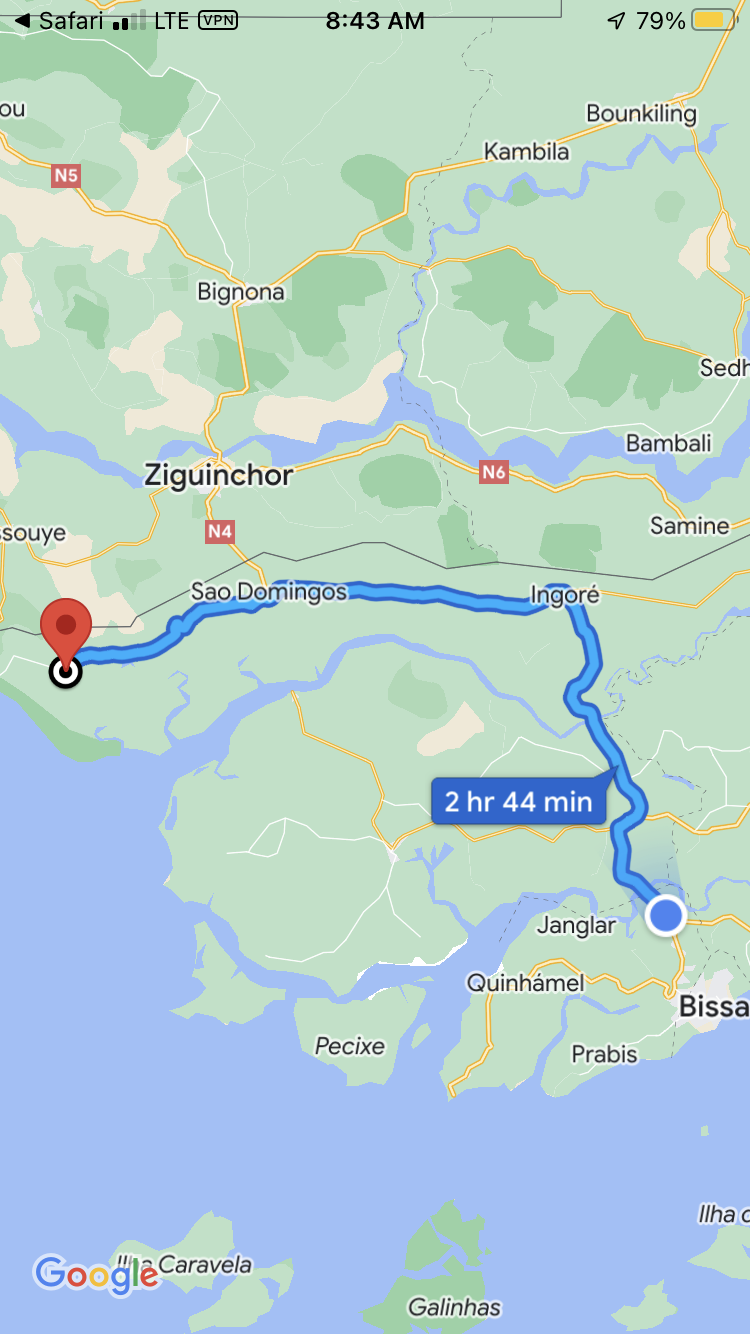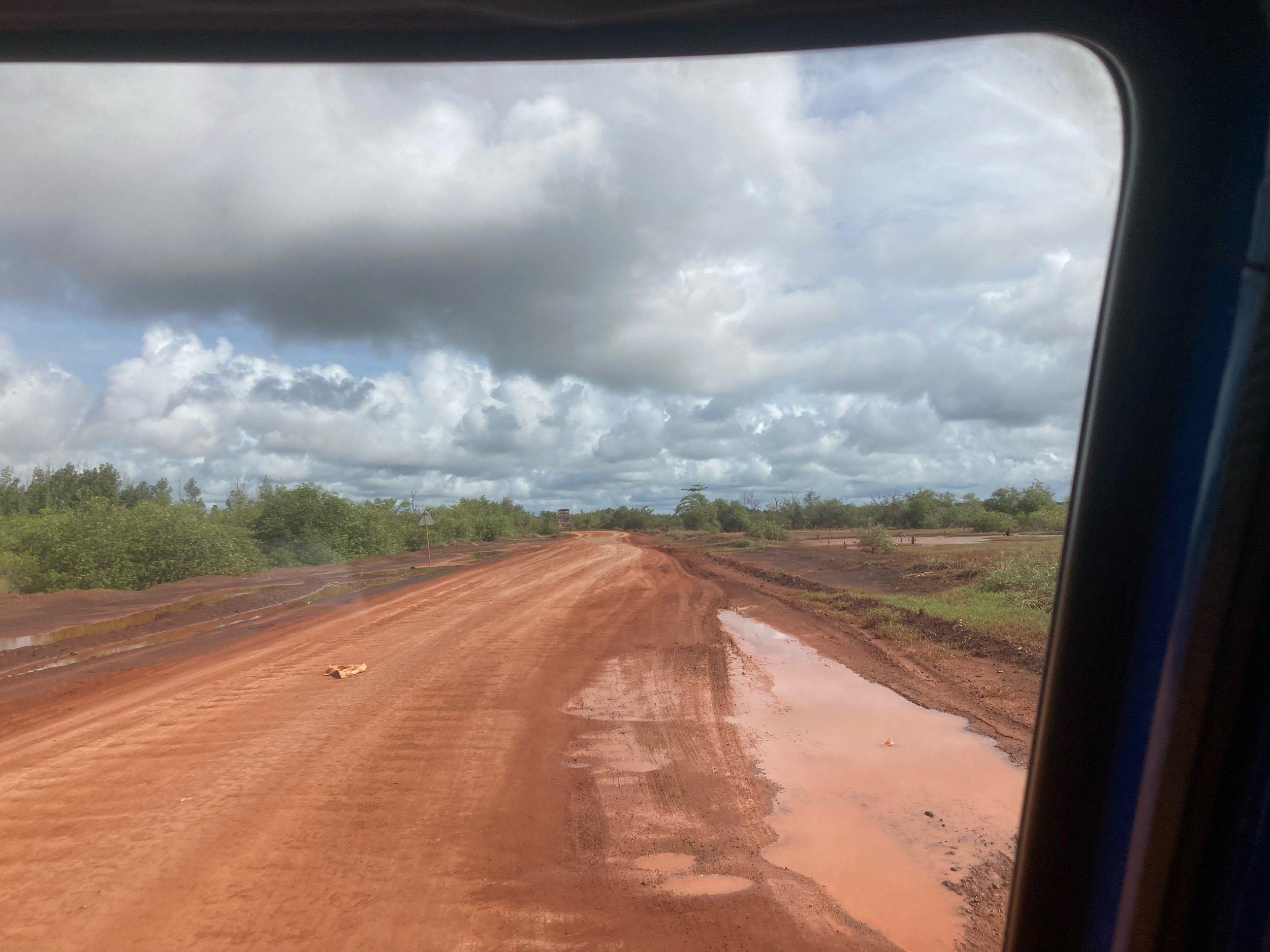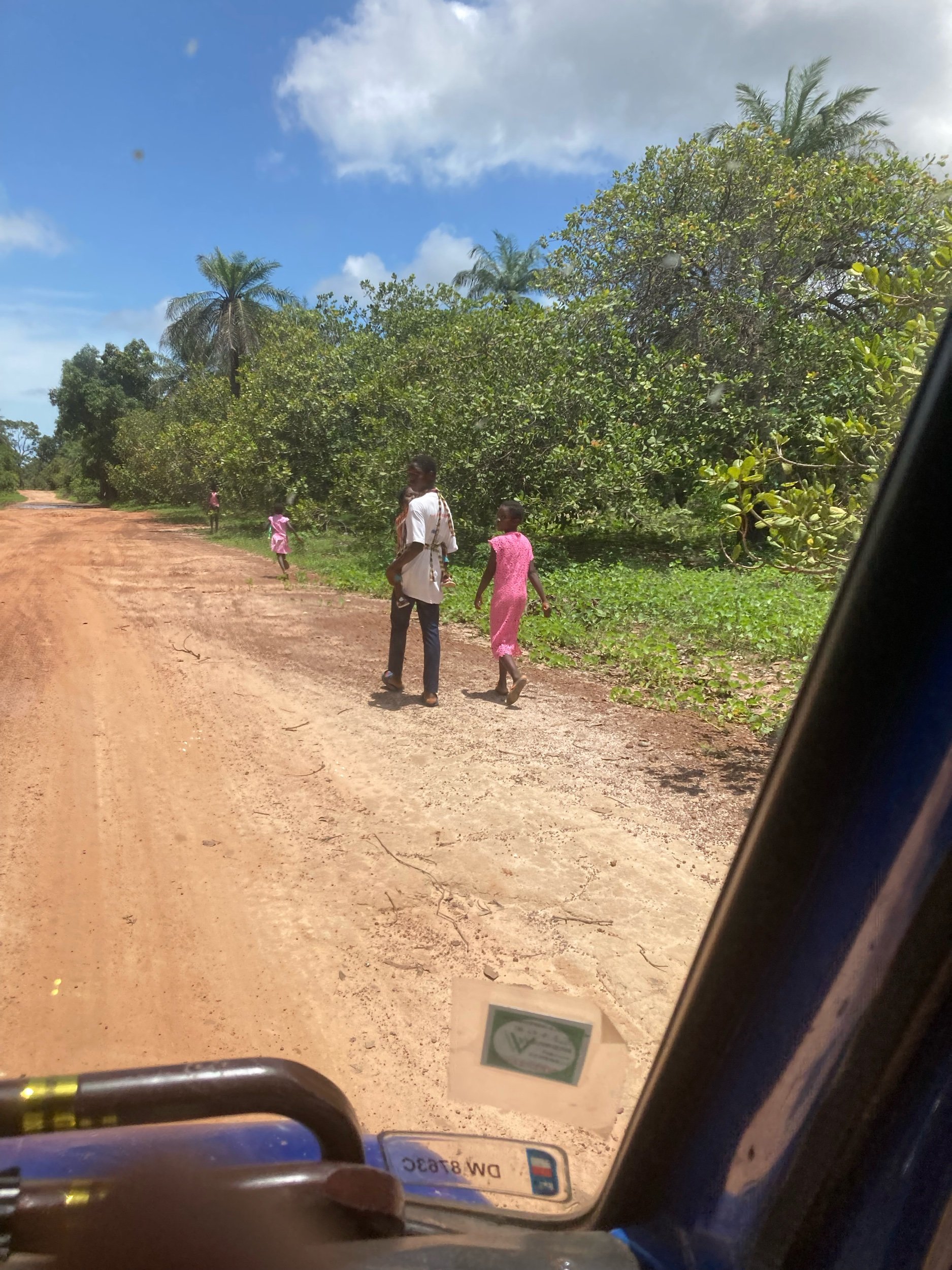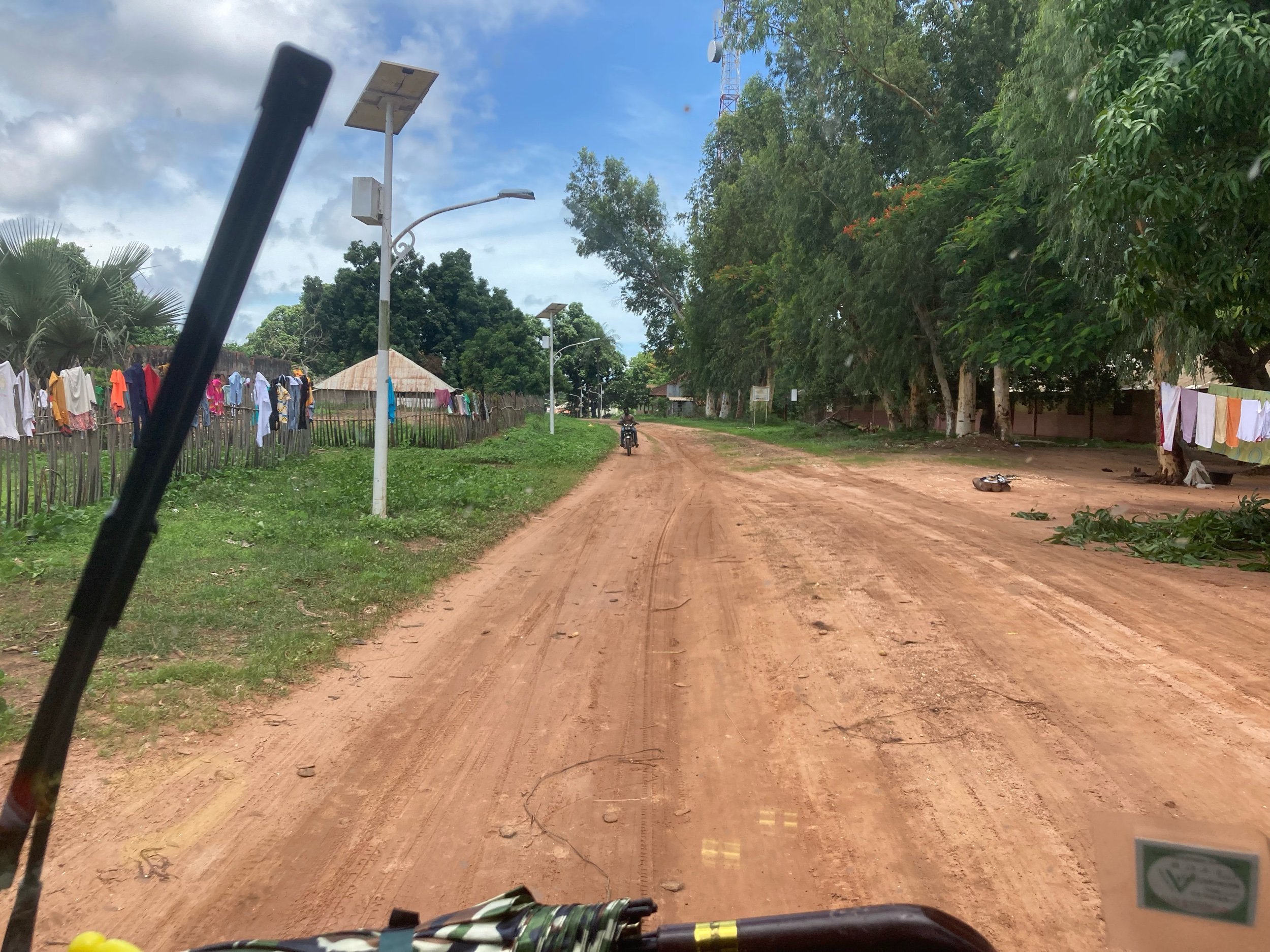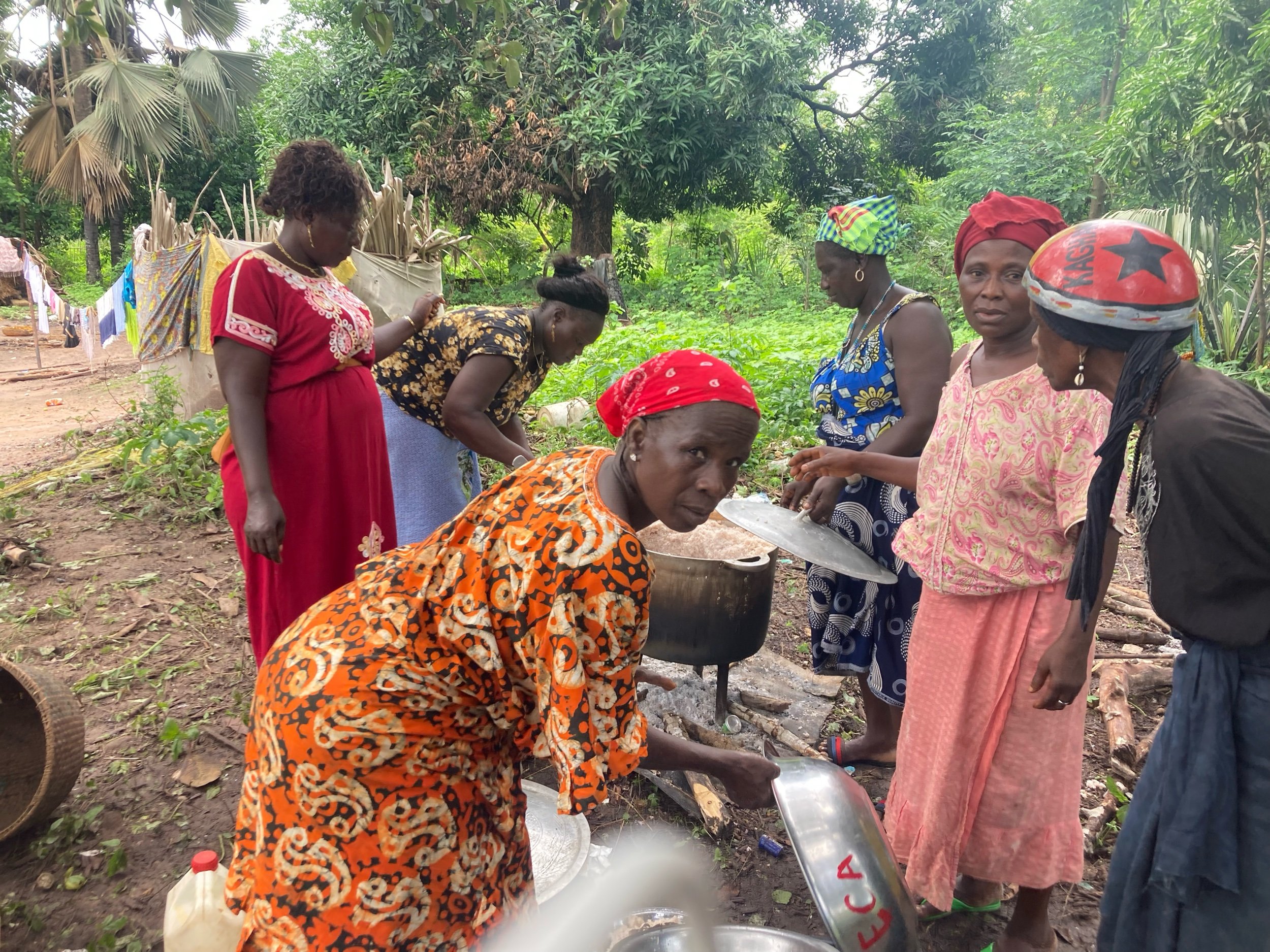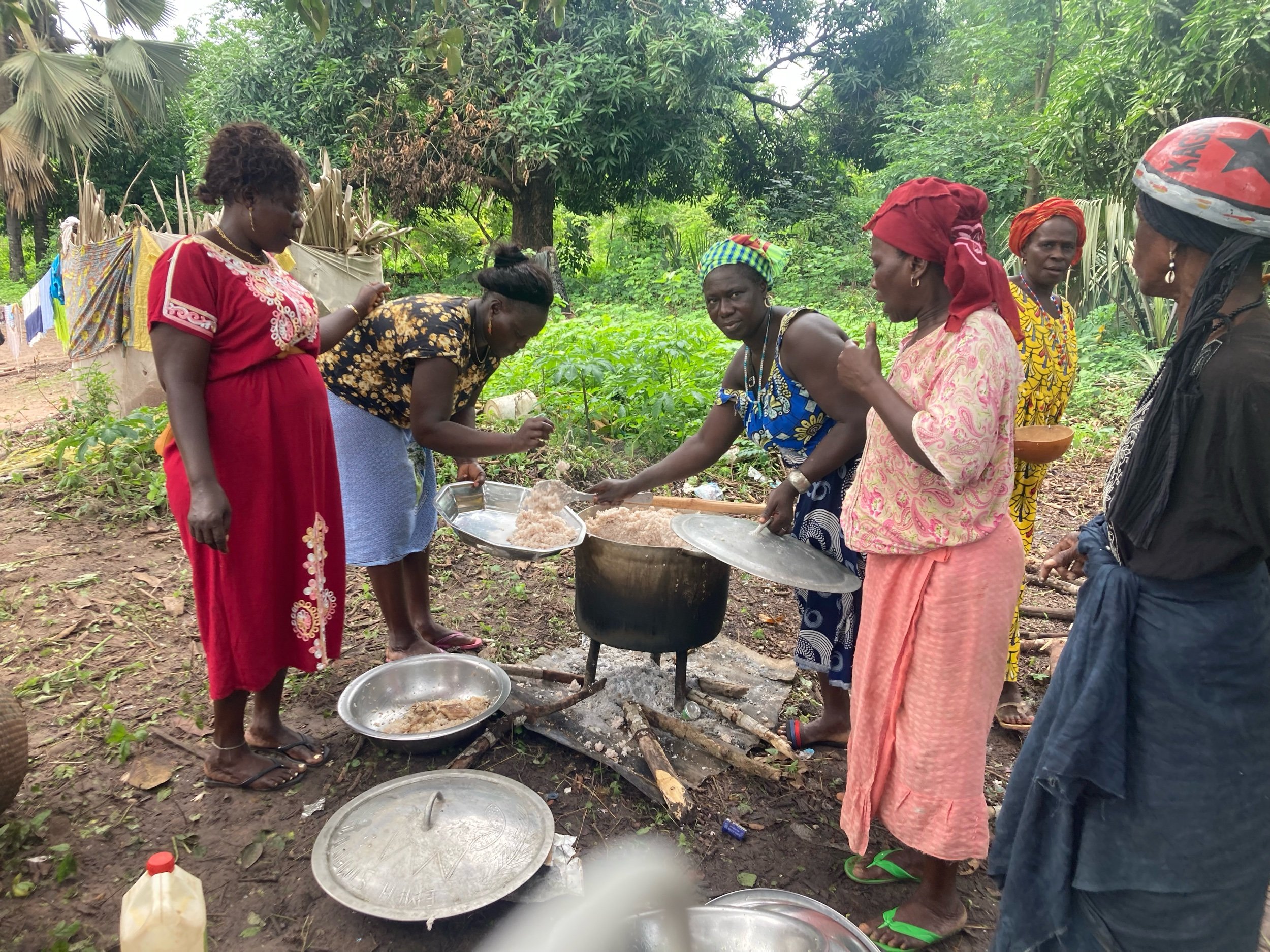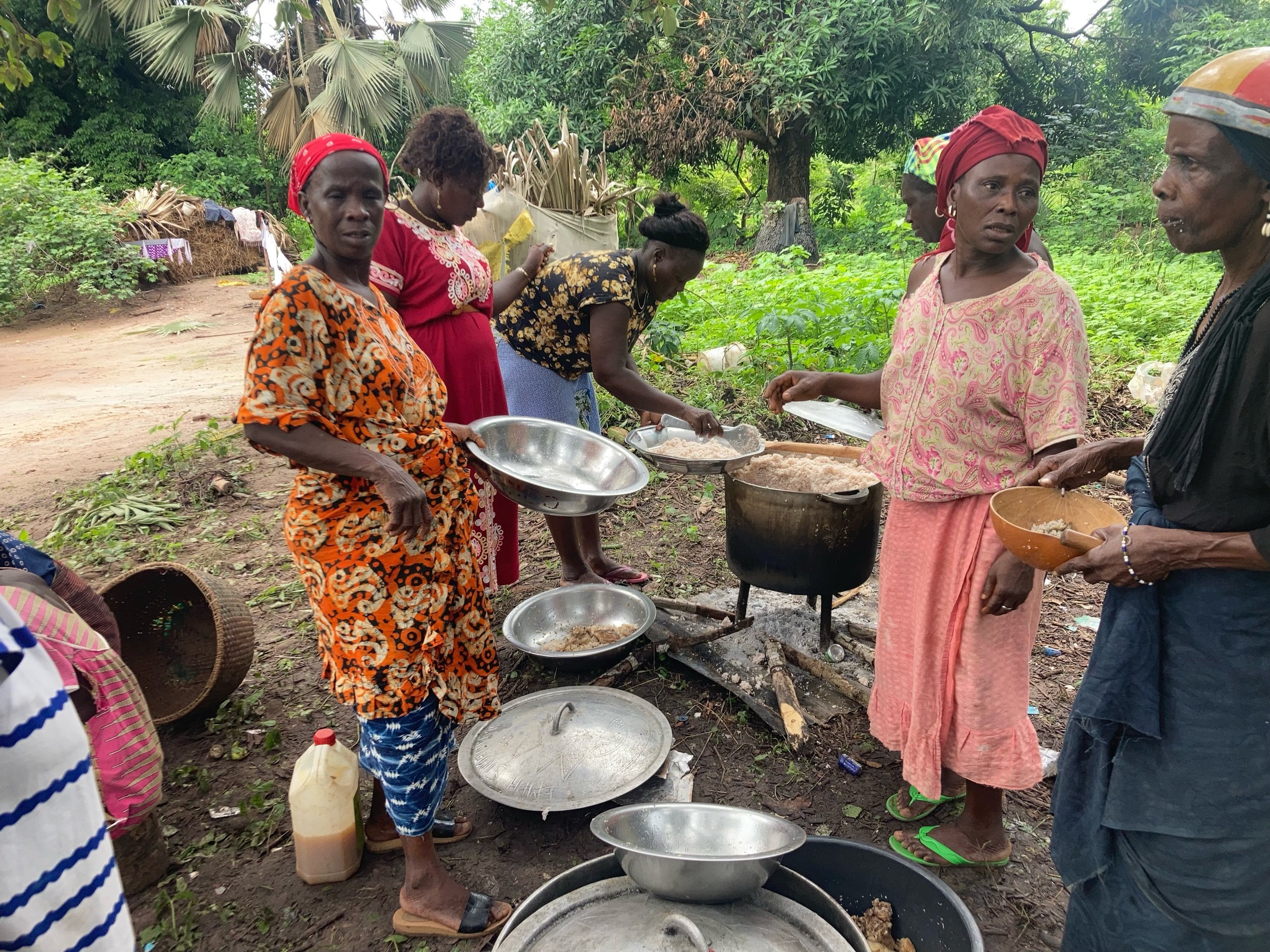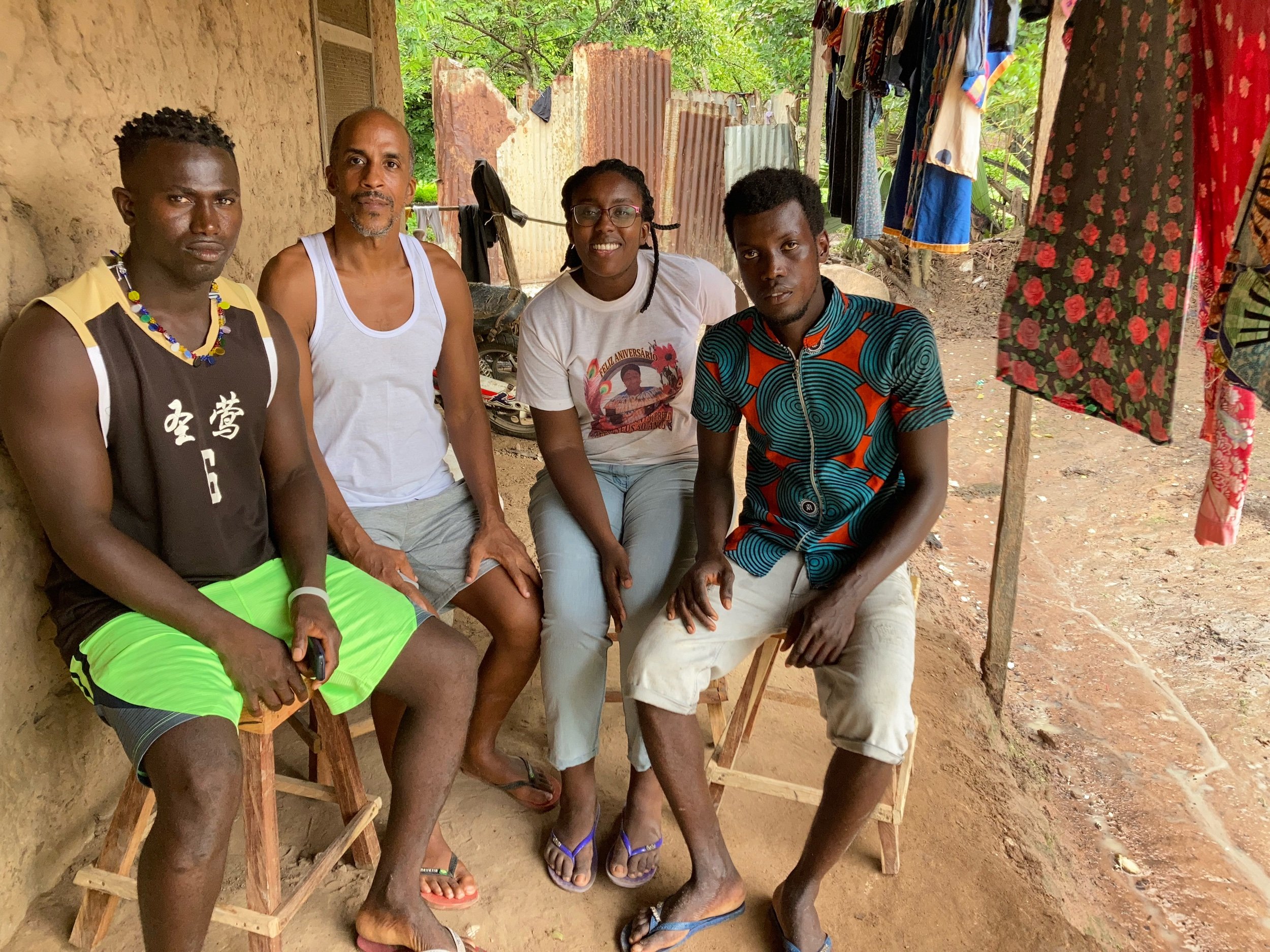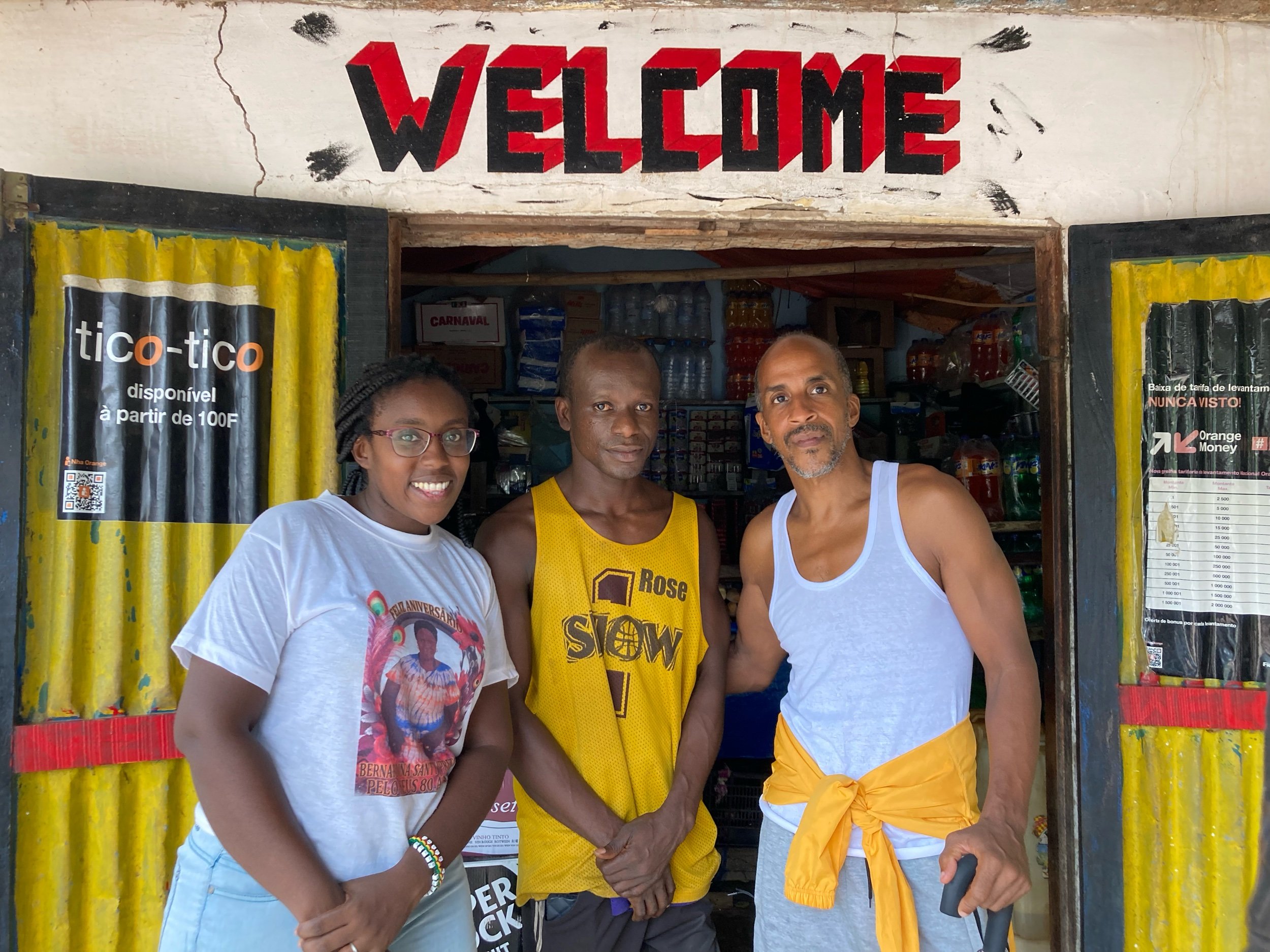Tanya is a young woman. Susana is a town in the northwest corner of Guinea Bissau, West Africa. The Djola/Felupe are a people and Essangai is a ceremony. This is a story about all of them.
Daiana and I realised that neither of us had the traditional cleaning and cooking skills, nor had the time or desire to develop them. So we decided to hire some “house help” to do shopping and take care of the house. The first girl we interviewed didn’t “fit the bill” as we say. The second girl we interviewed was perfect.
Tanya is a young girl with a vibrant personality. She started working in our home and immediately made our house better. Daiana gives her a shopping list and list of chores and like magic, everything gets done.
Tanya told us that she needed some time off to take her son to the town of Susana for a special ceremony called Essangai. It is held to prepare for the 30-year “Fanado” initiation. To show Tanya that we were interested in her life, we decided to go with her. It was also an opportunity to make connections with the Djola people, also called Felupe, for the Decade of Return initiative we have developed here in Guinea Bissau. So, on Sunday July 23, at 7:30 am, we joined Tanya and her family to head out on the four hour journey…
After we arrived, we settled in, met Isabel, Tanya’s mother-in-law, and greeted everyone on the compound as is the custom. Village life in Susana is pretty much like village life everywhere else in Guinea Bissau
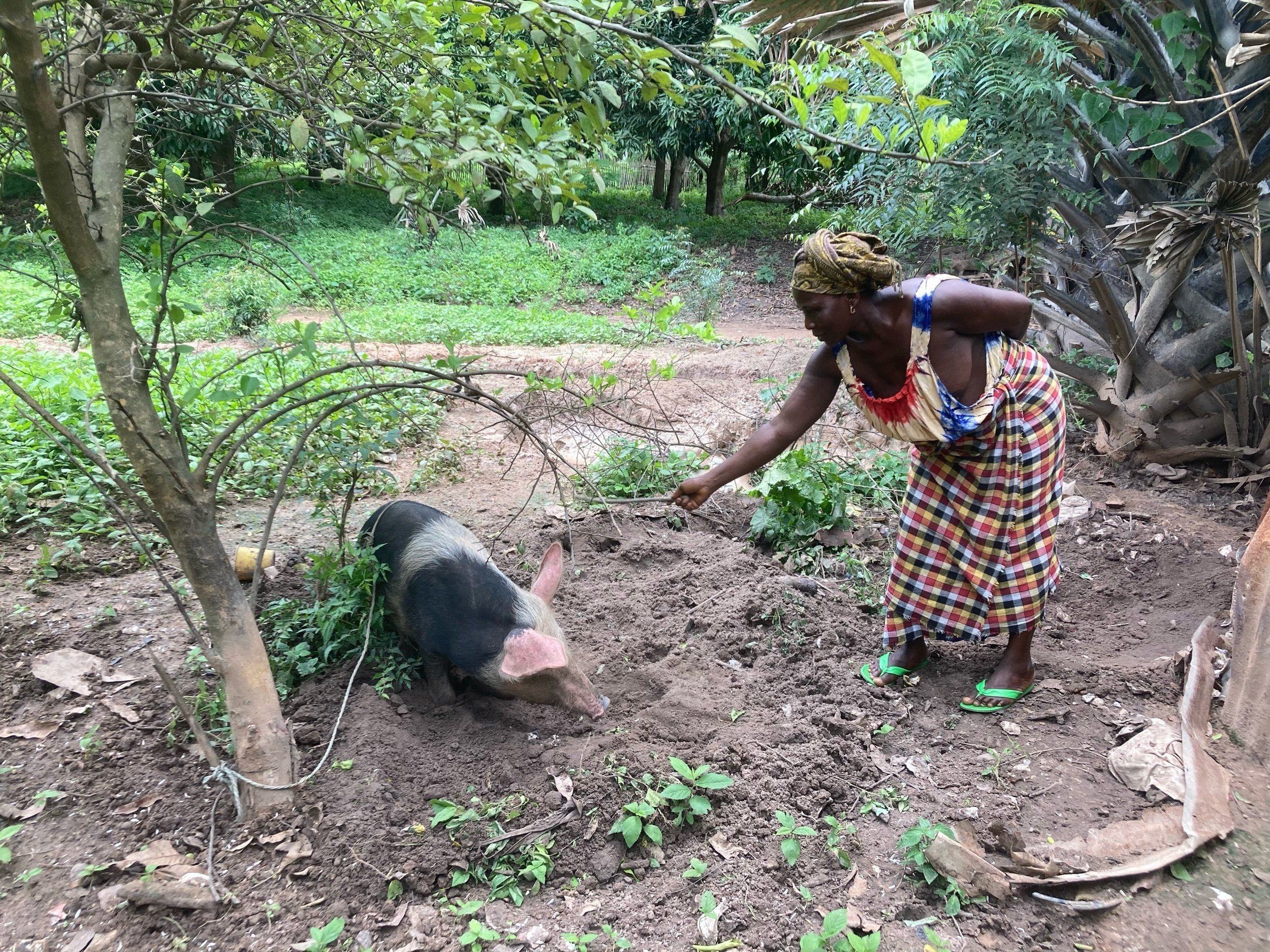
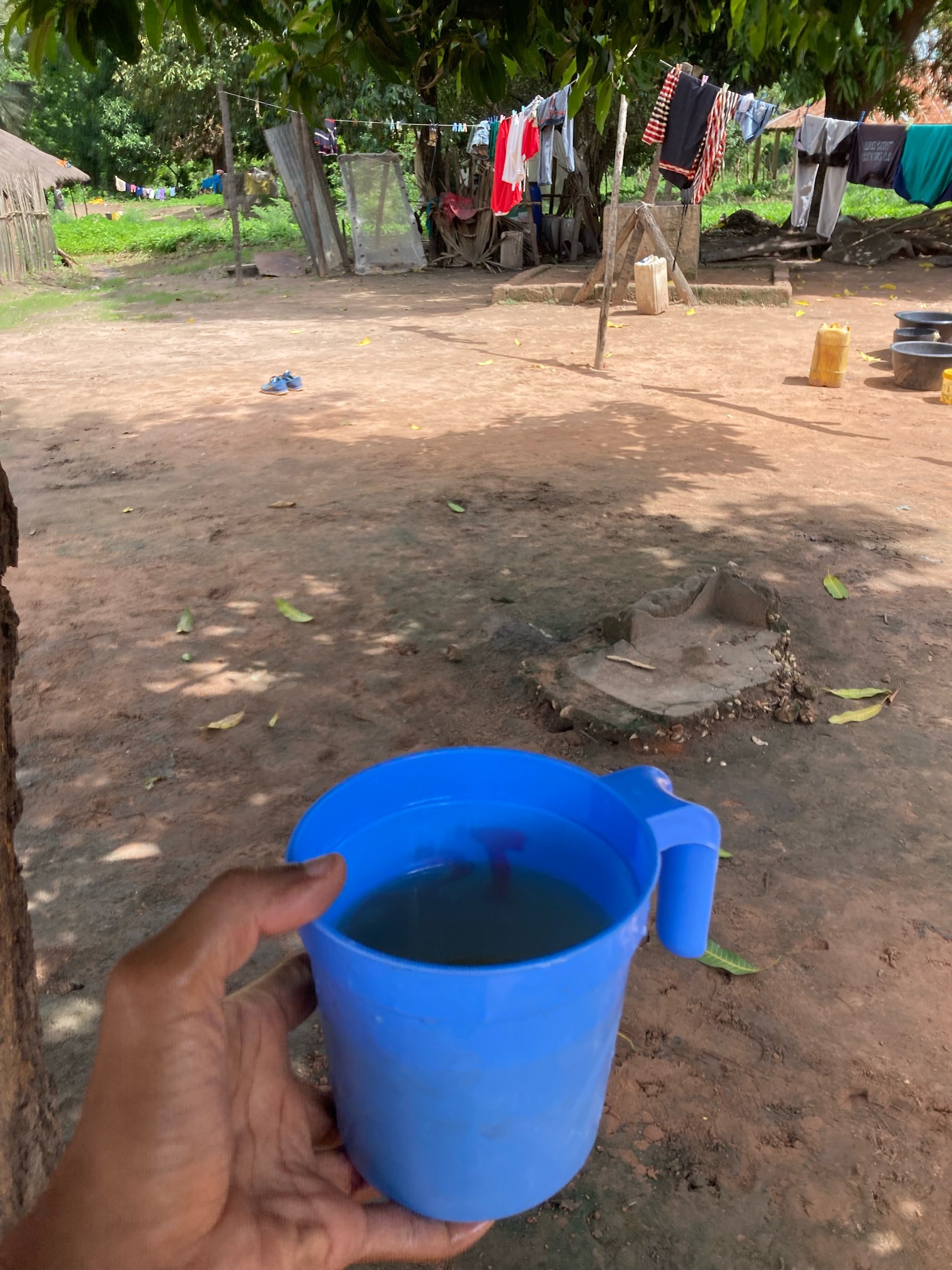
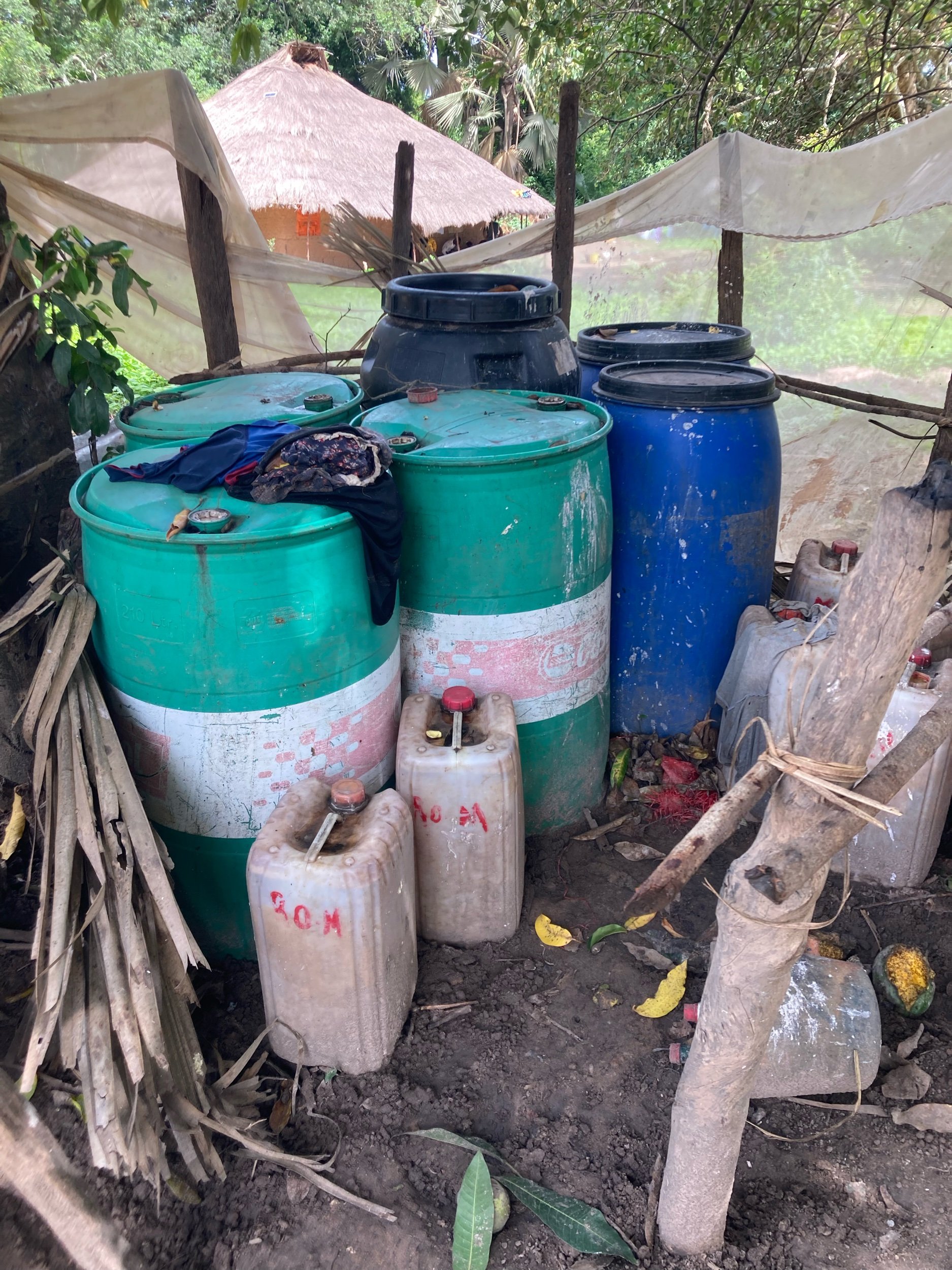
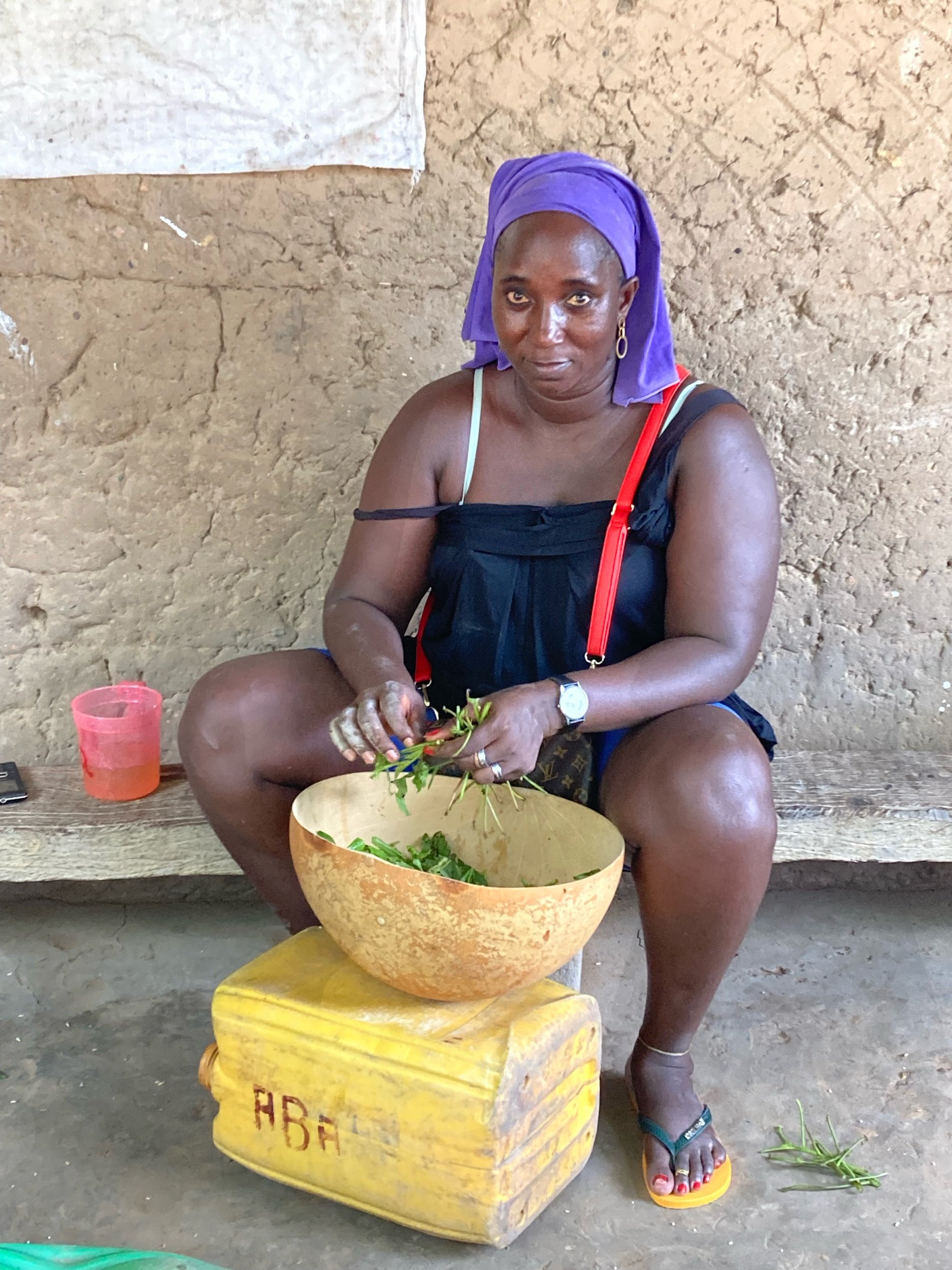
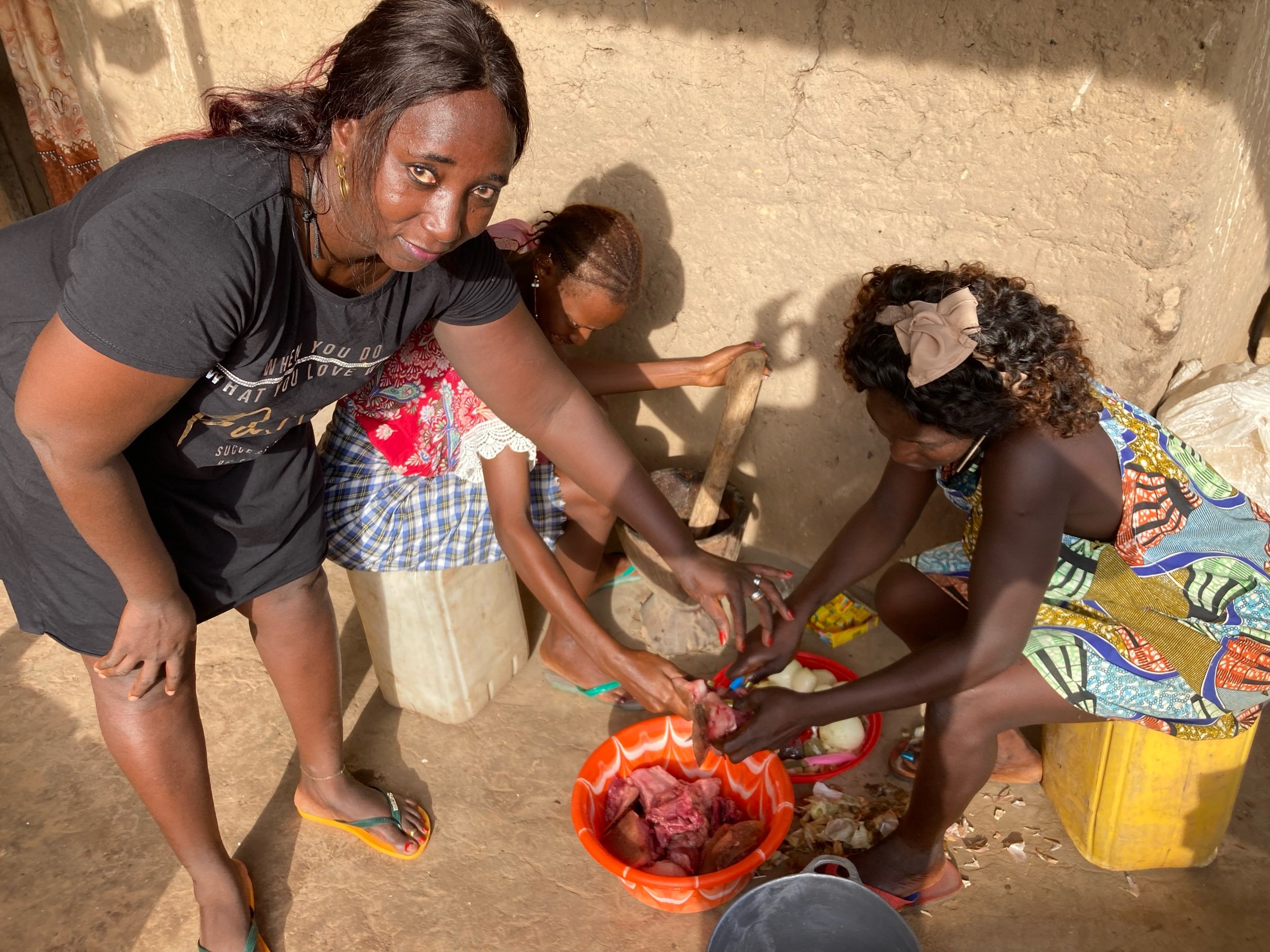
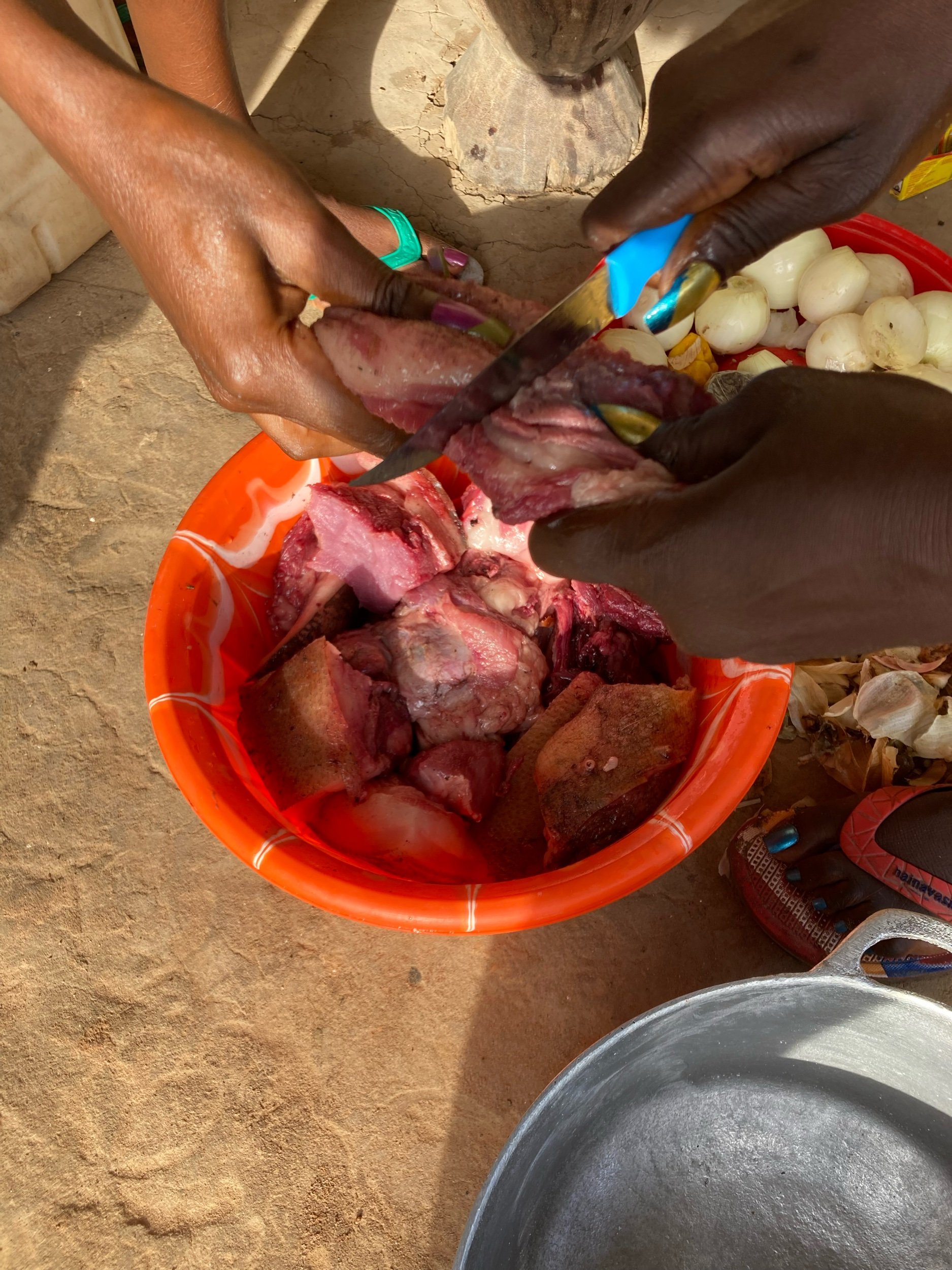
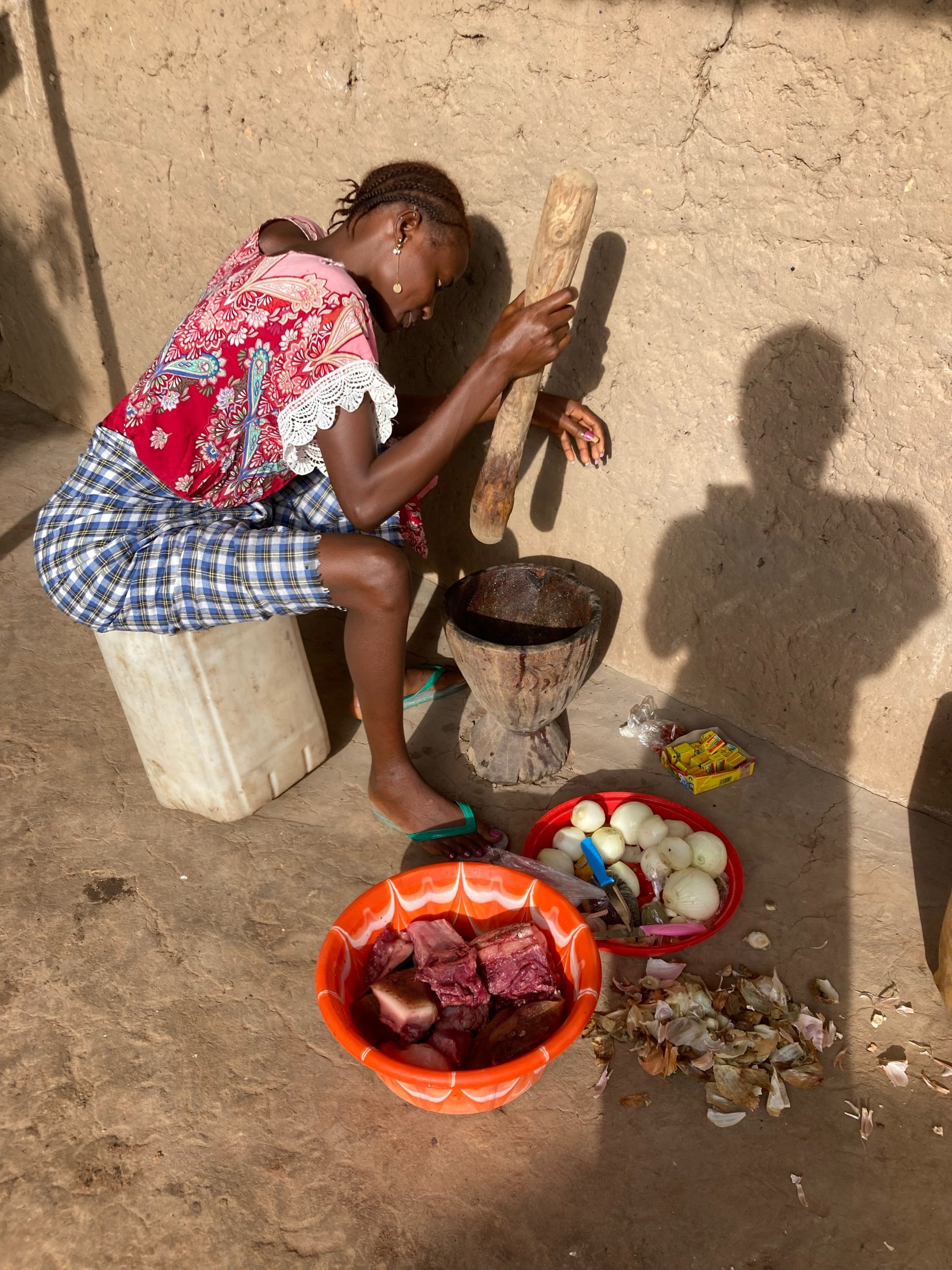
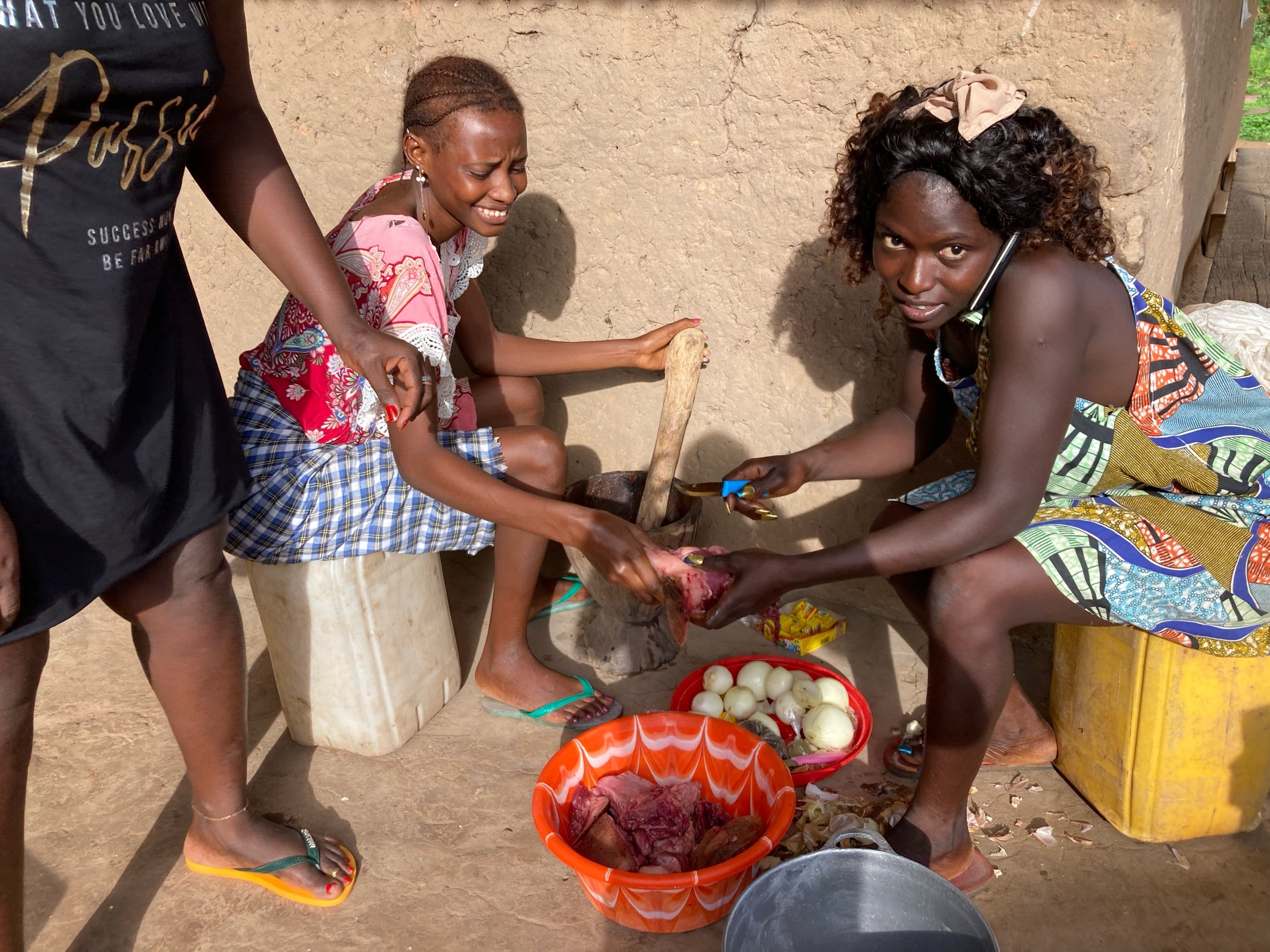
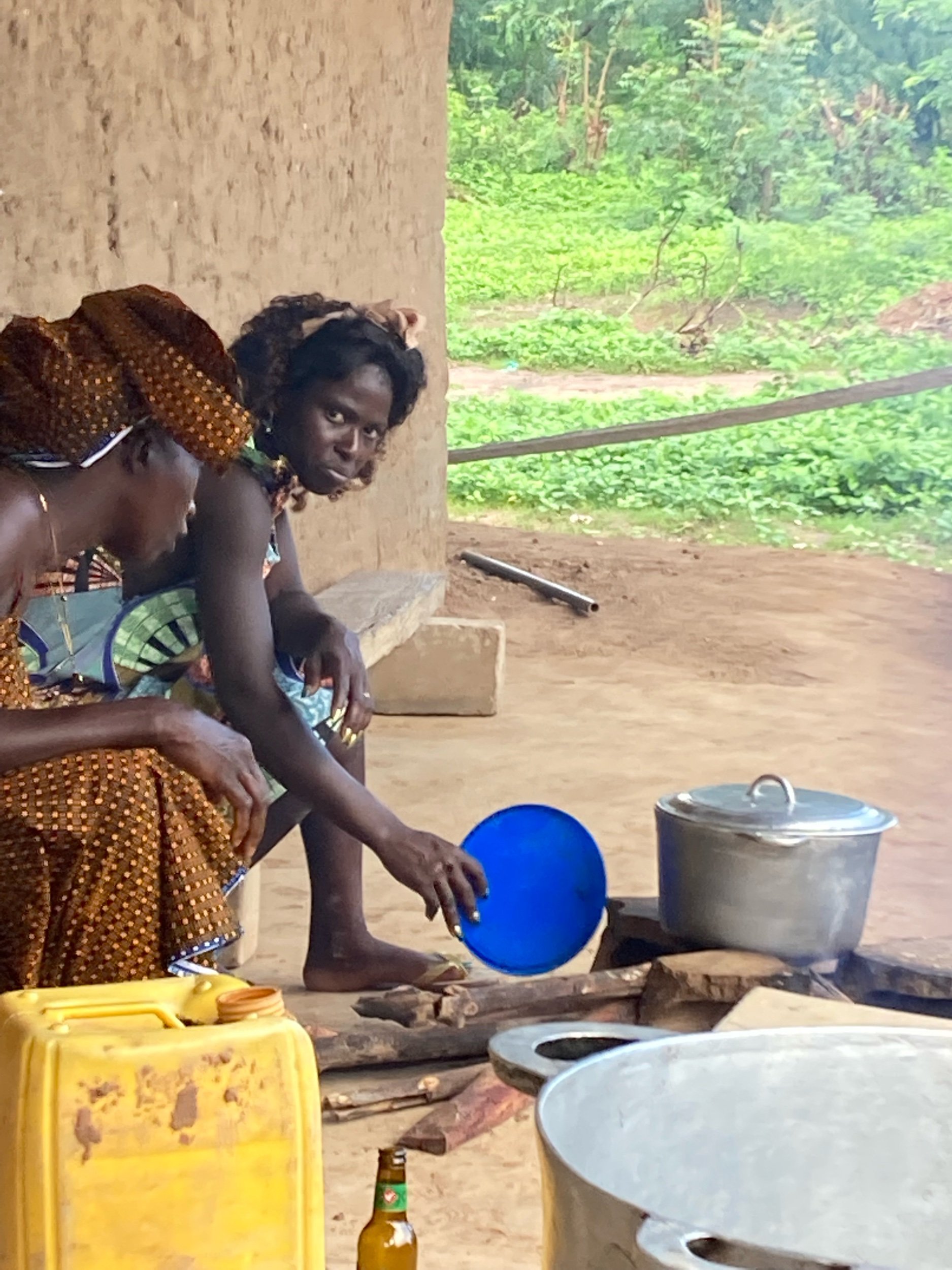
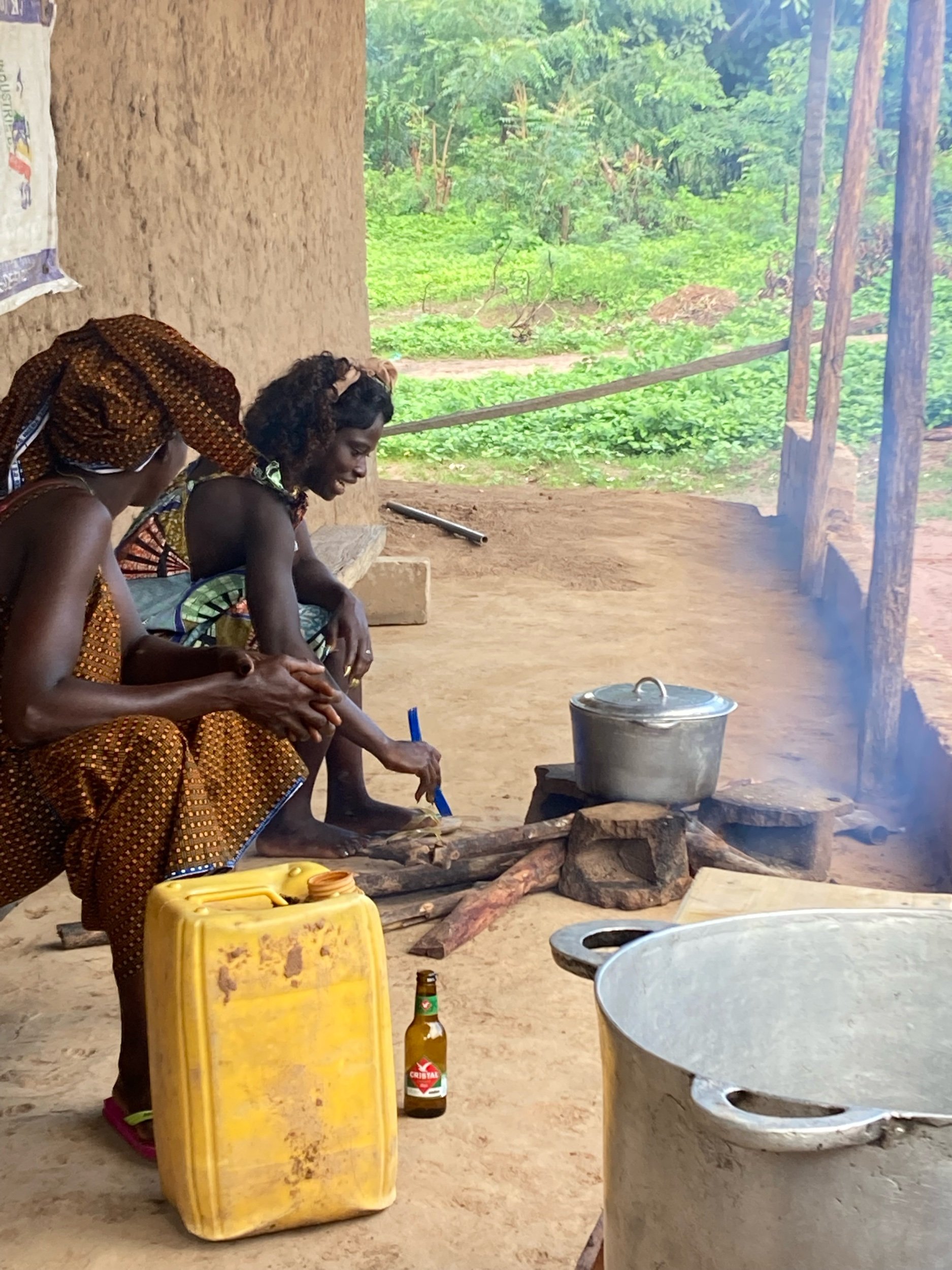
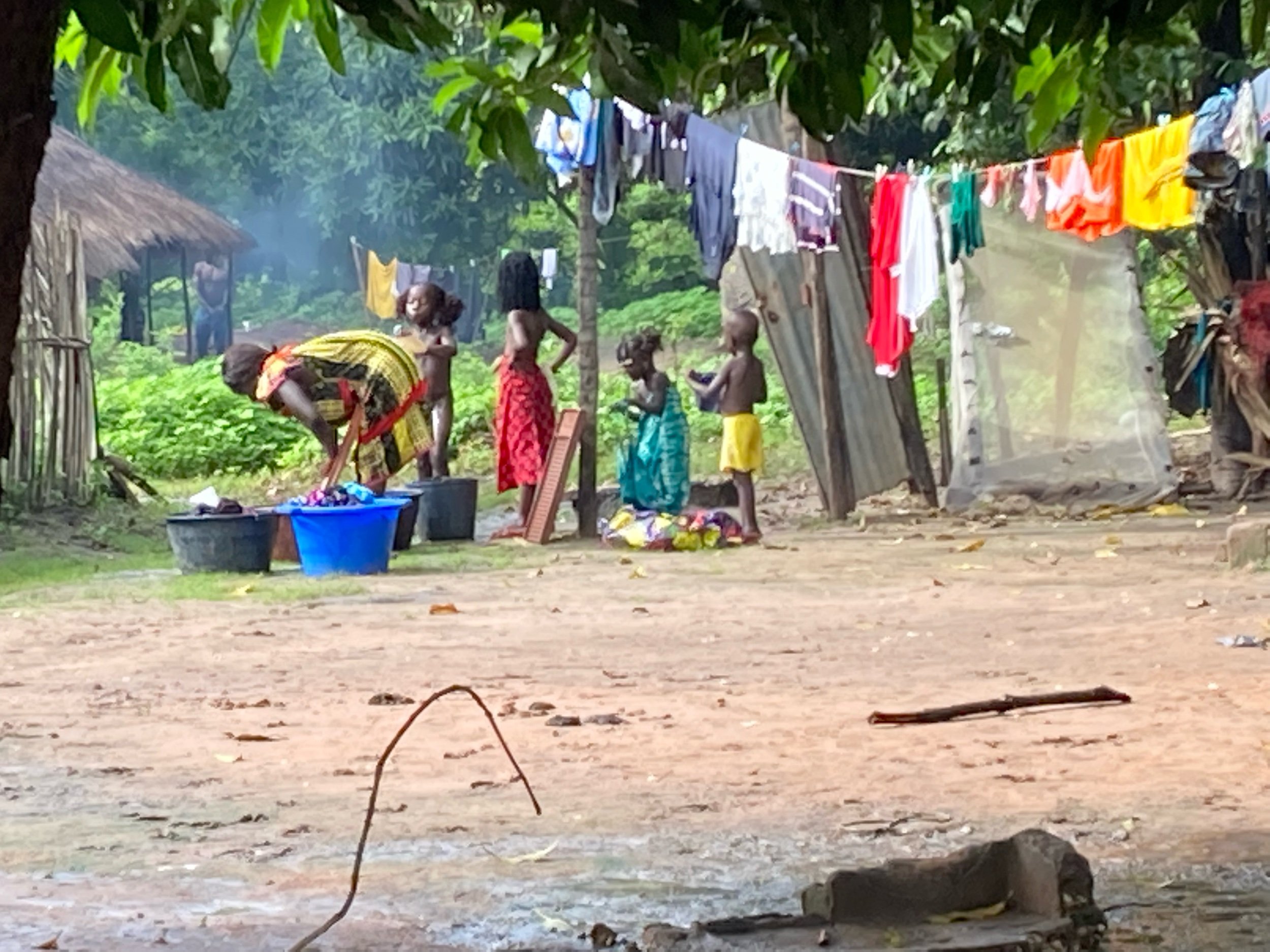
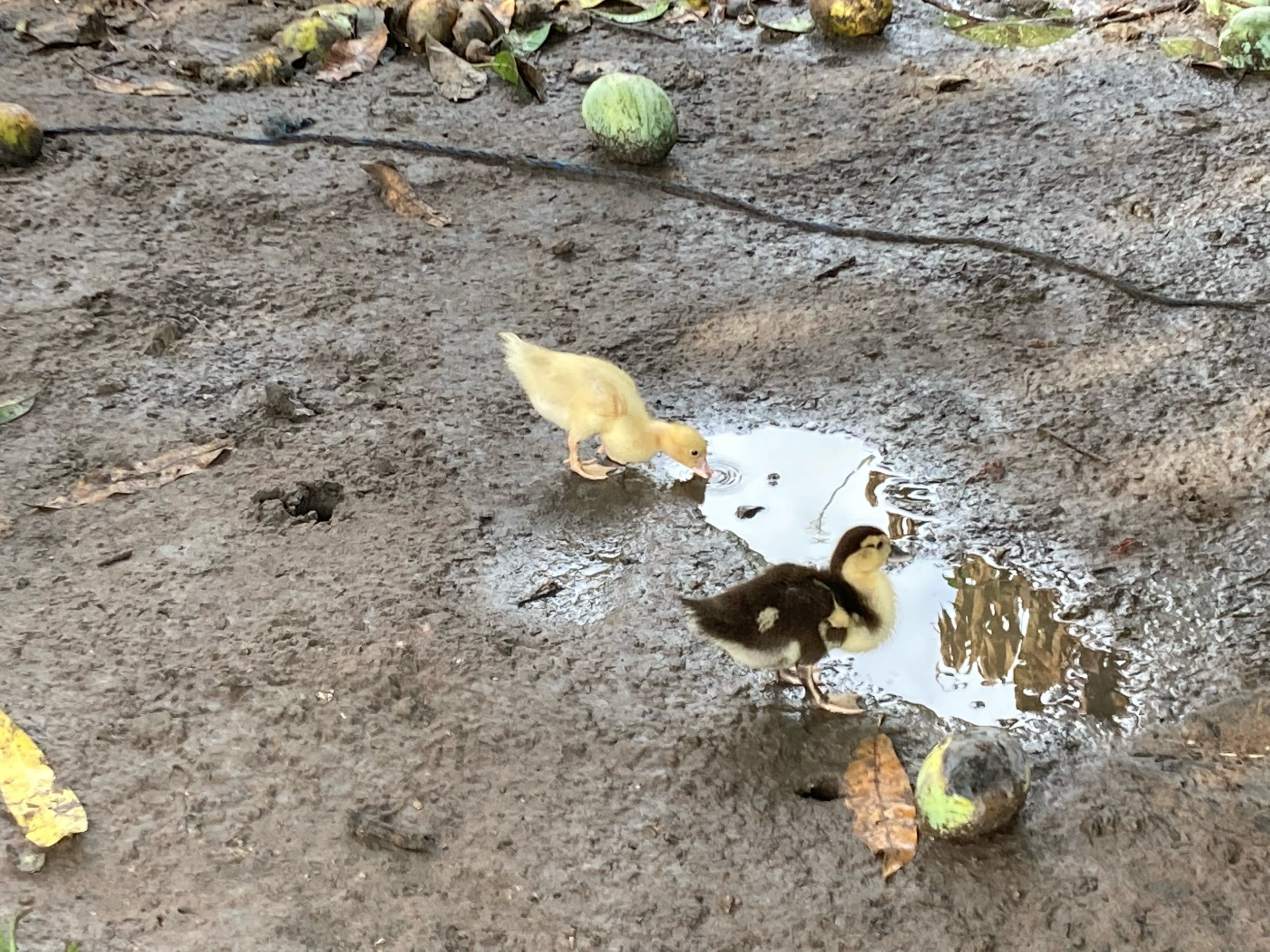
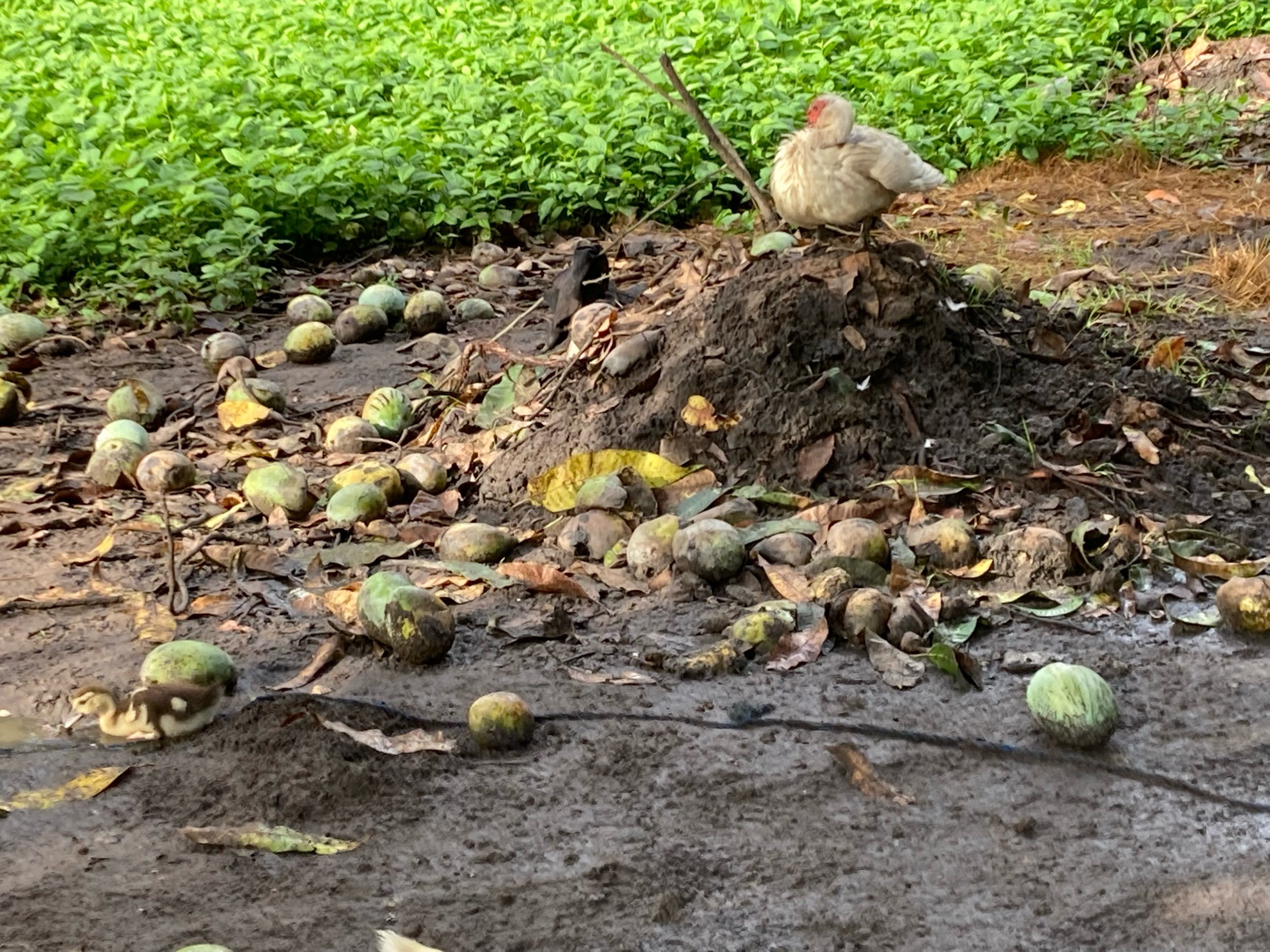
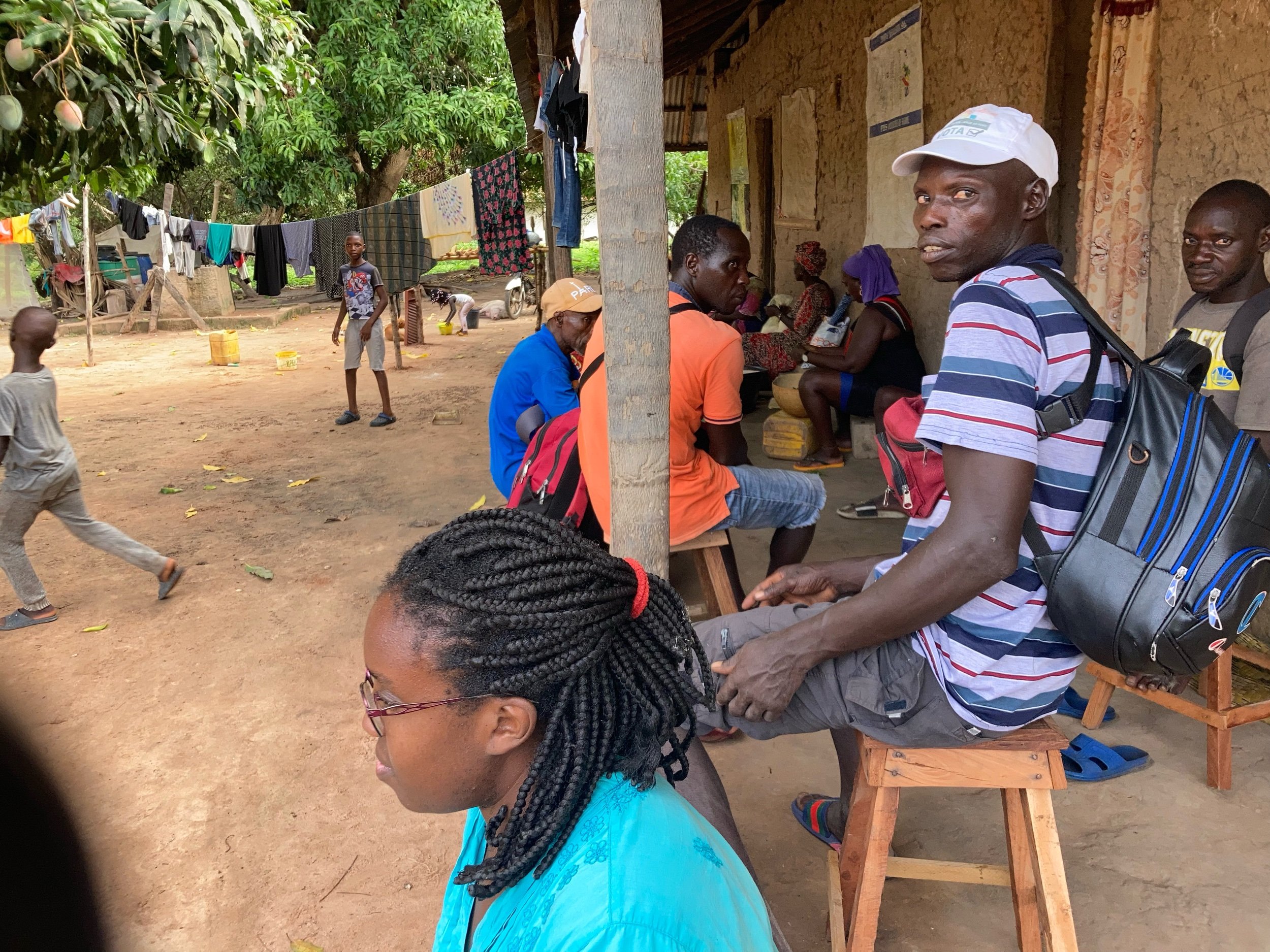
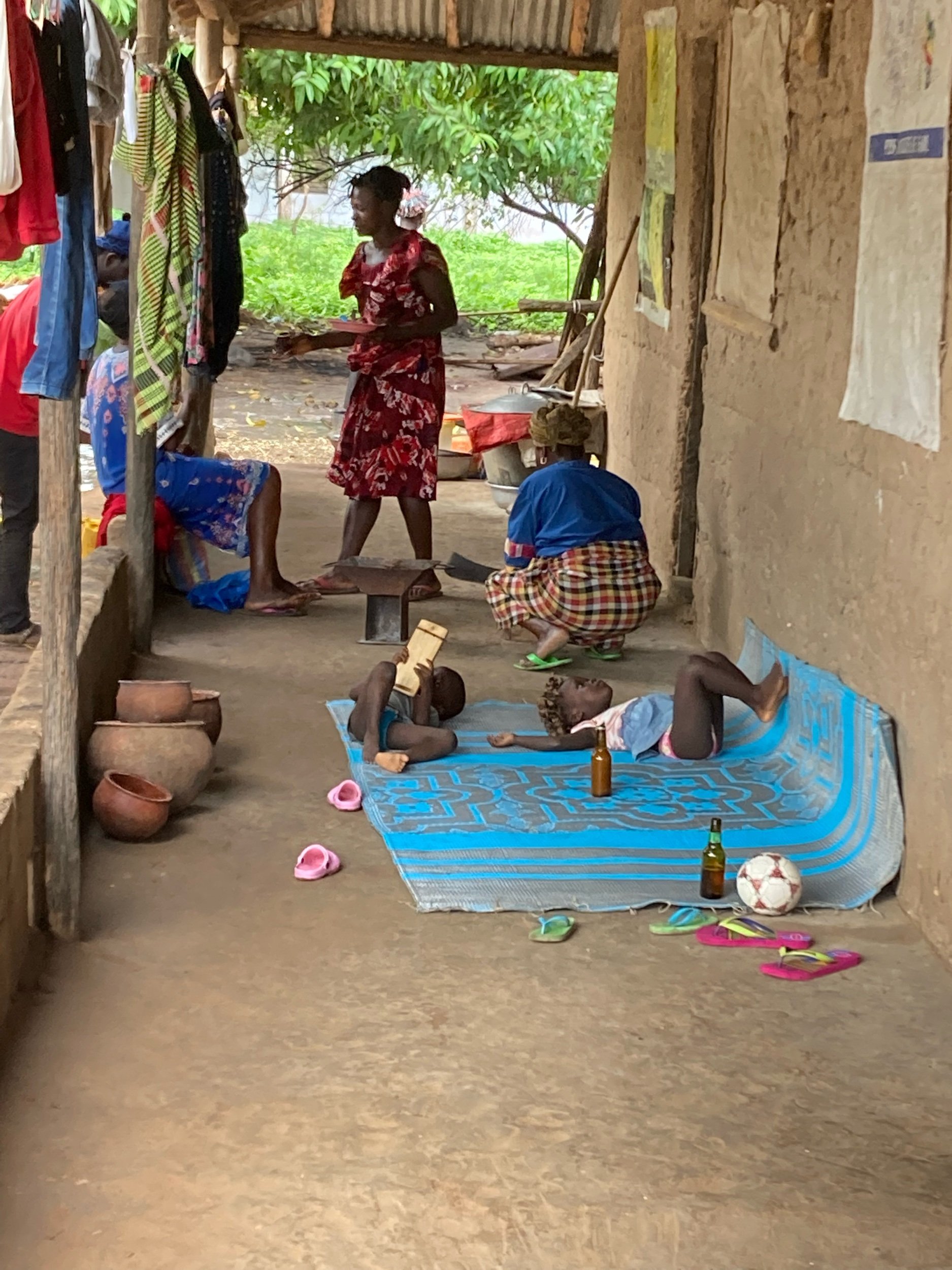
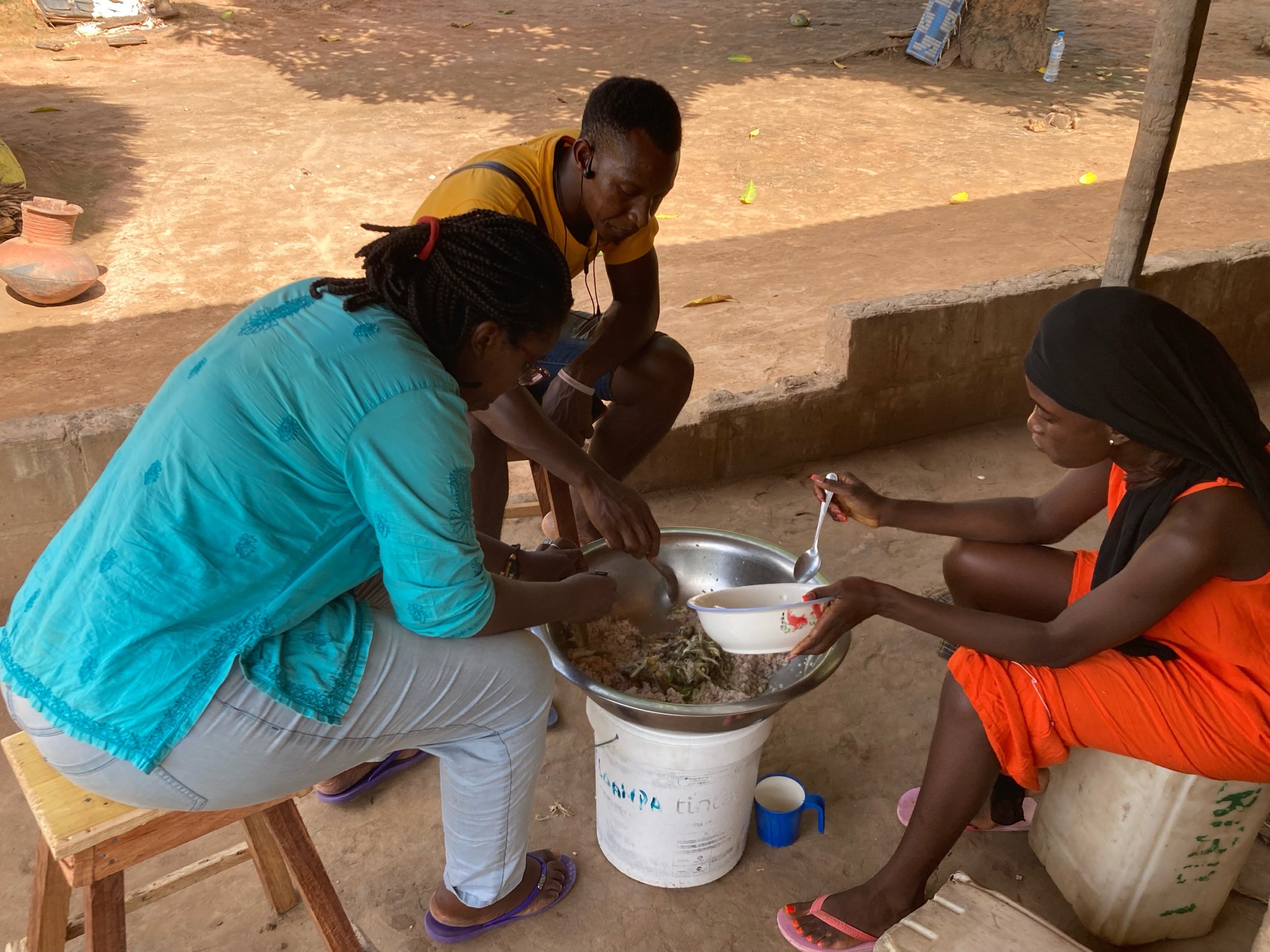
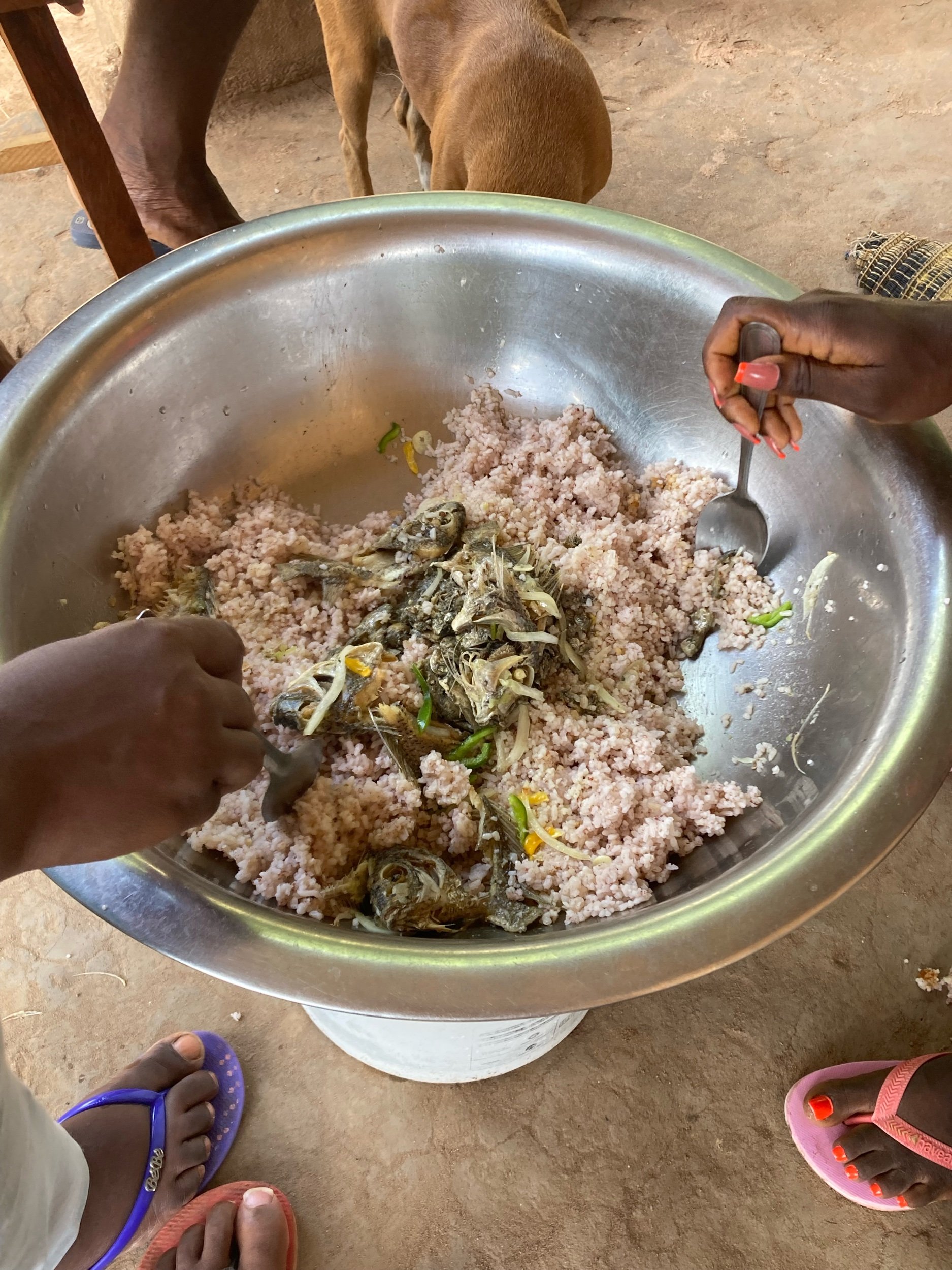
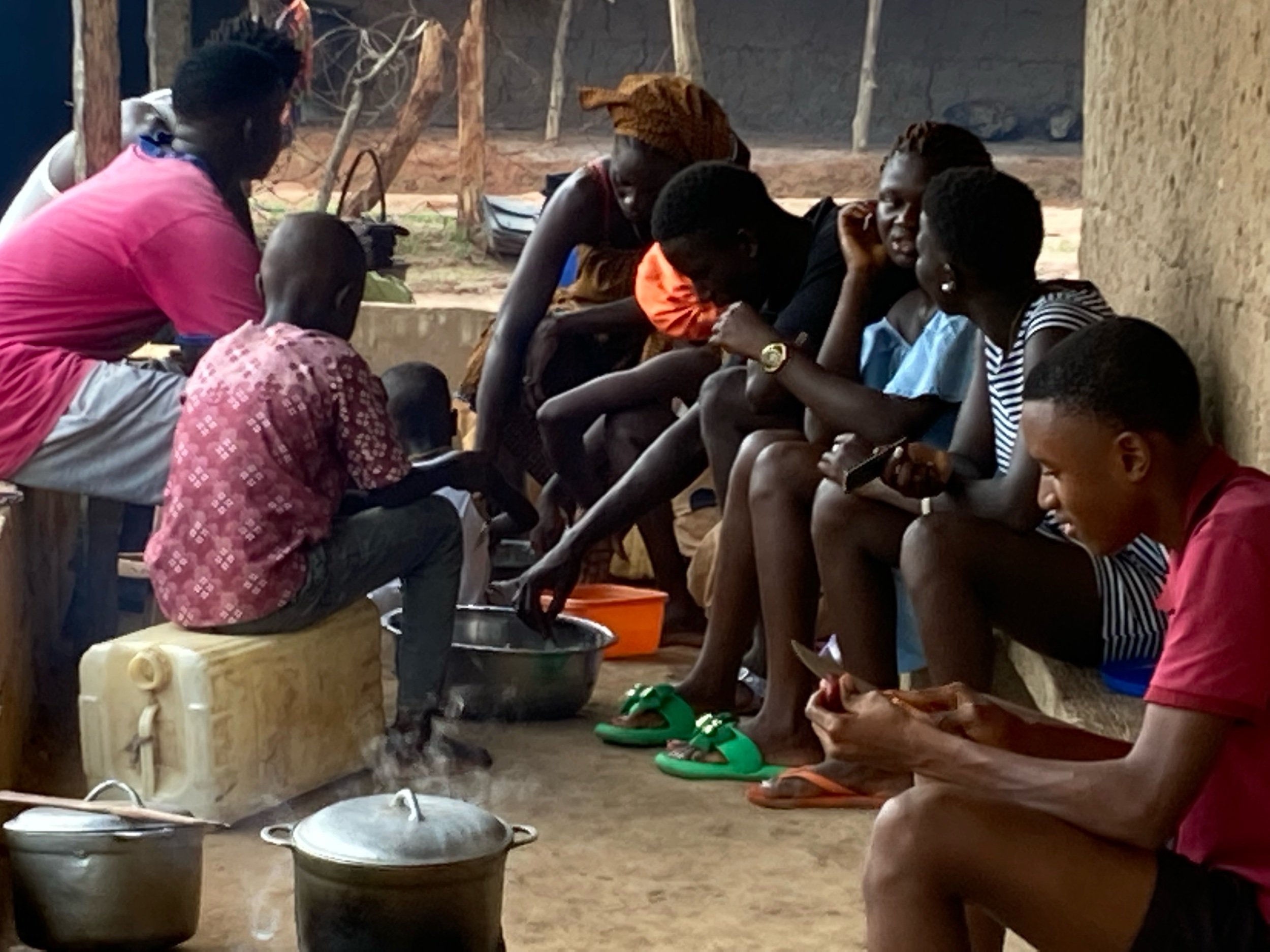
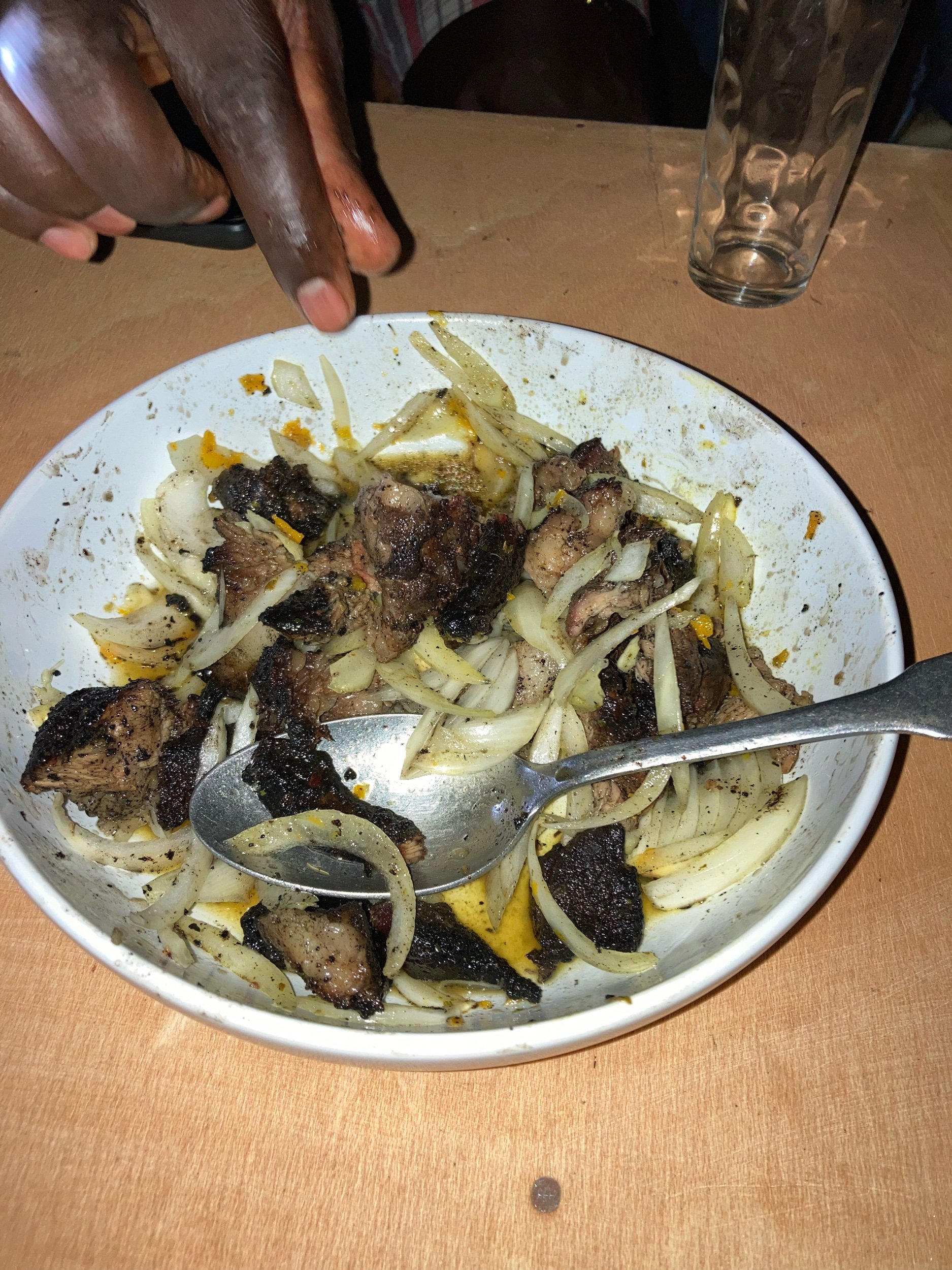
Later, I had the opportunity to see Tanya in her village life. It was both mundane and fascinating!
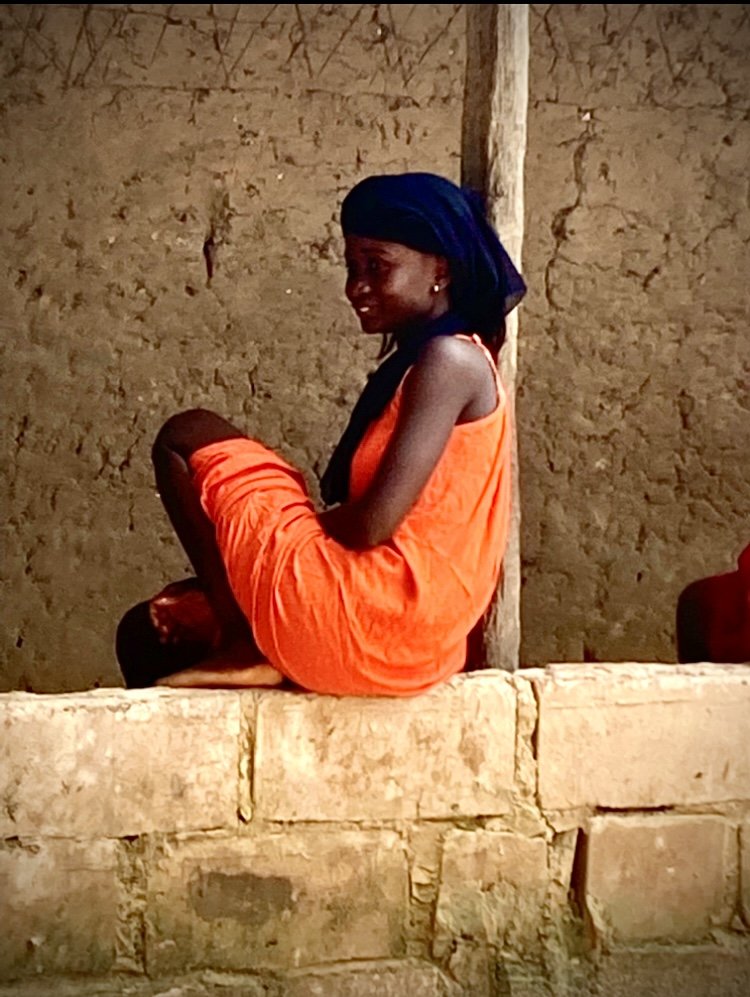
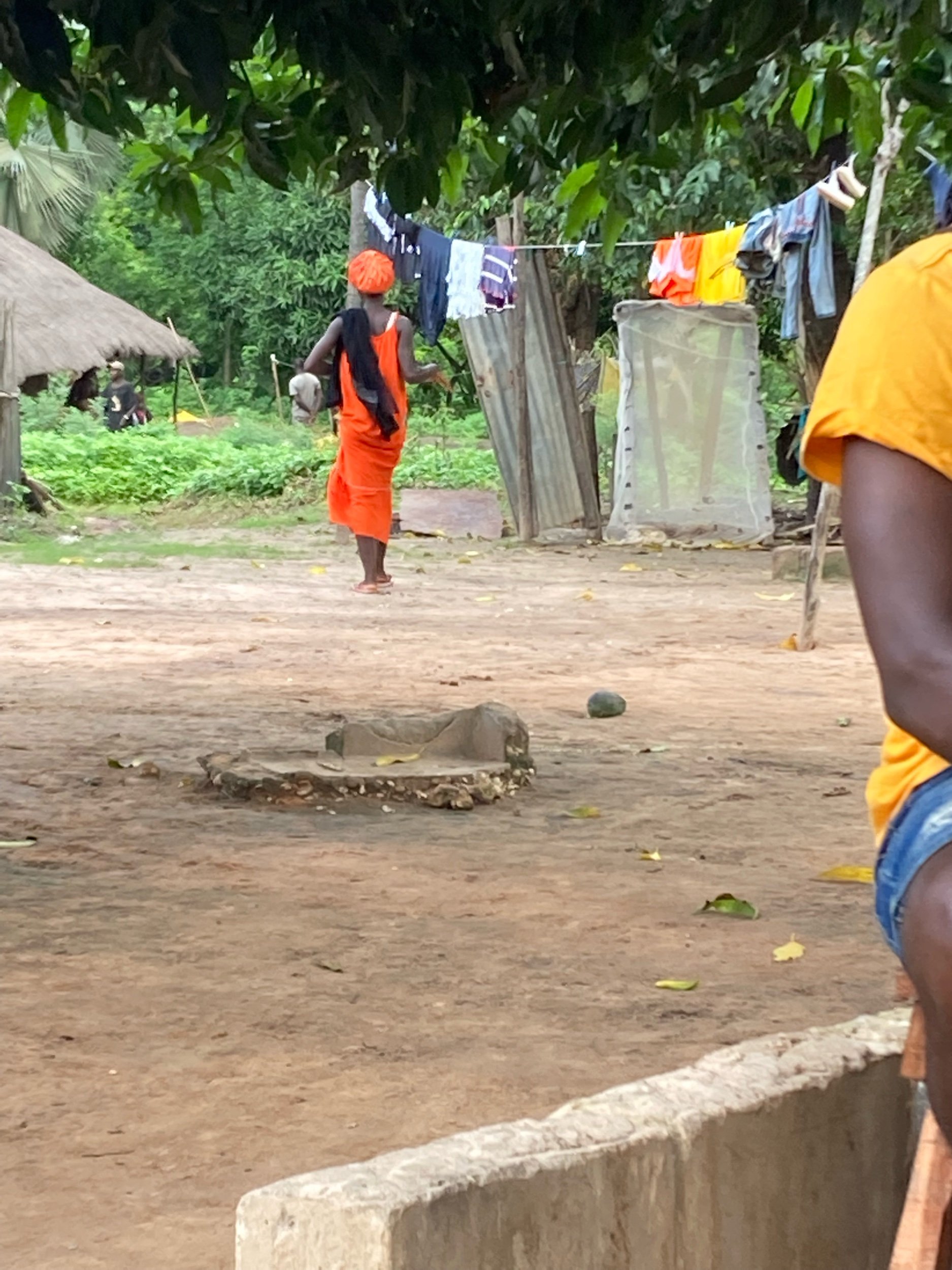

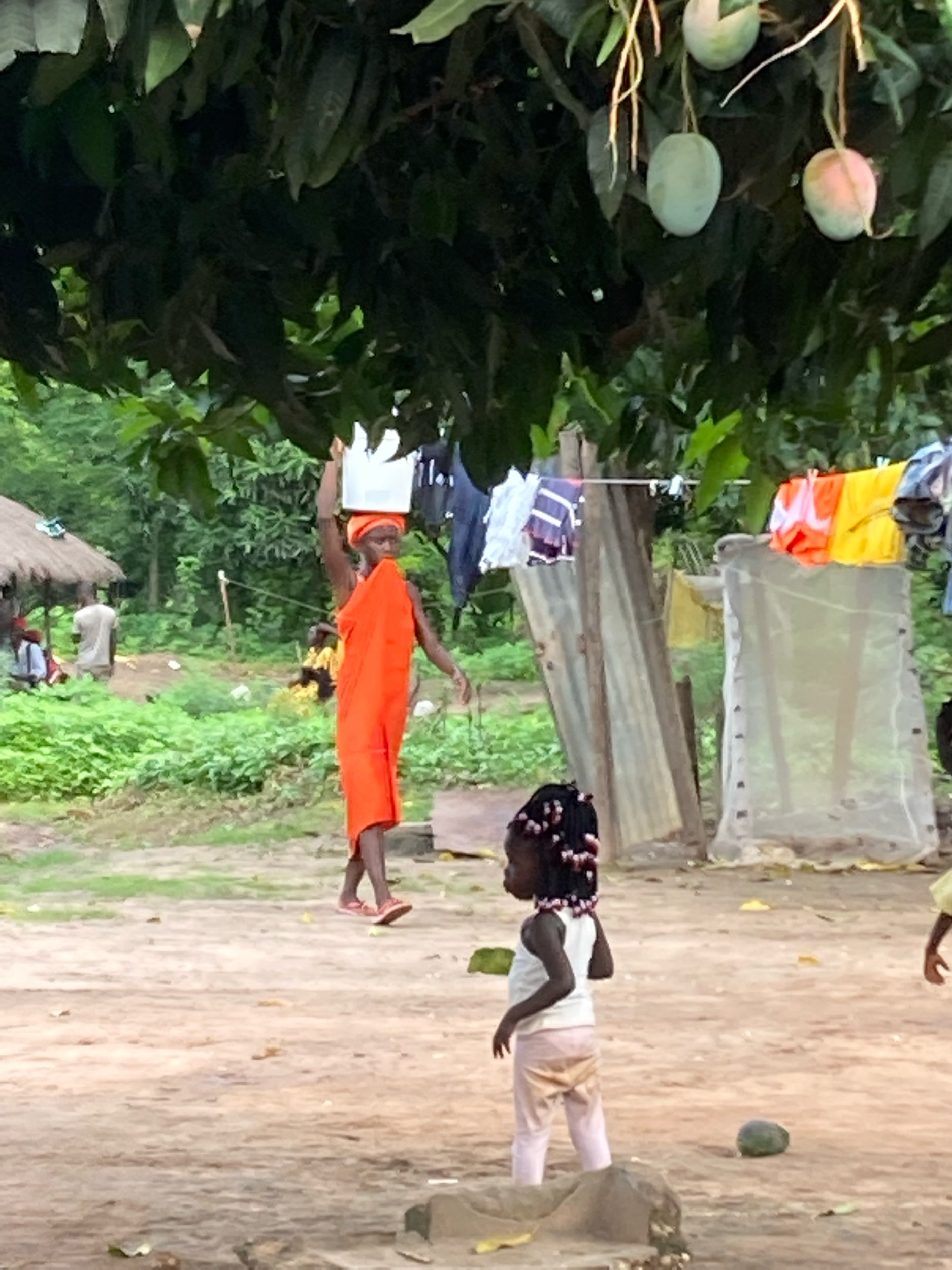
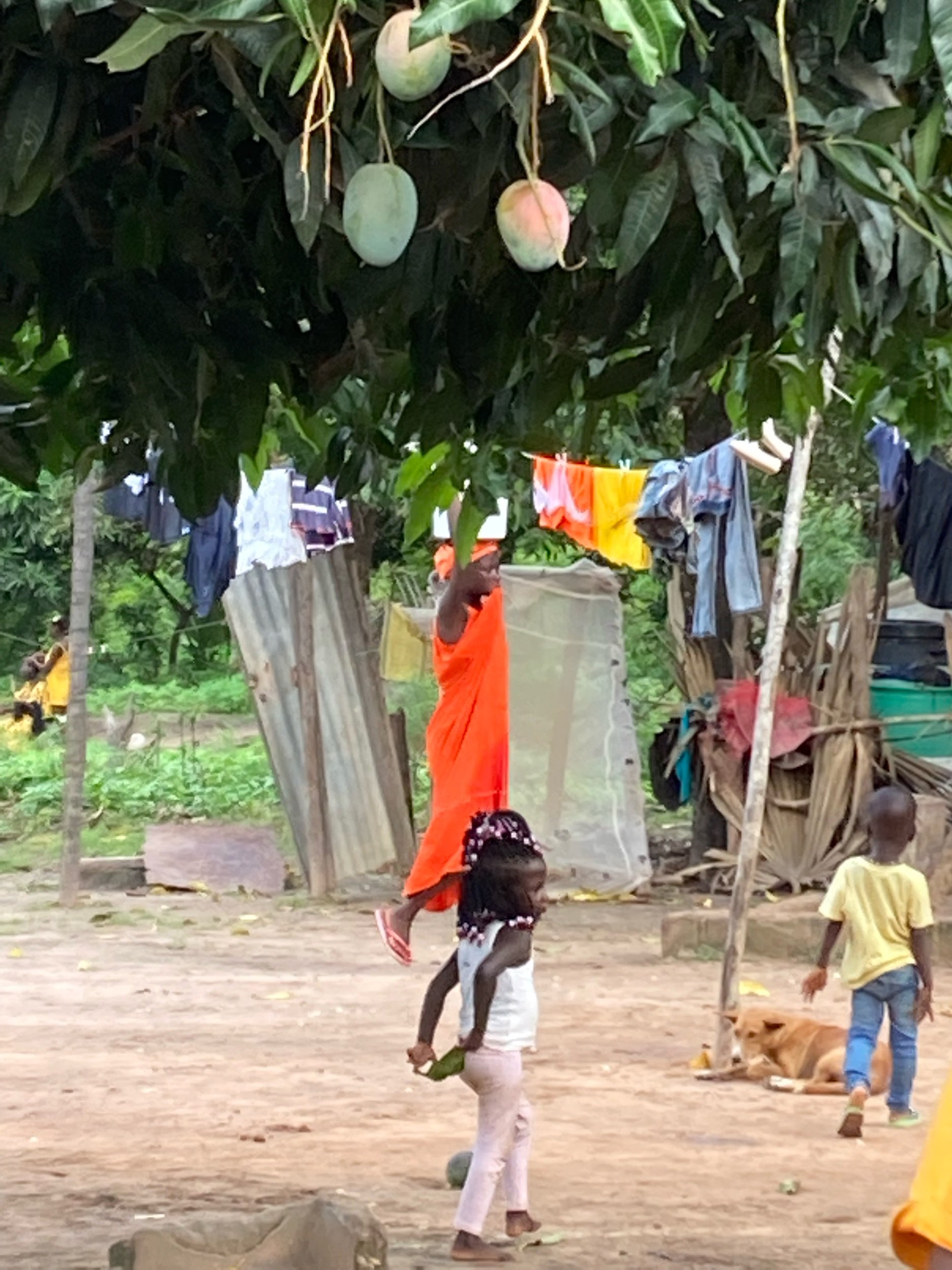
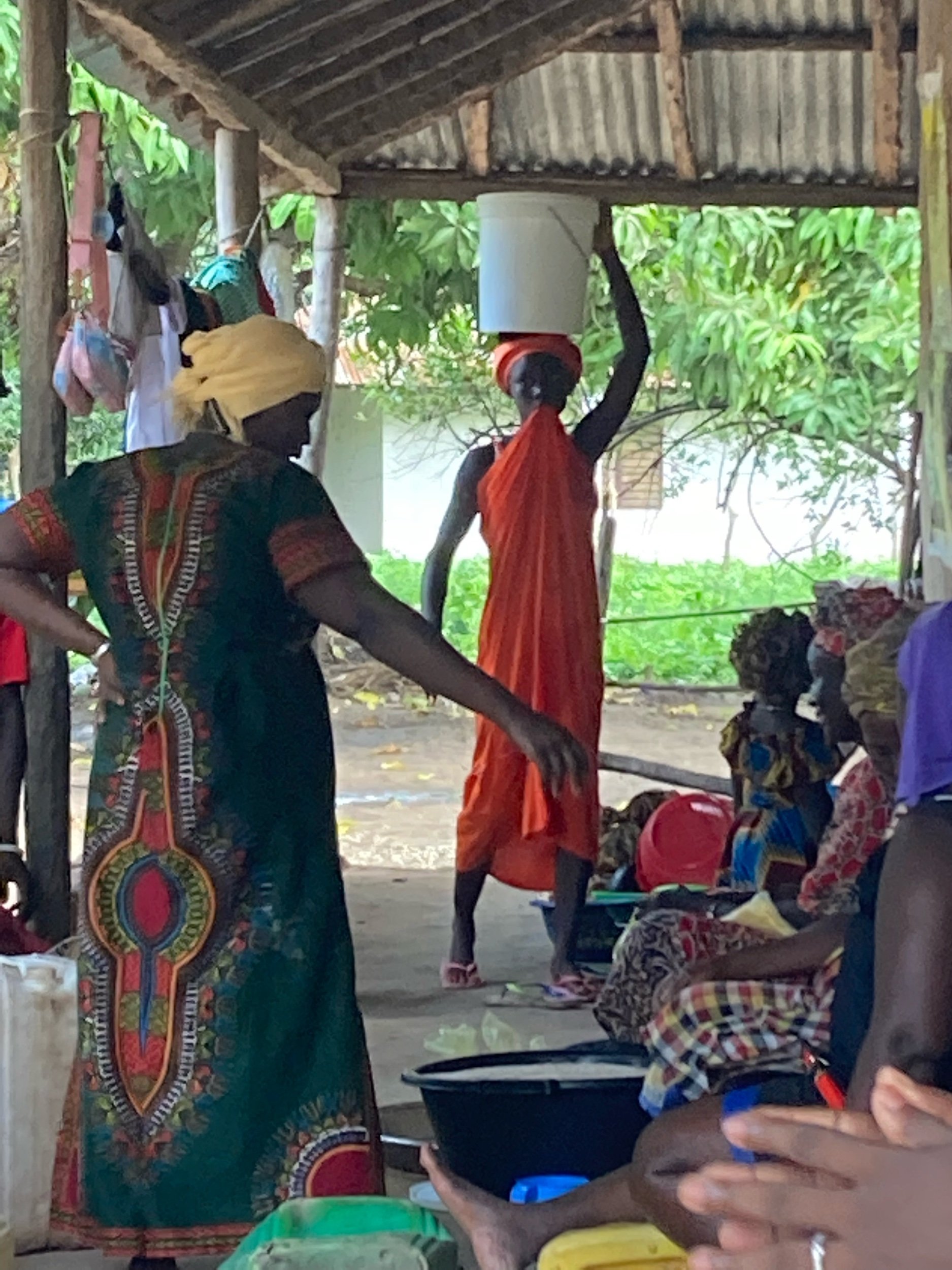
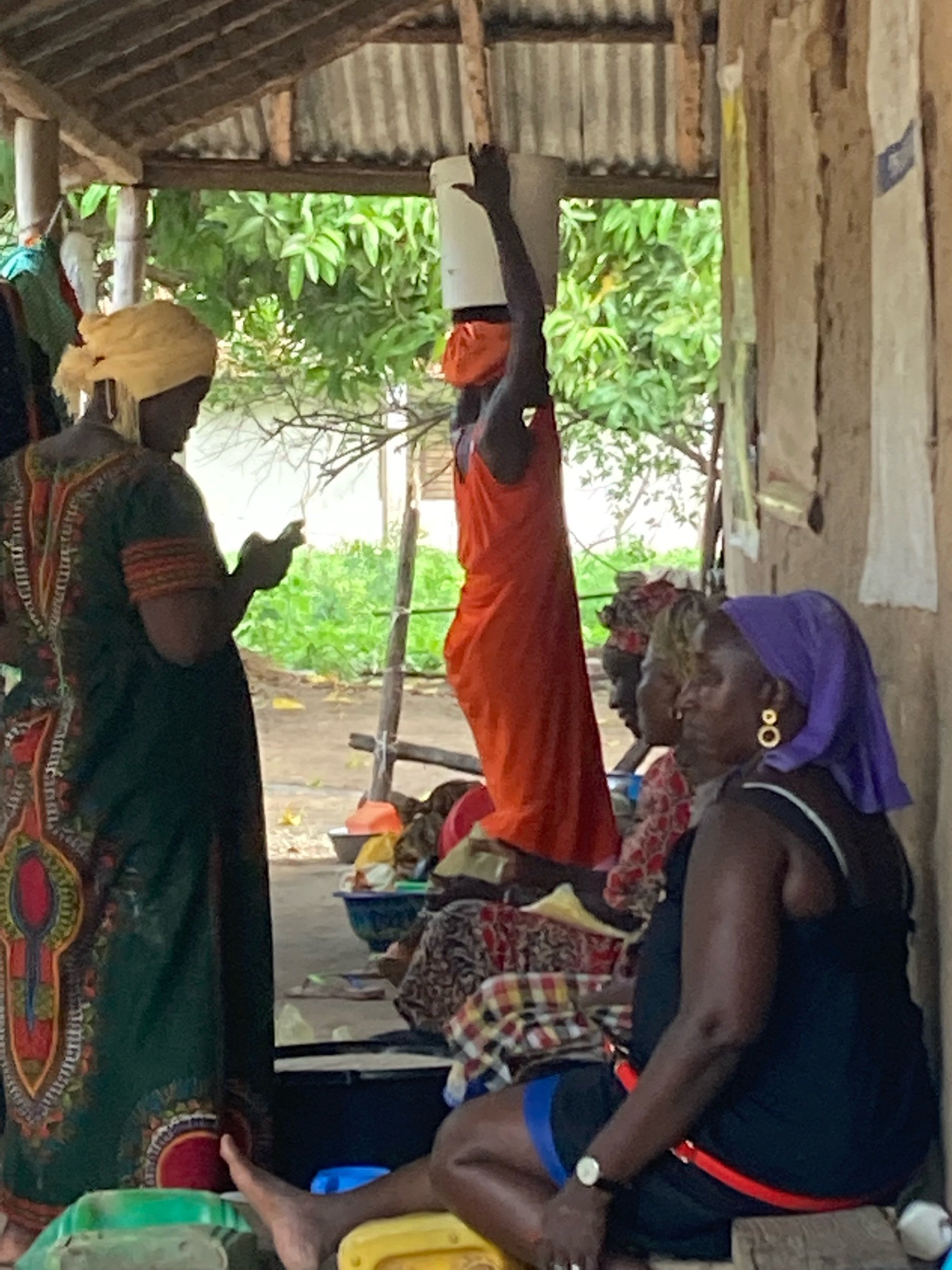
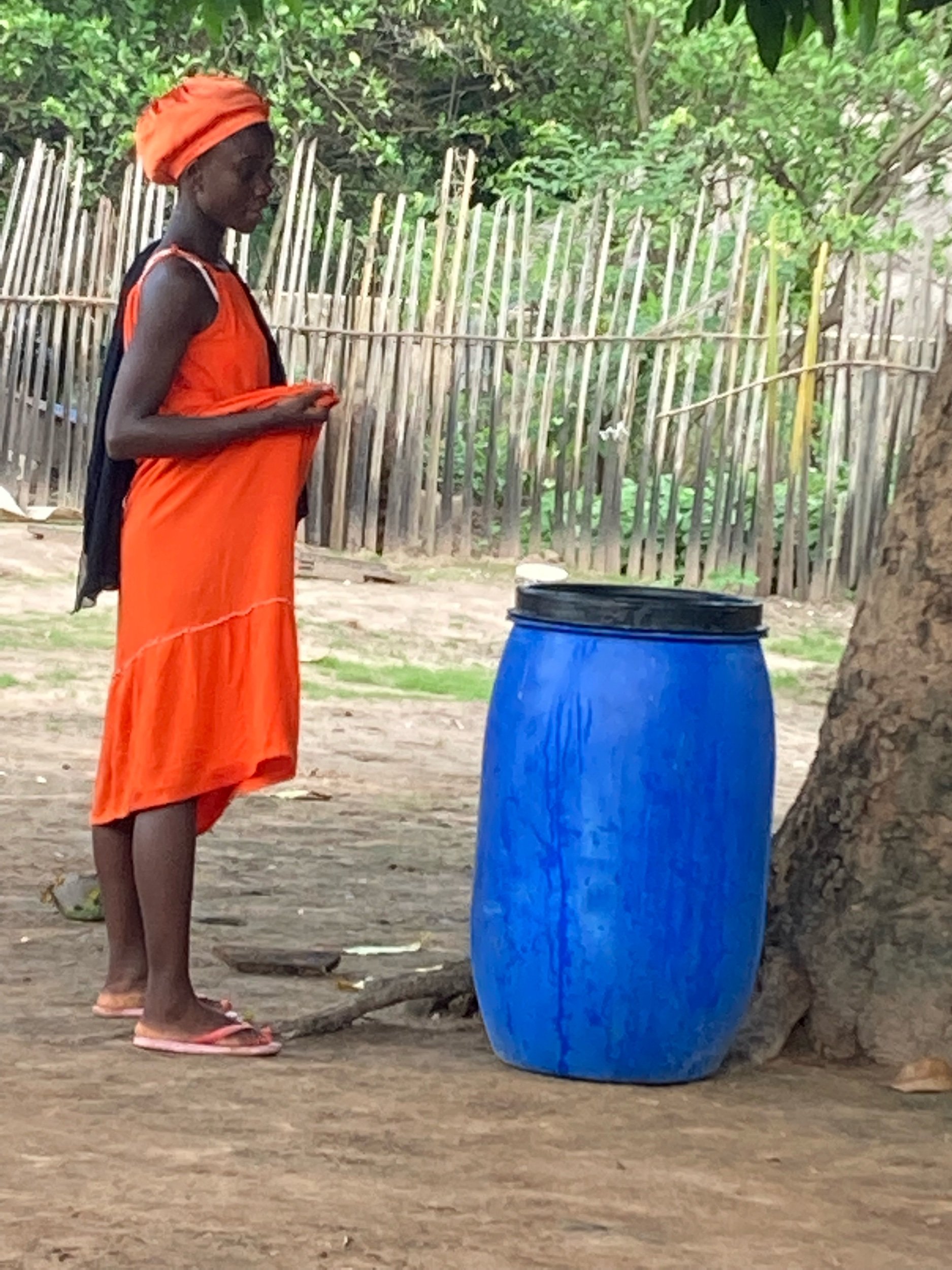
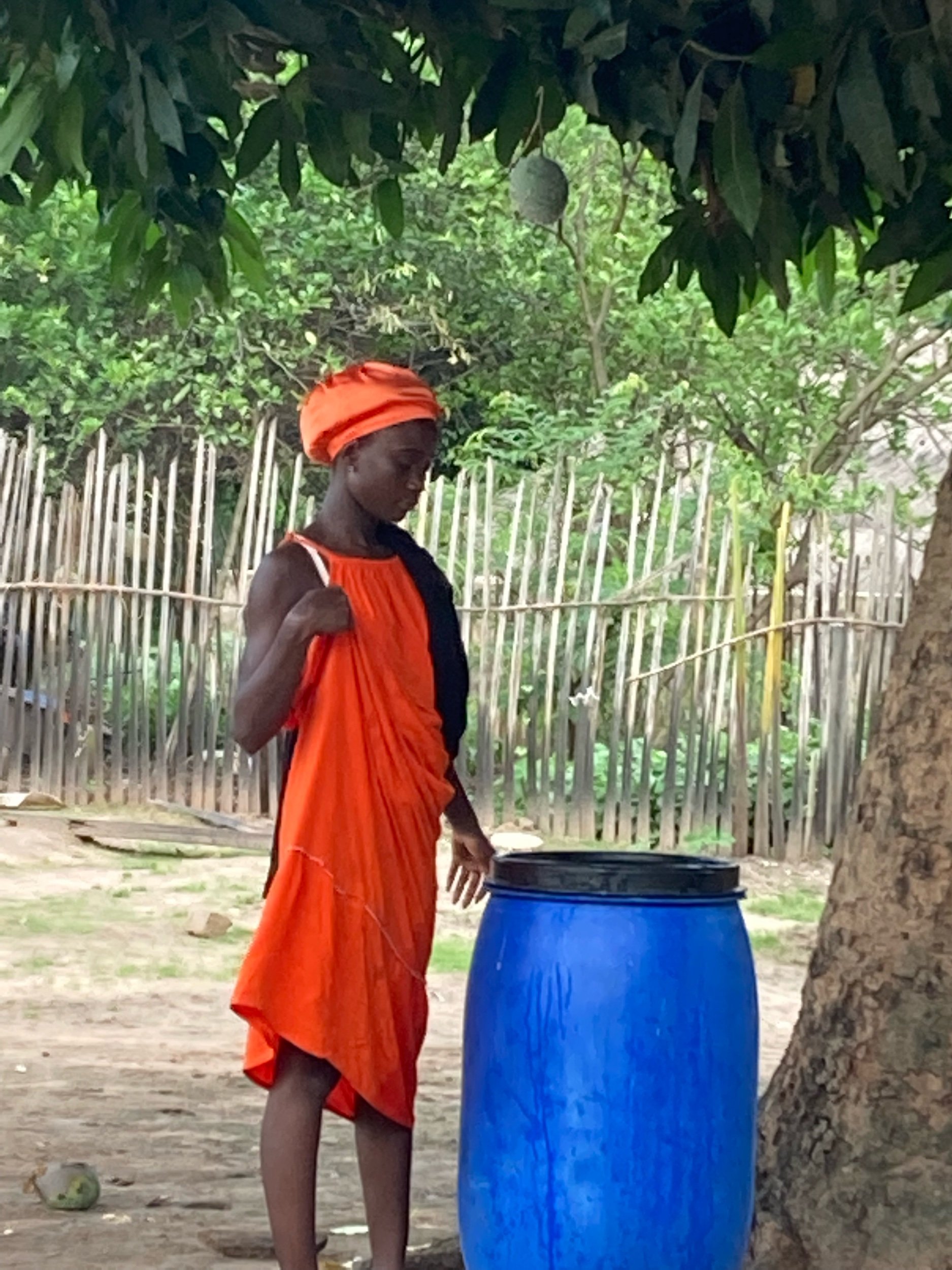
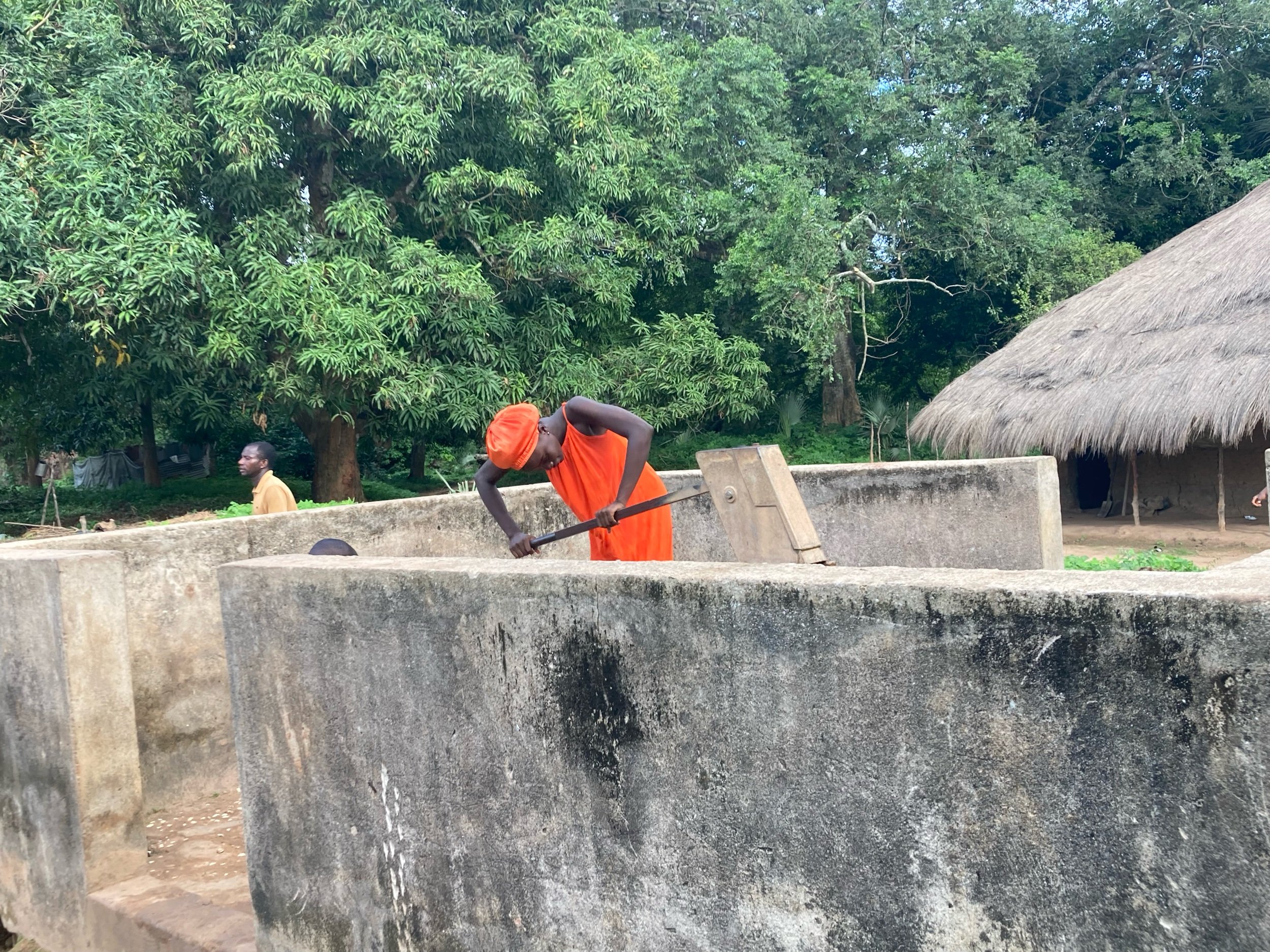
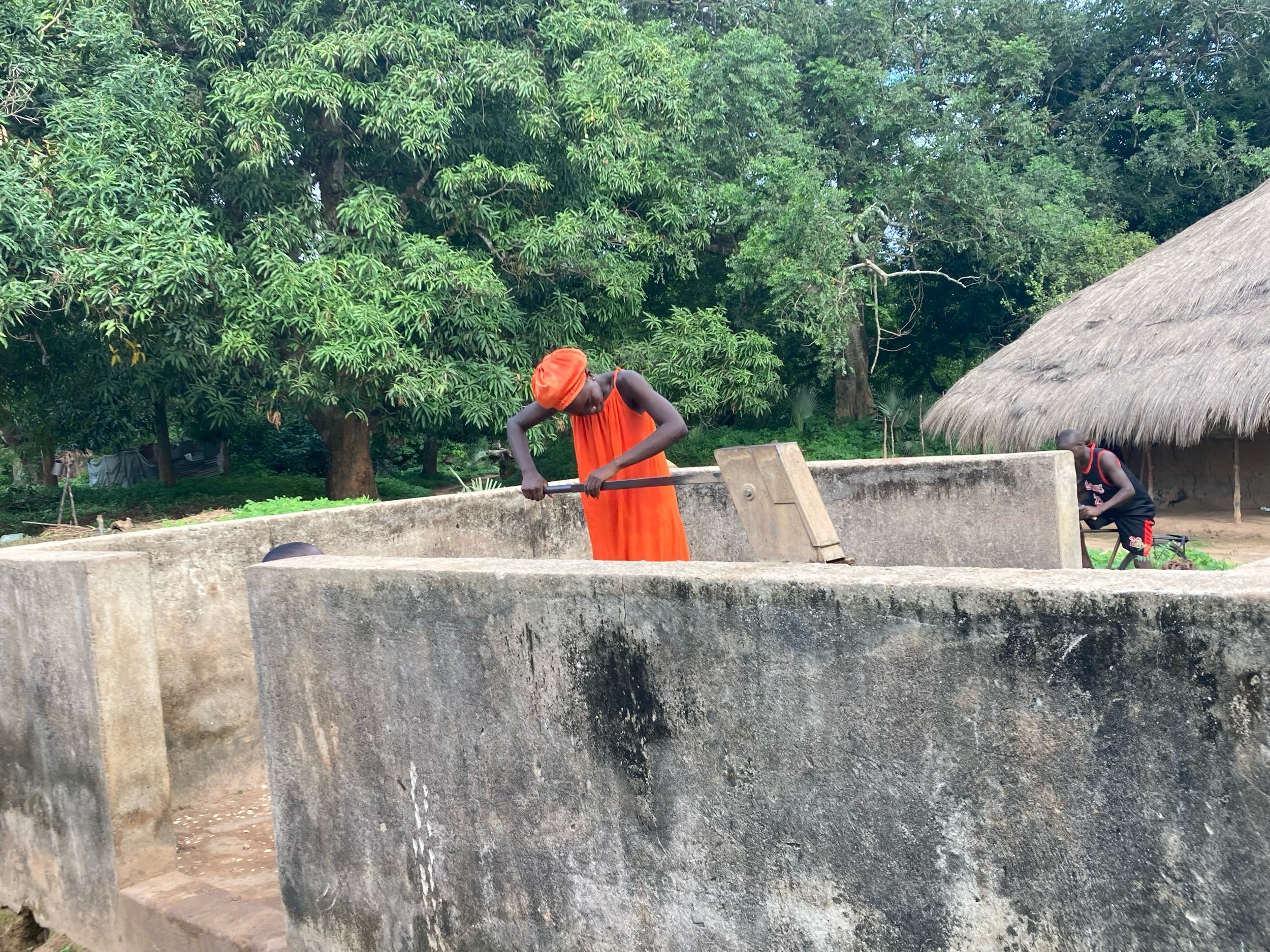
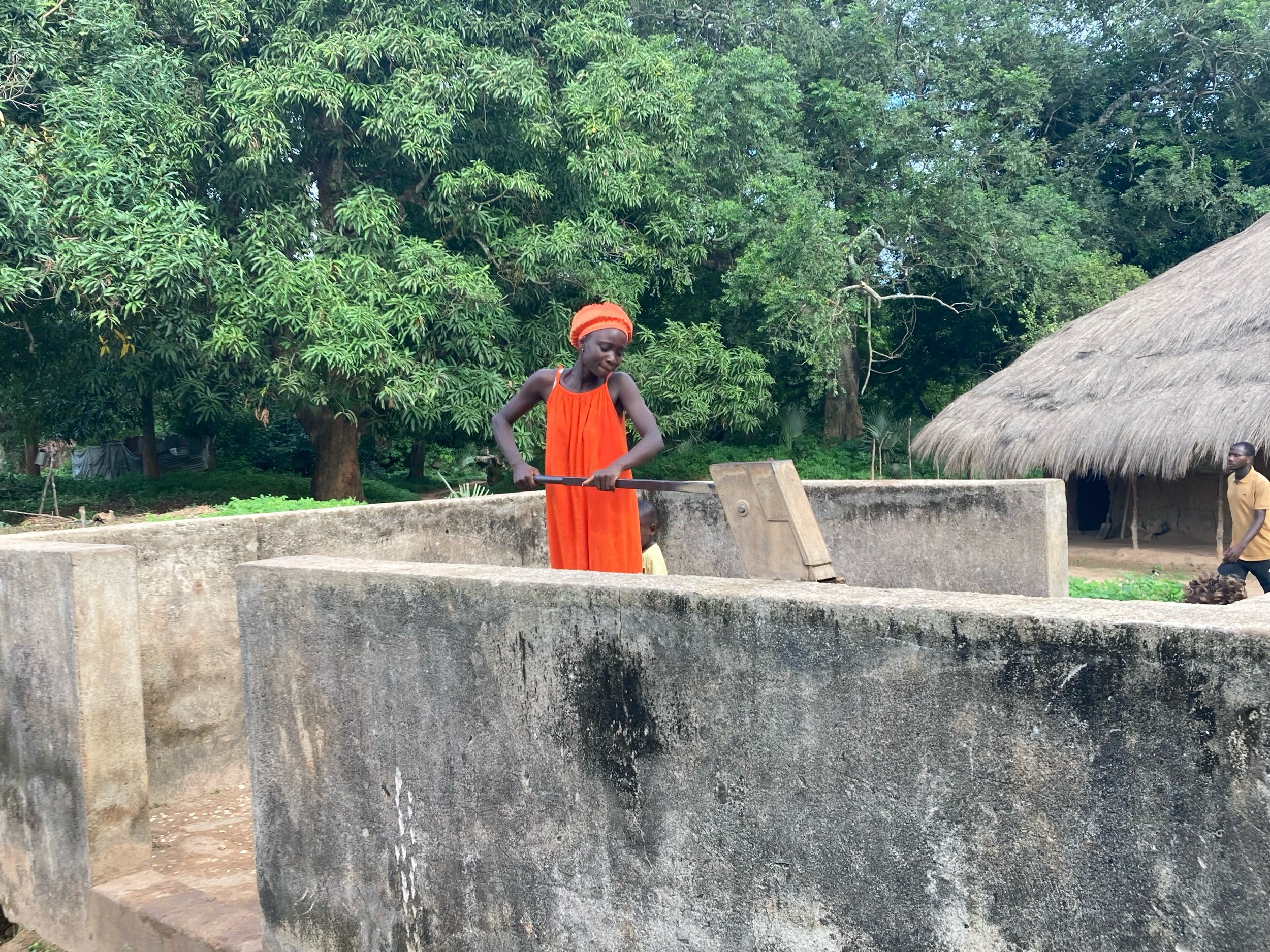
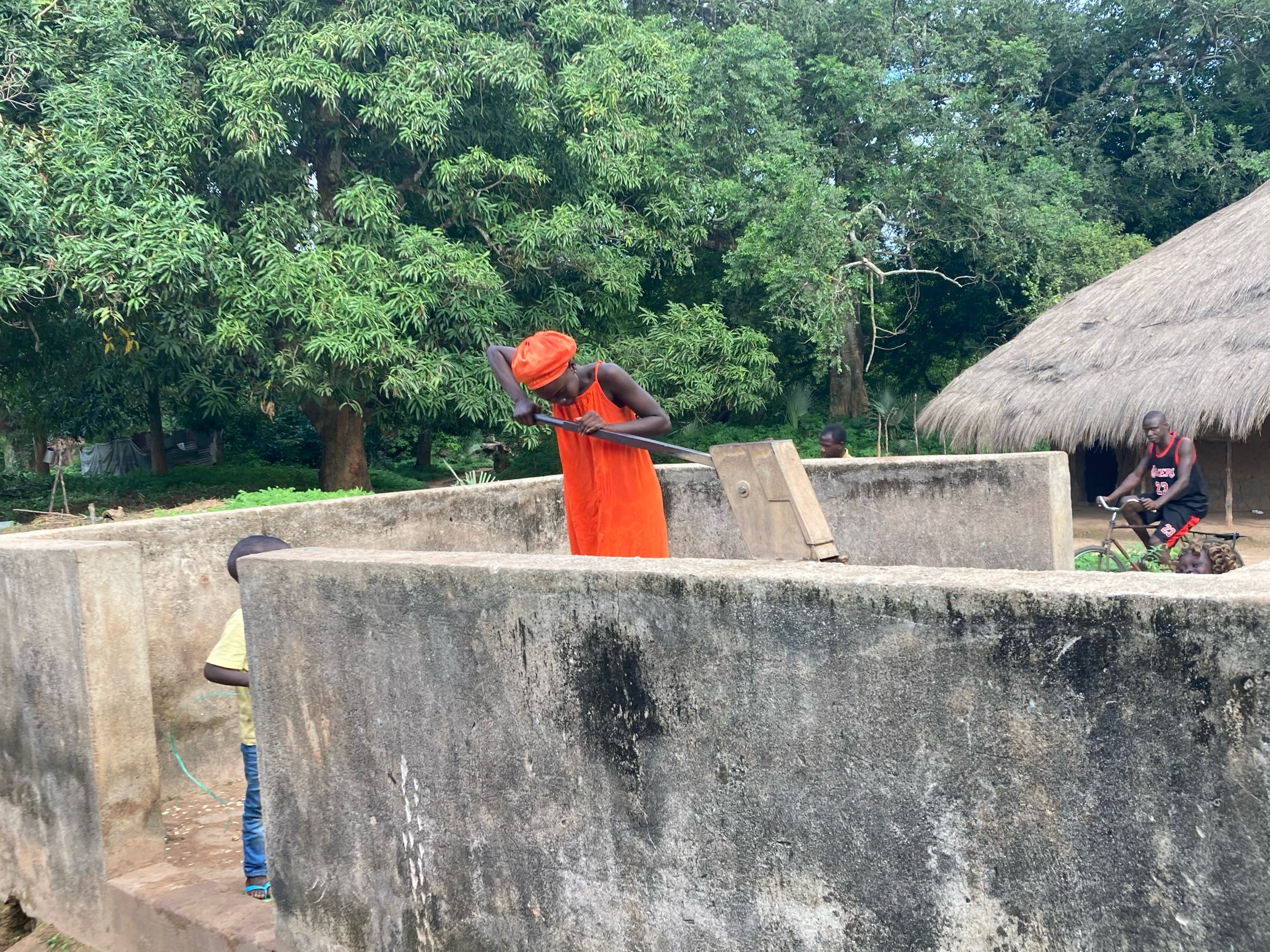
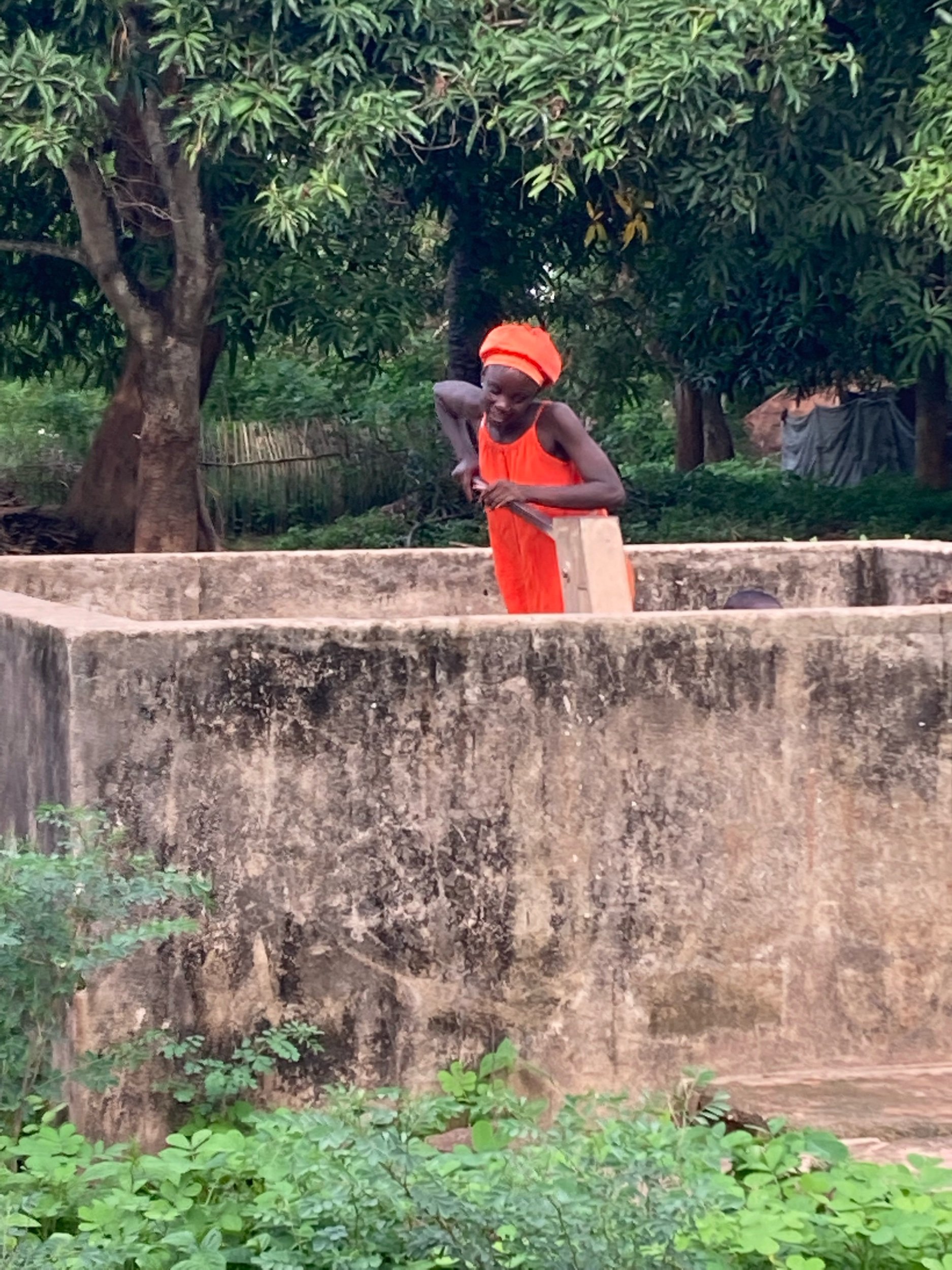
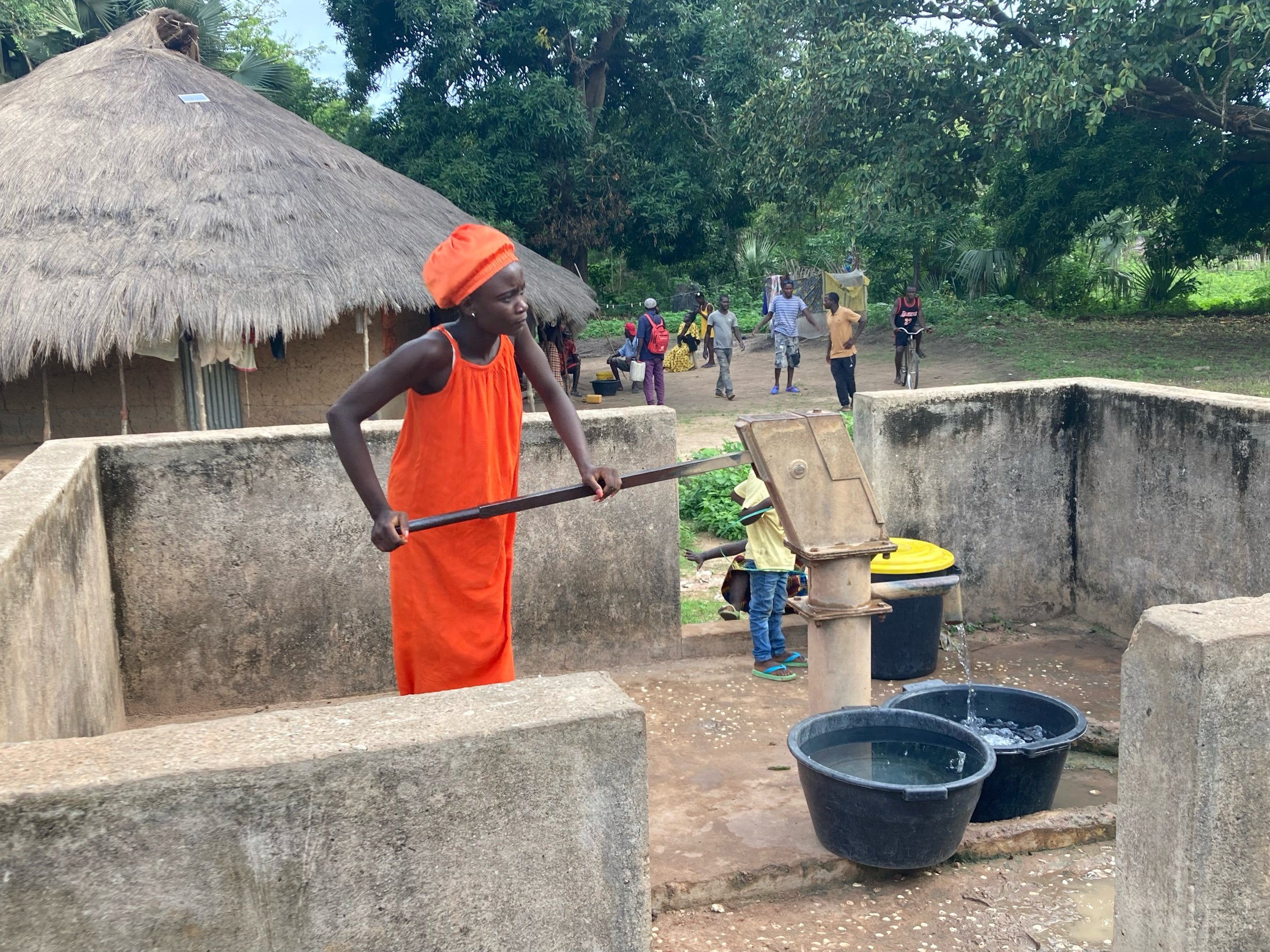
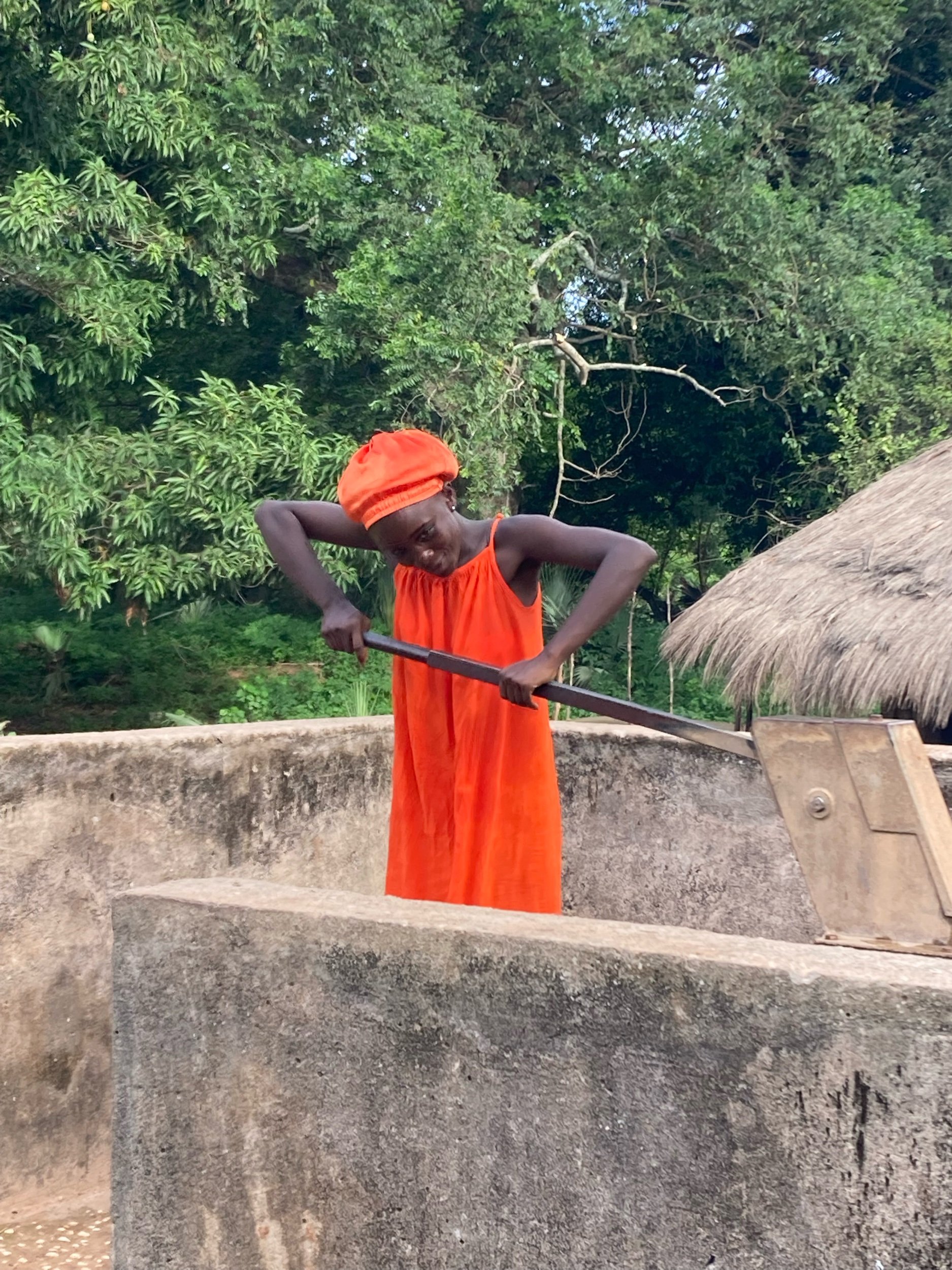
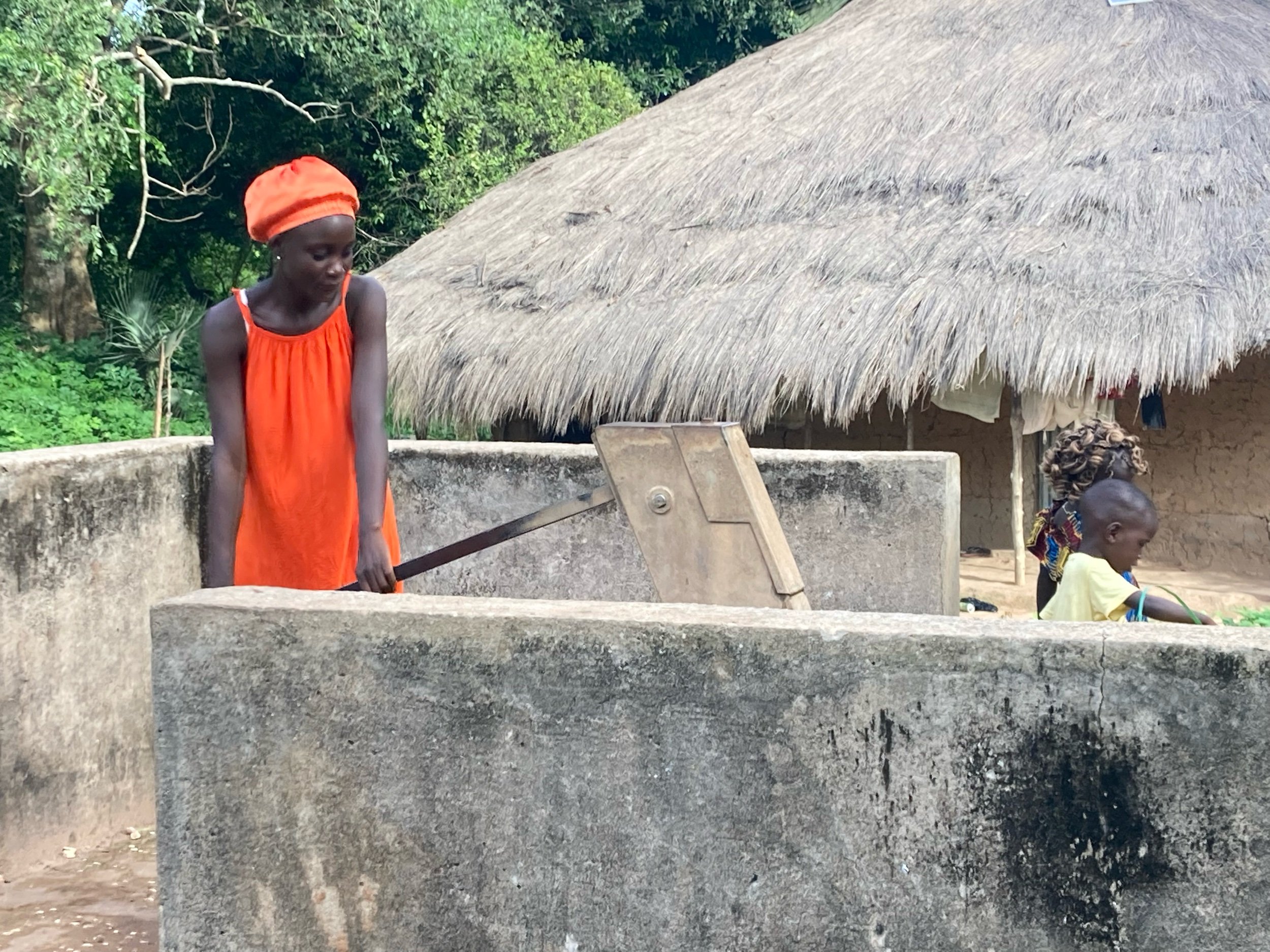
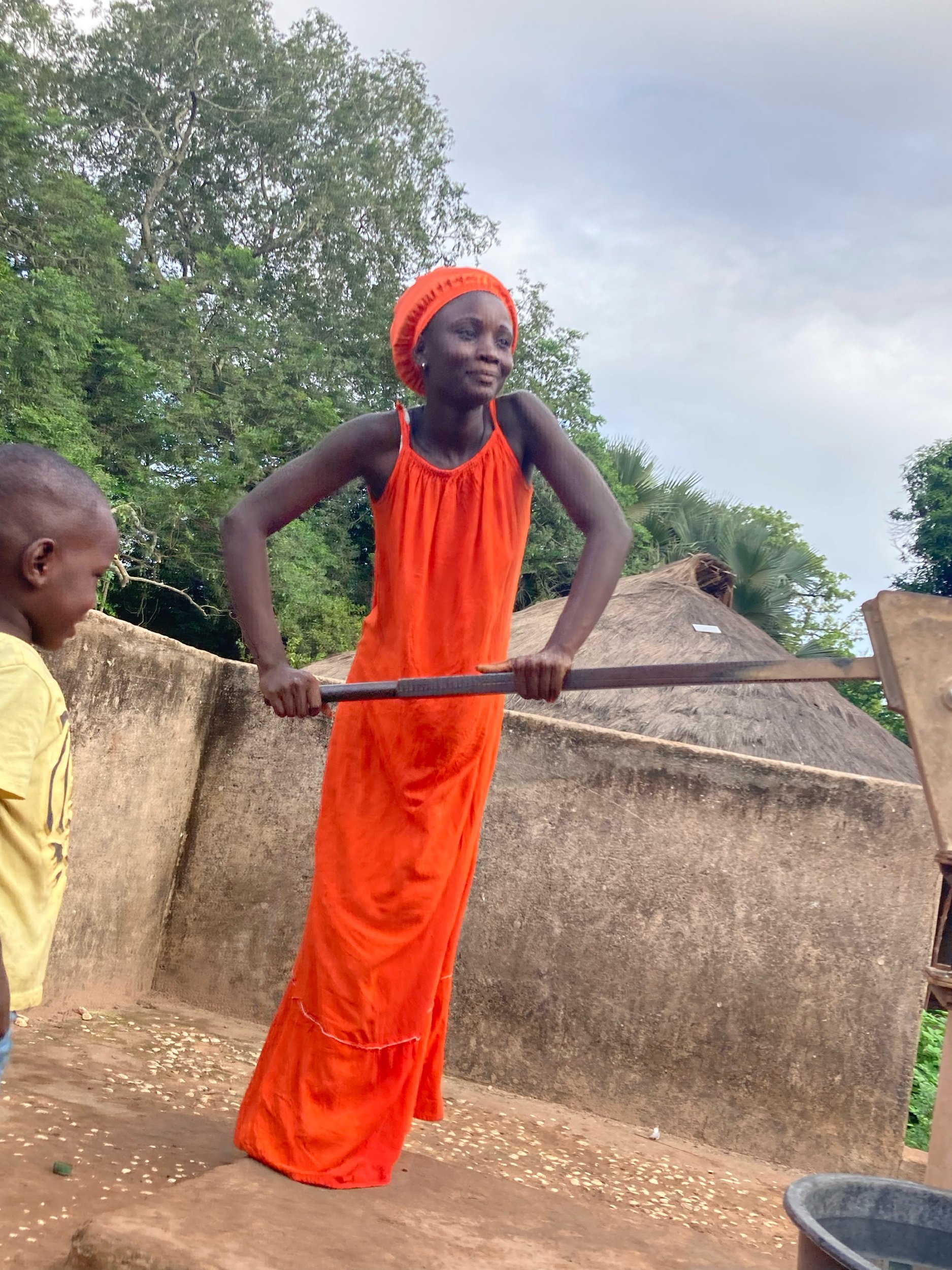
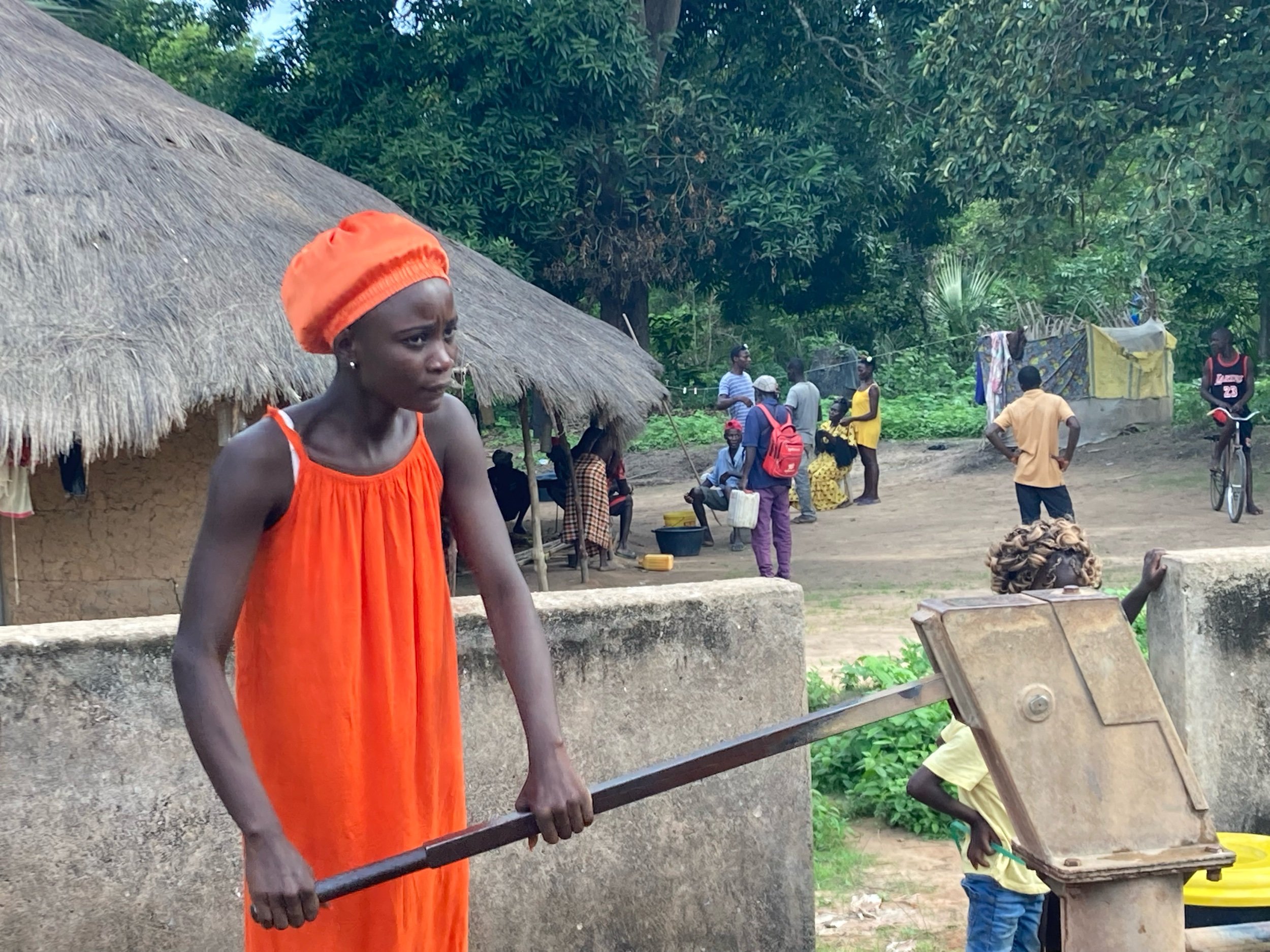
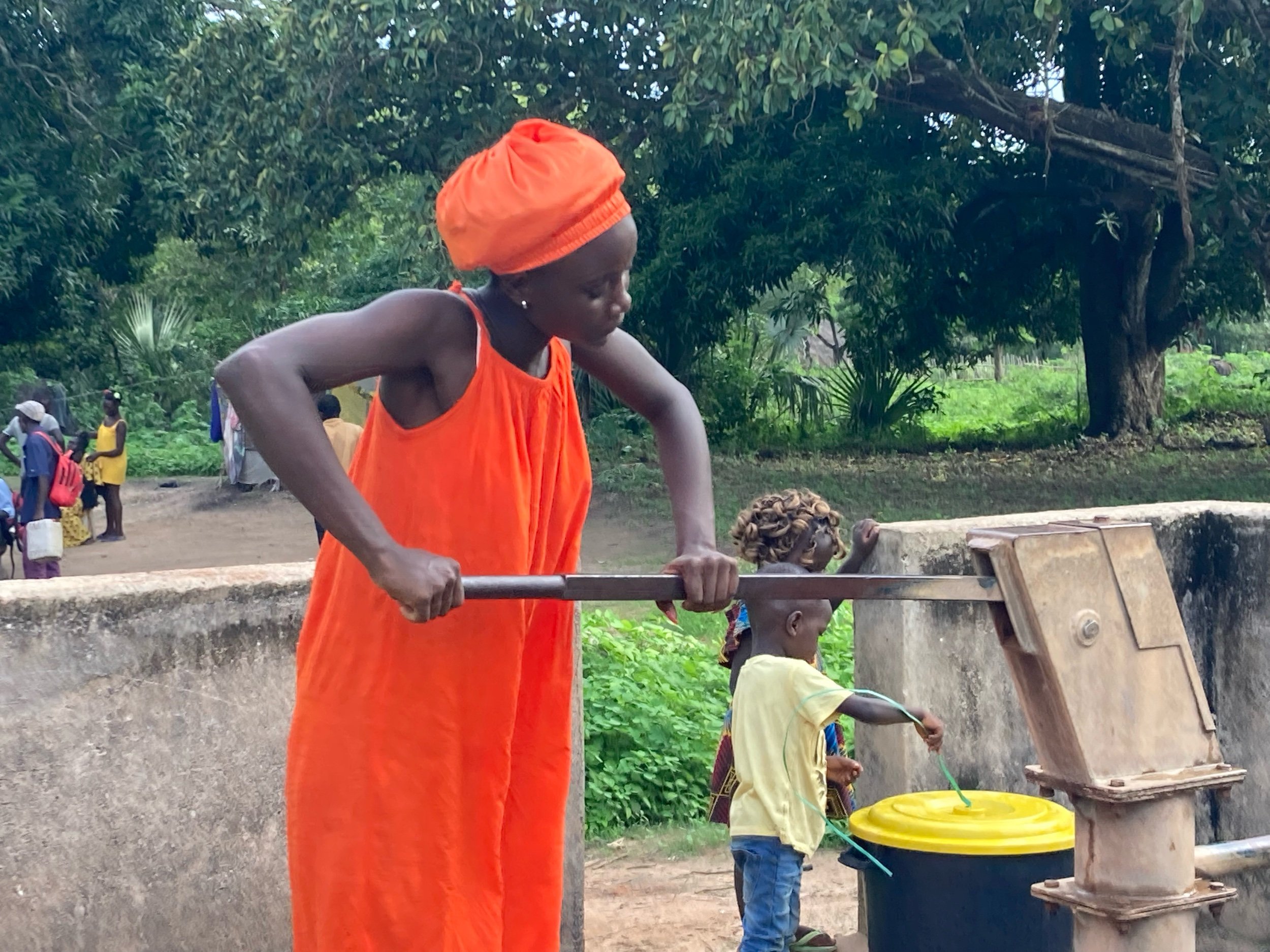
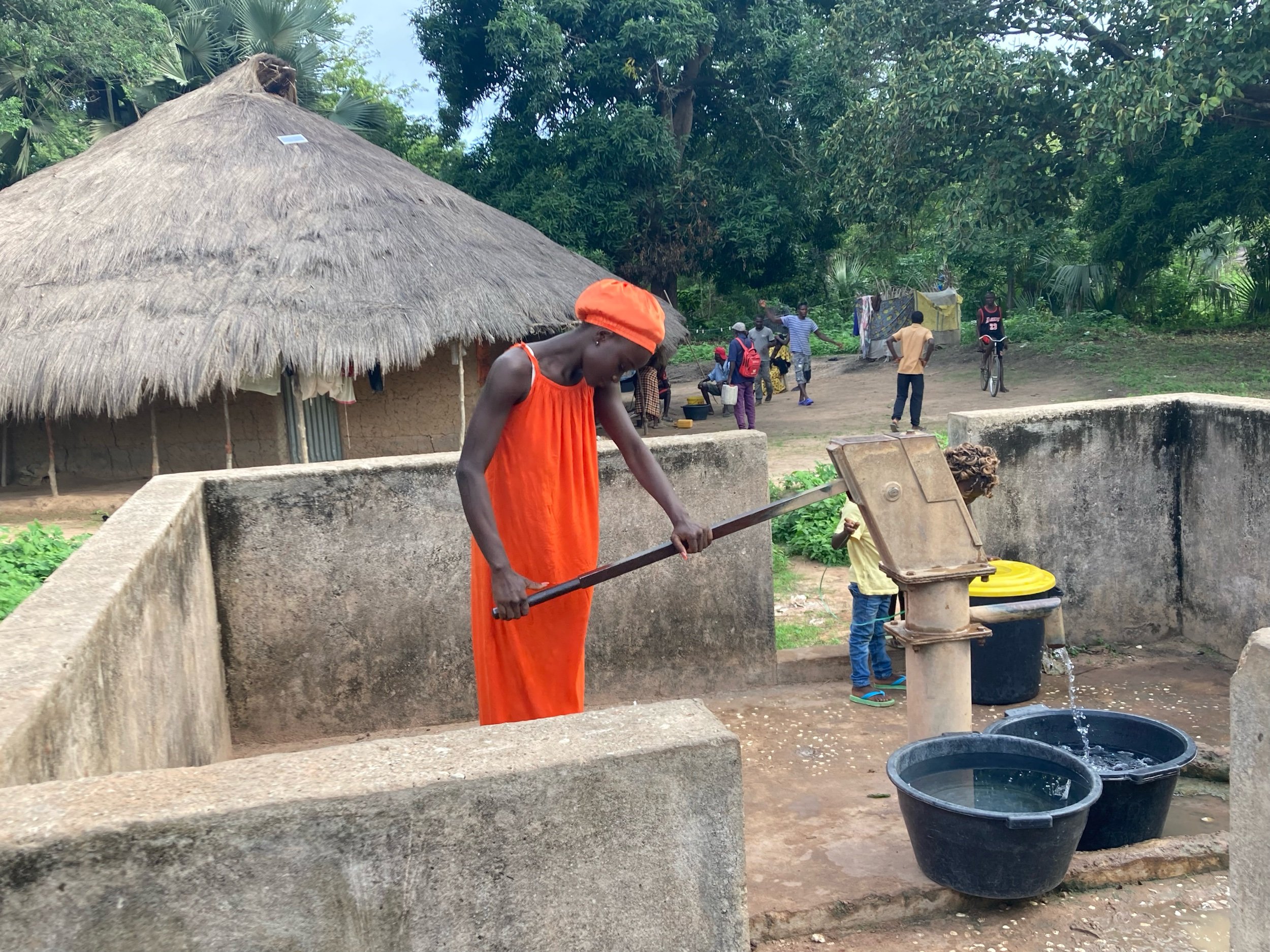
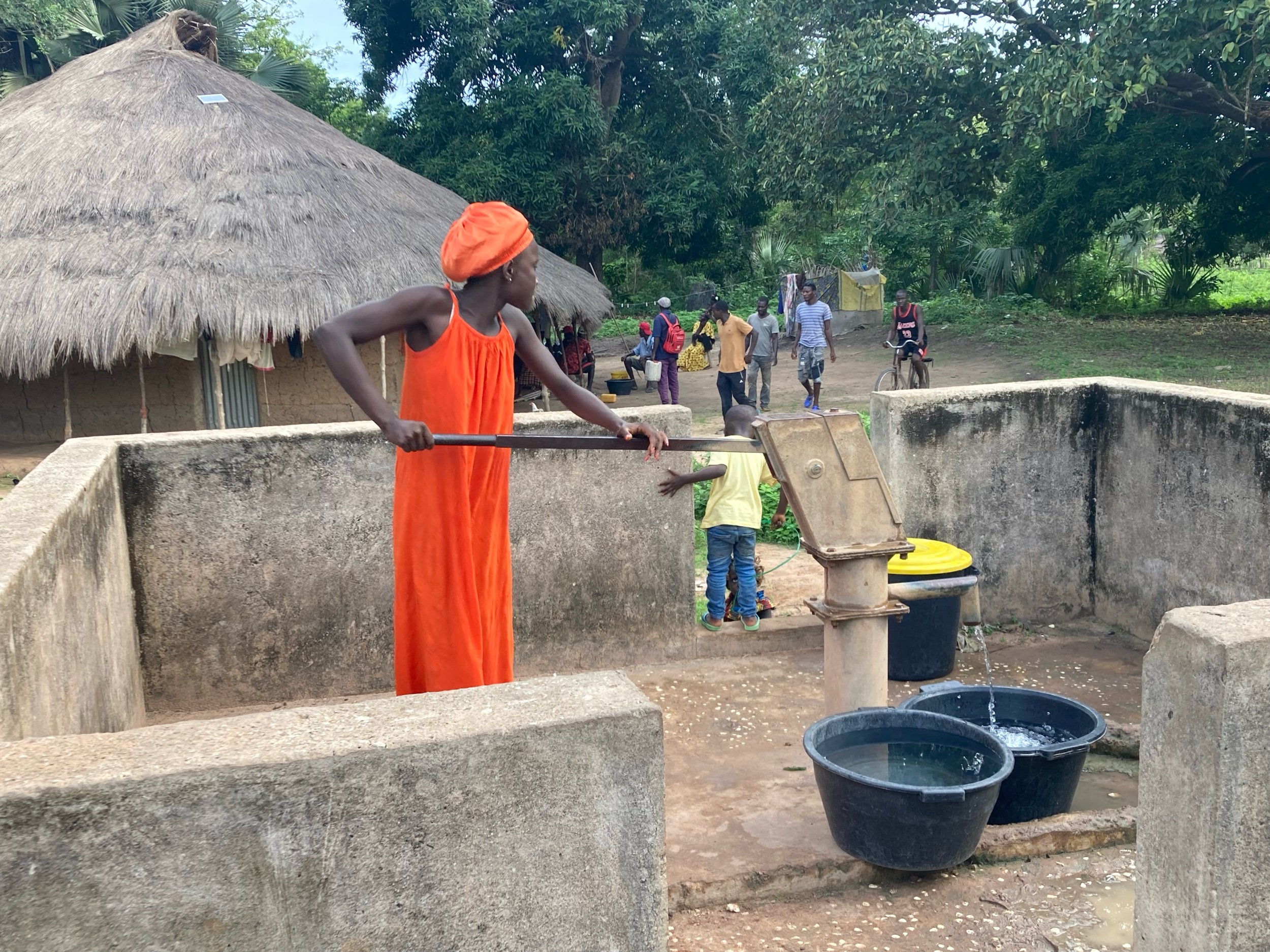
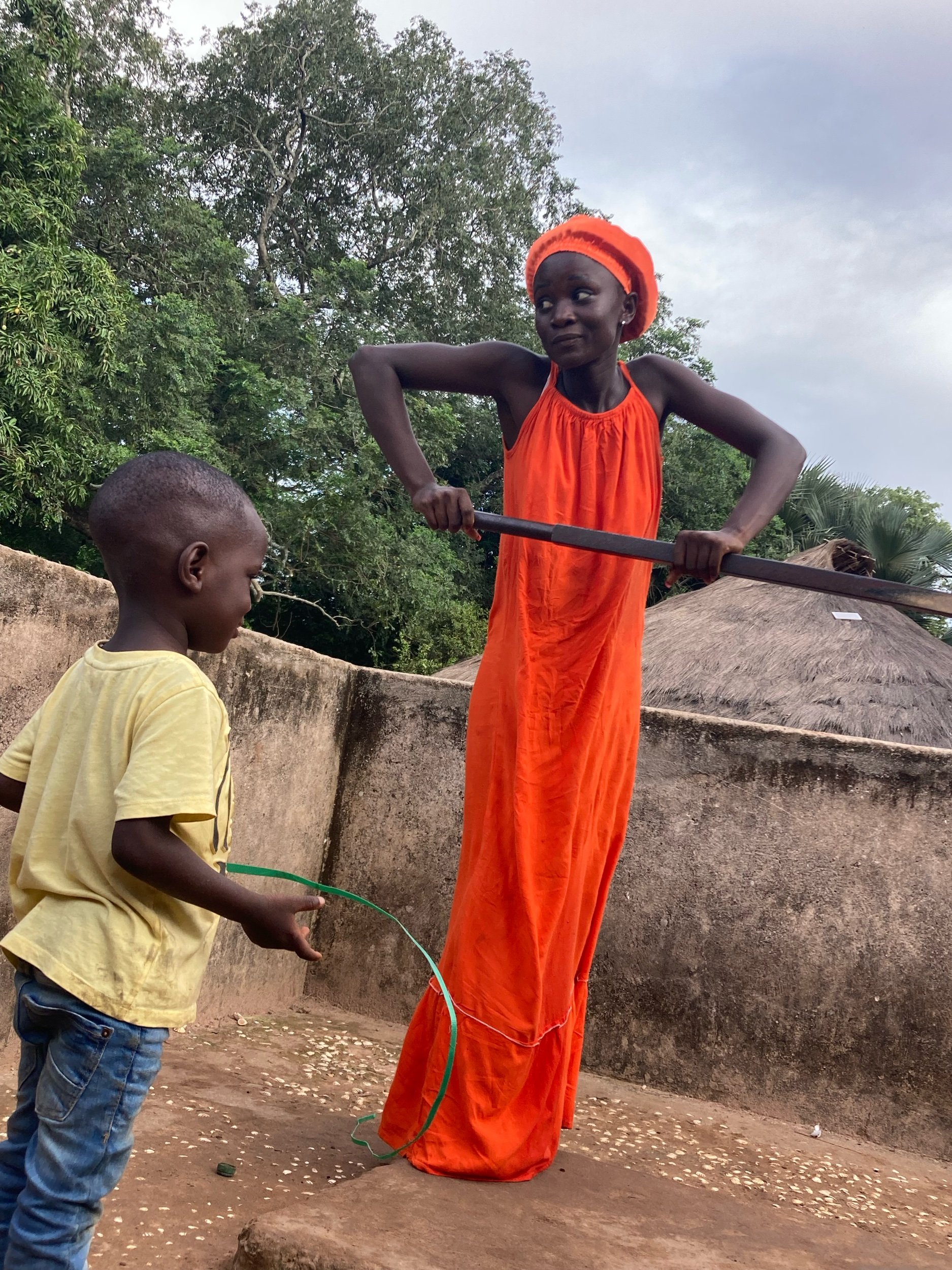
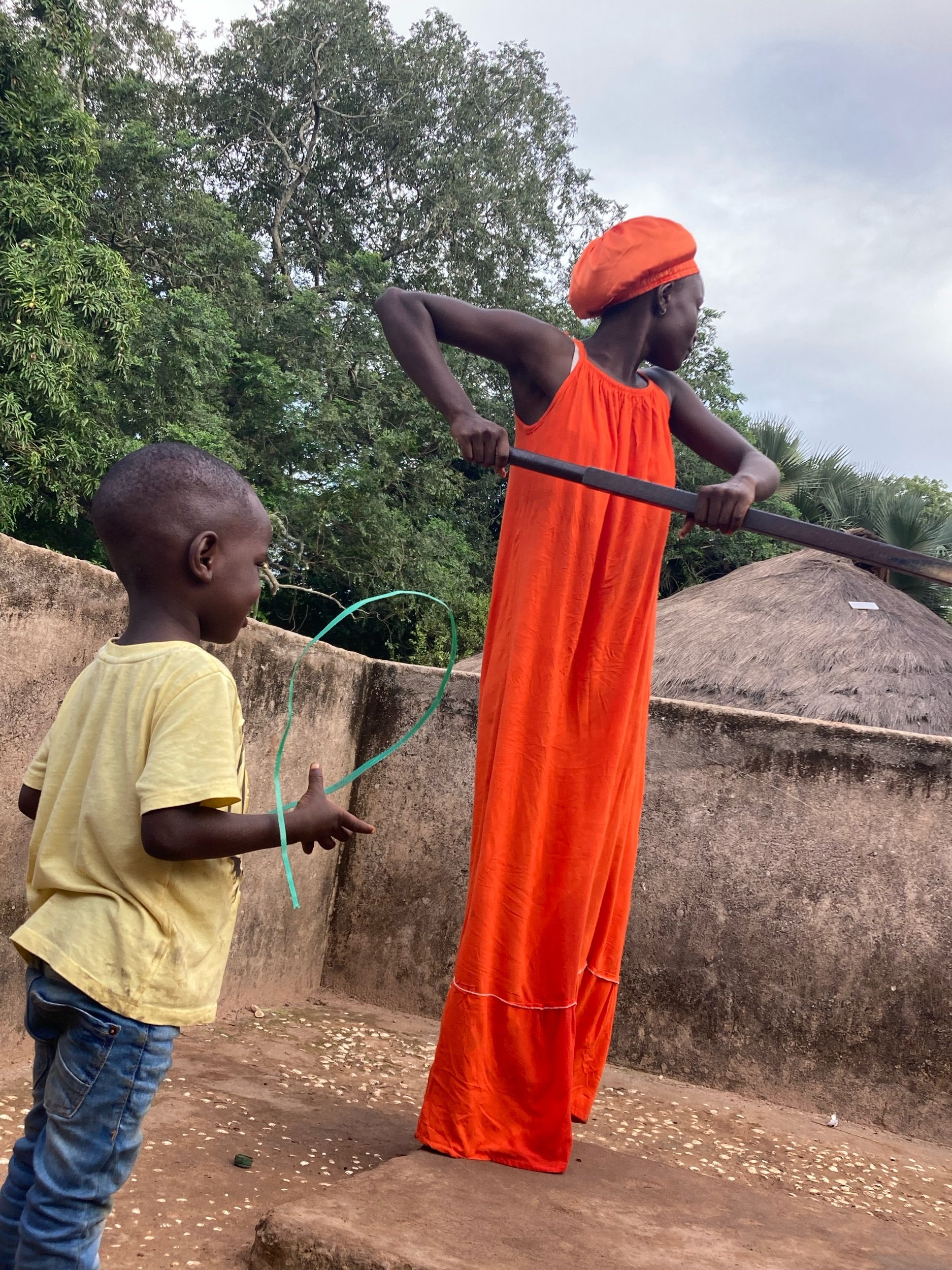
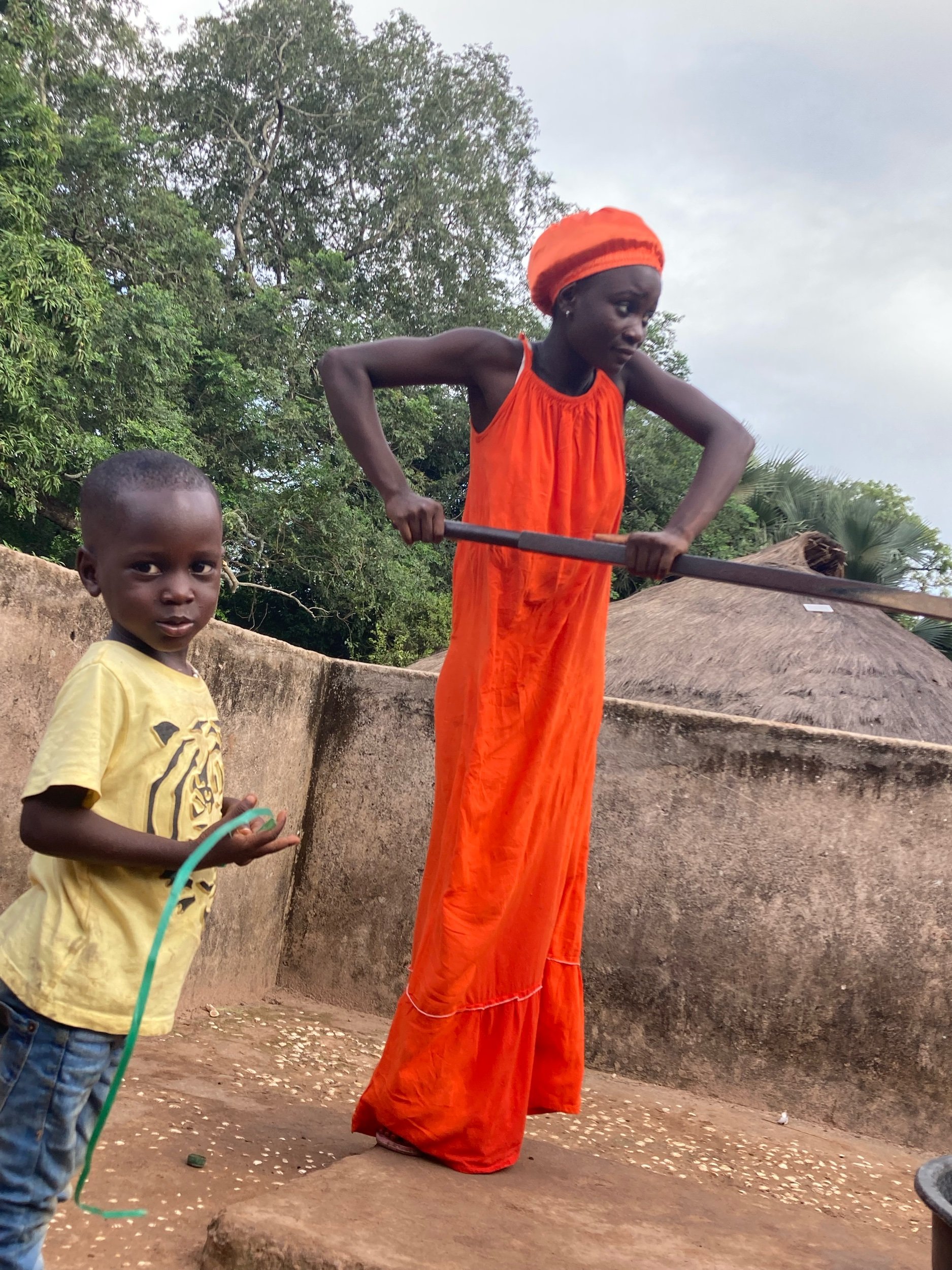
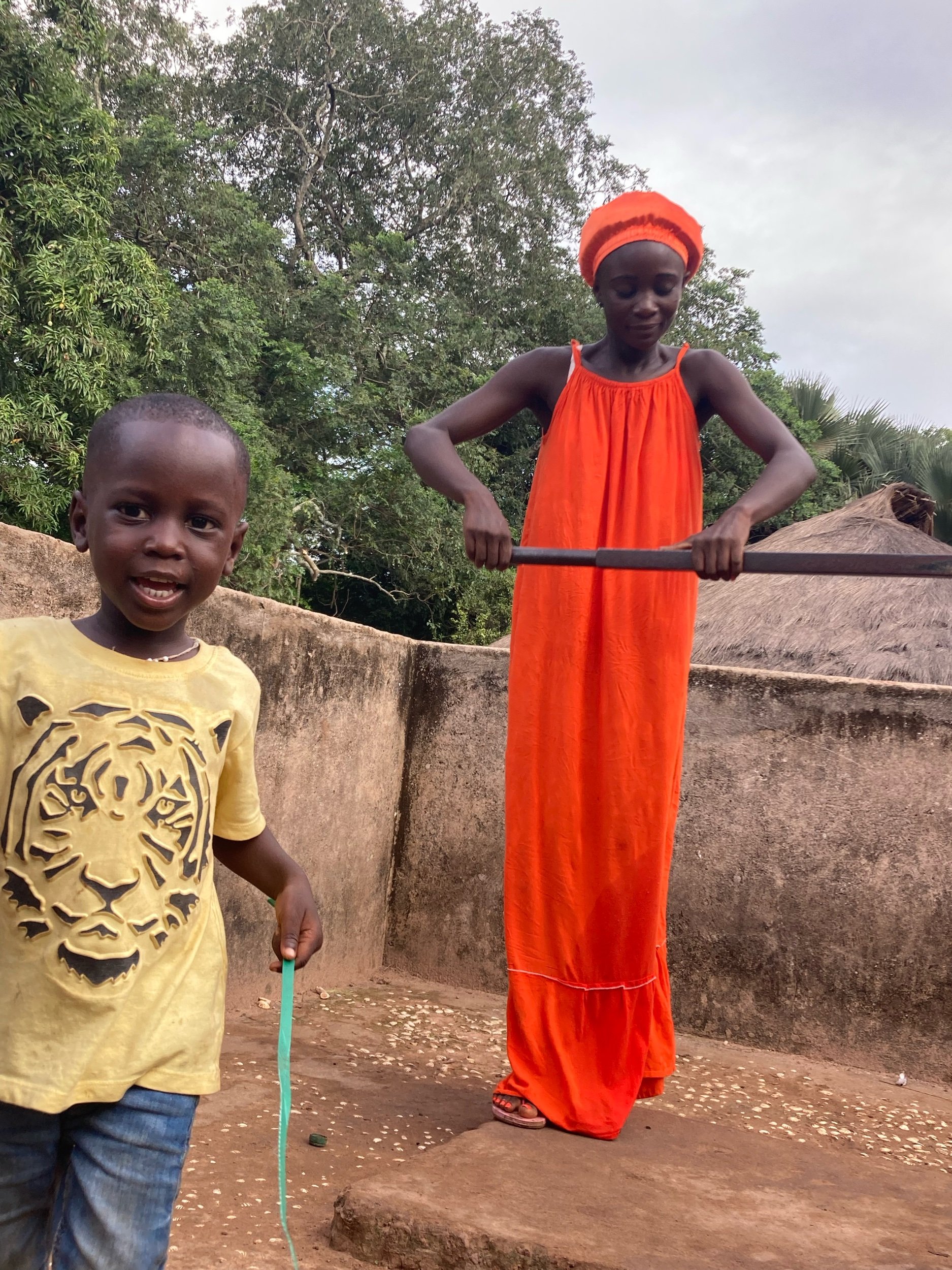
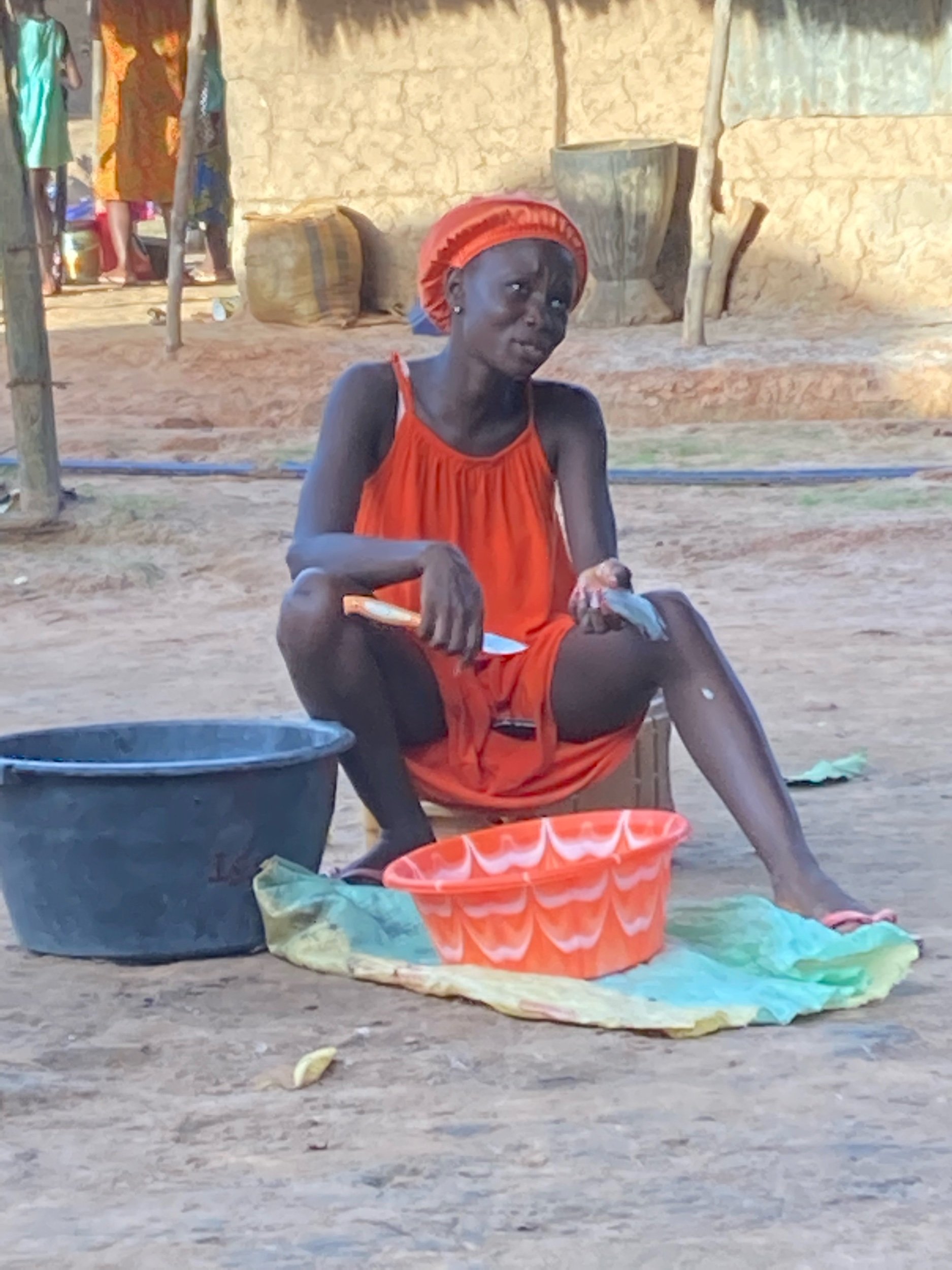
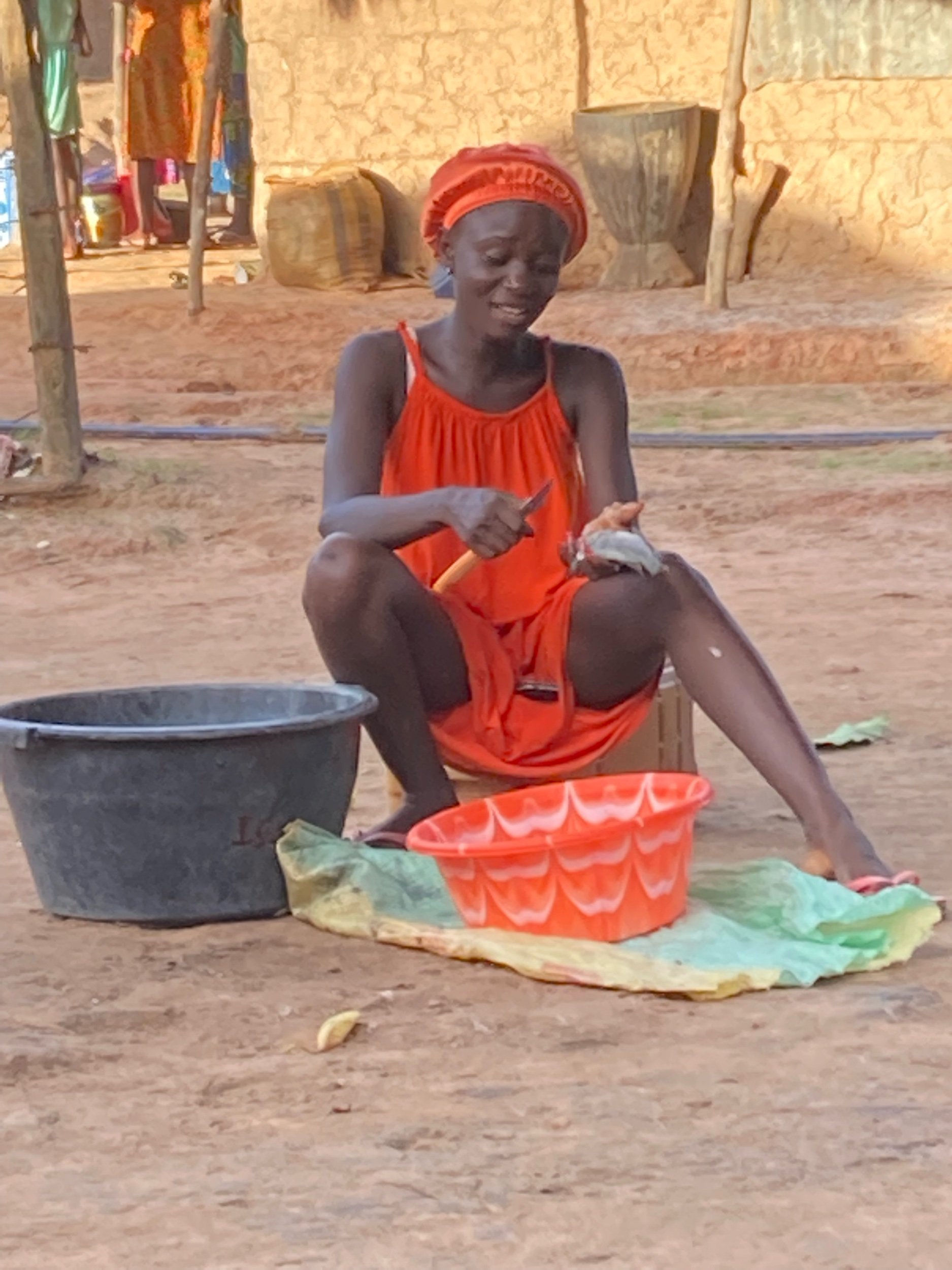
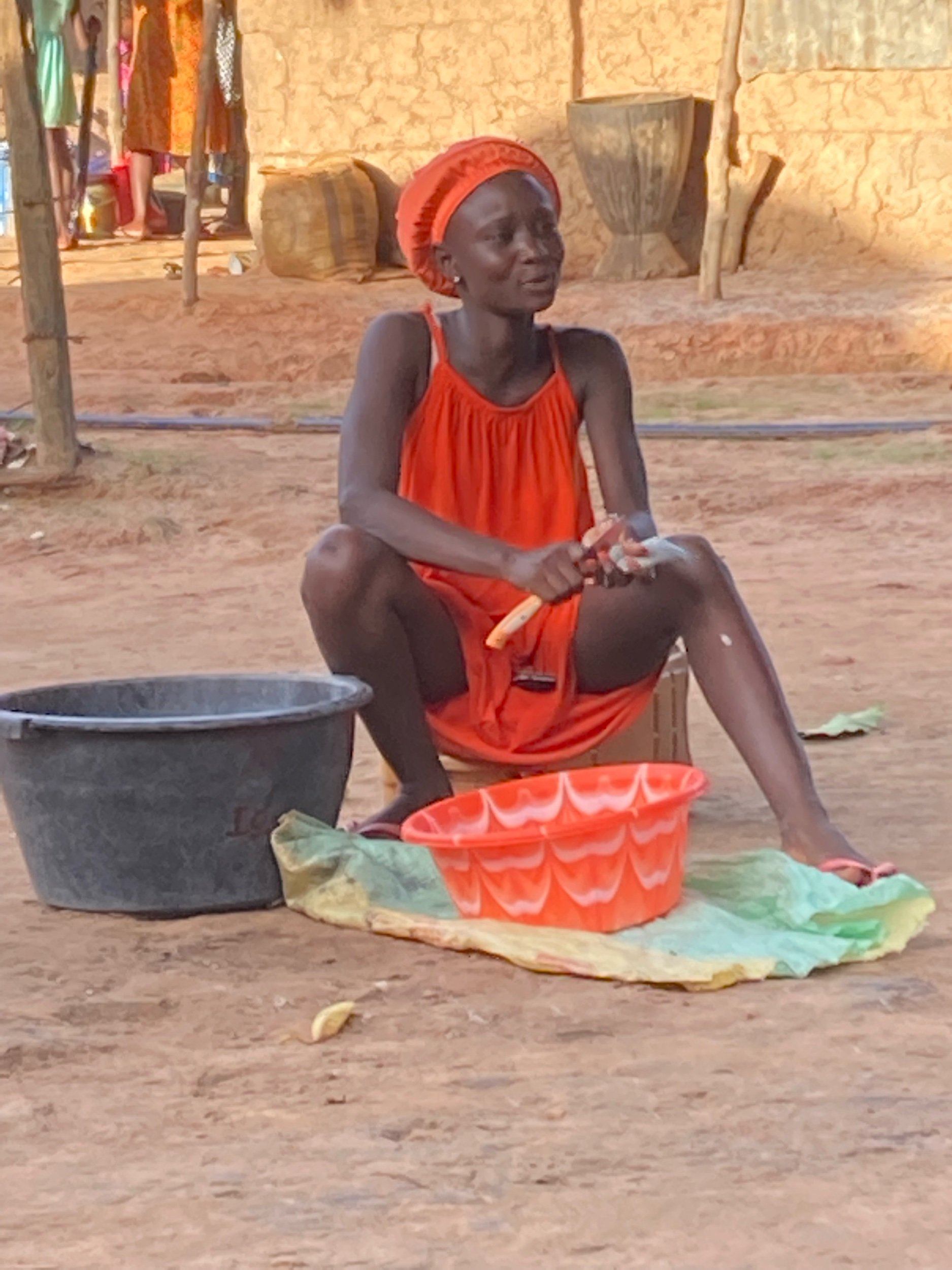
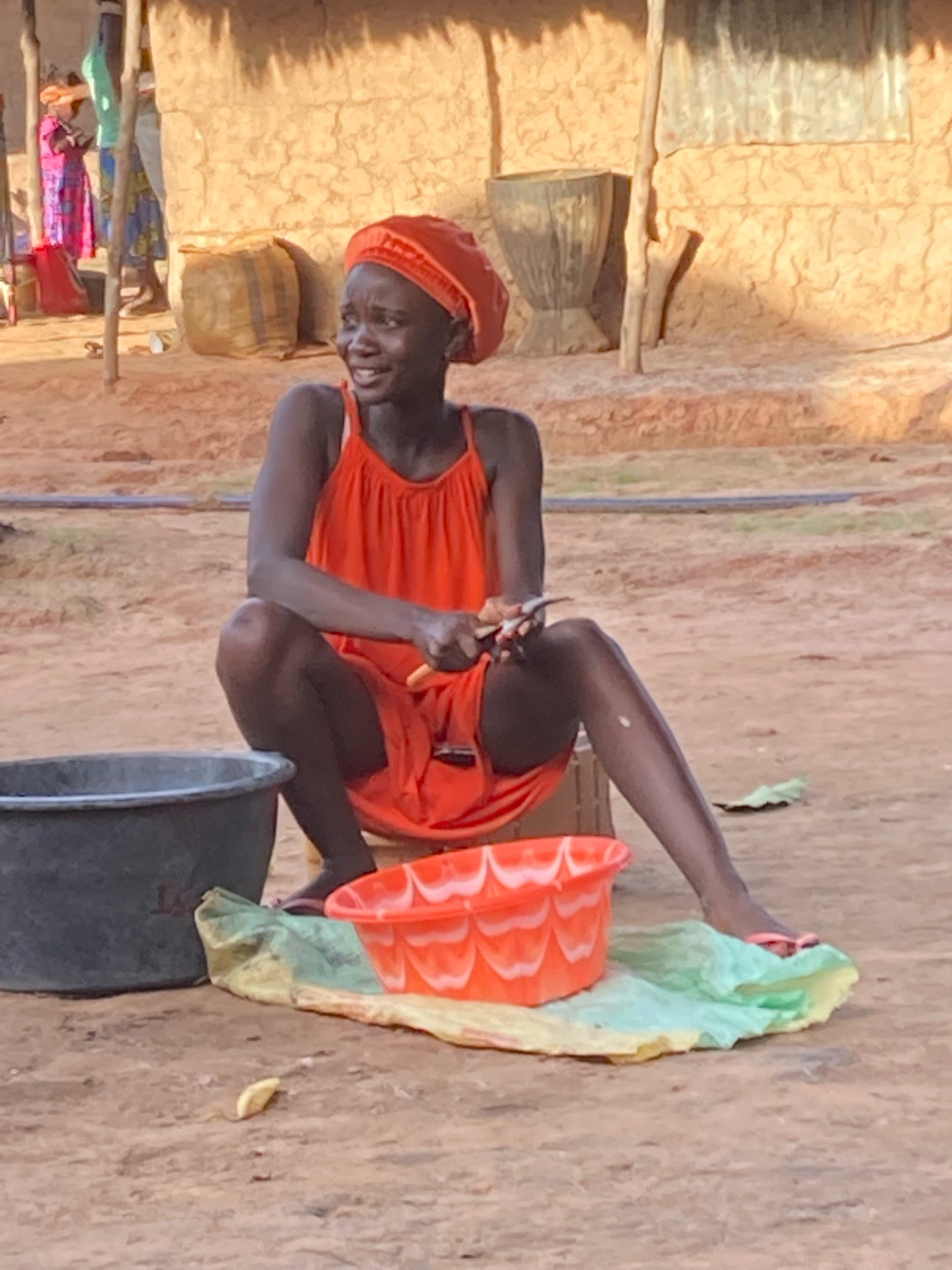
Enter the Iran Spirit of Susana
The men draped in black - they are those who were caught by the “Iran” (pronounced ee-RAH-n ) - some kind of spirit that controls the region. The Iran catches women, too, but at this time it is concerned with the men.
On Monday morning, I saw a group of men walking. They were holding someone and it appeared strange to me, as if they had caught a thief. Then I heard what sounded like shouts of joy. Sure enough, Mama was smiling and cheering and dancing.
Daiana explained to me that Mama Isabela was happy the Iran had caught someone and that it wasn’t her .son, Tanya’s baby daddy. The household was relieved. And thus started my strange education into Felupe culture and the town of Susana.
“How did the Iran choose who to enter? How do the people know that someone has been chosen by the Iran?” I asked. Auntie put her finger to one eye, pulled down the skin under it, and said, “Only those with the ‘third eye’ can see.”
No one could quite tell me what or who this Iran was. I wanted to know the story, but the more questions I asked the more it seemed people were becoming irritated.
Was the Iran a good or evil spirit? How did it come to Susana? Why?
We were told that when the village disregards tradition and obligations, the Iran becomes angry. The Iran periodically chooses or “catches” someone who then becomes responsible for keeping the traditions and serving as a spiritual advisor for the rest of their life. And it is for this reason that family secretly hope that the Iran doesn’t take one of their members. Indeed, it was for this reason that Tanya’s baby daddy mysteriously disappeared as soon as we started our journey to Susana. Apparently he was trying to escape being “caught” by the Iran in Susana. The Iran chooses capable men and thus more and more guys, educated in the city and modern ways, fear returning to Susana and getting caught. They can try to escape or refuse, but this would certainly result in death. But then, what of Tanya and her young son? If his father is caught by the Iran, the father would have to go away and live secluded in the village, no longer able to work and provide for his family. If he tries to escape or refuse, it could be much worse. . . .
Those who were caught this season by the Iran don’t look happy and while everyone else is celebrating, these families are grieving….
It was now time for us to get ready to attend the ceremony on the first night of Essangai. It was definitely an exciting time for everyone!
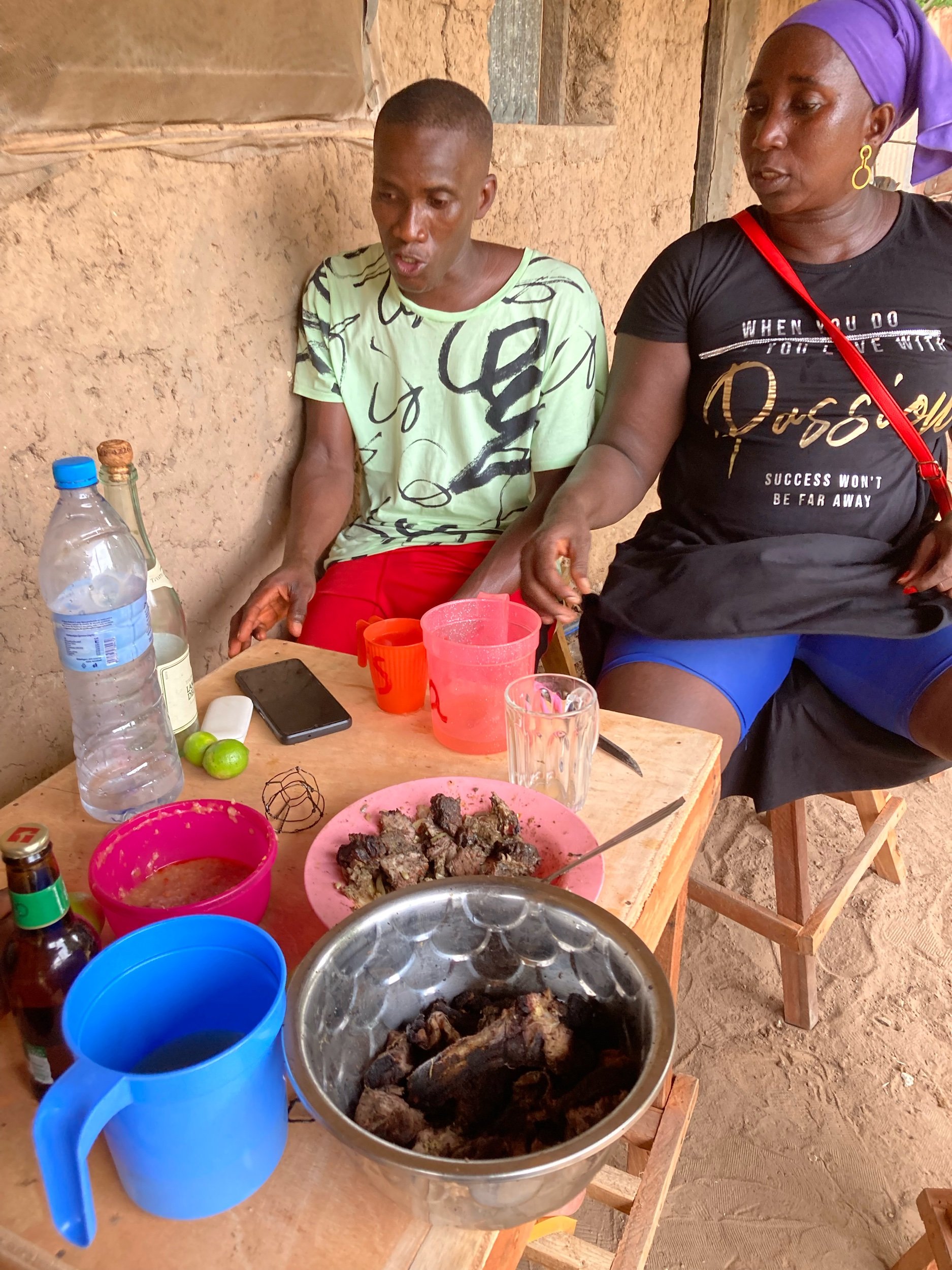
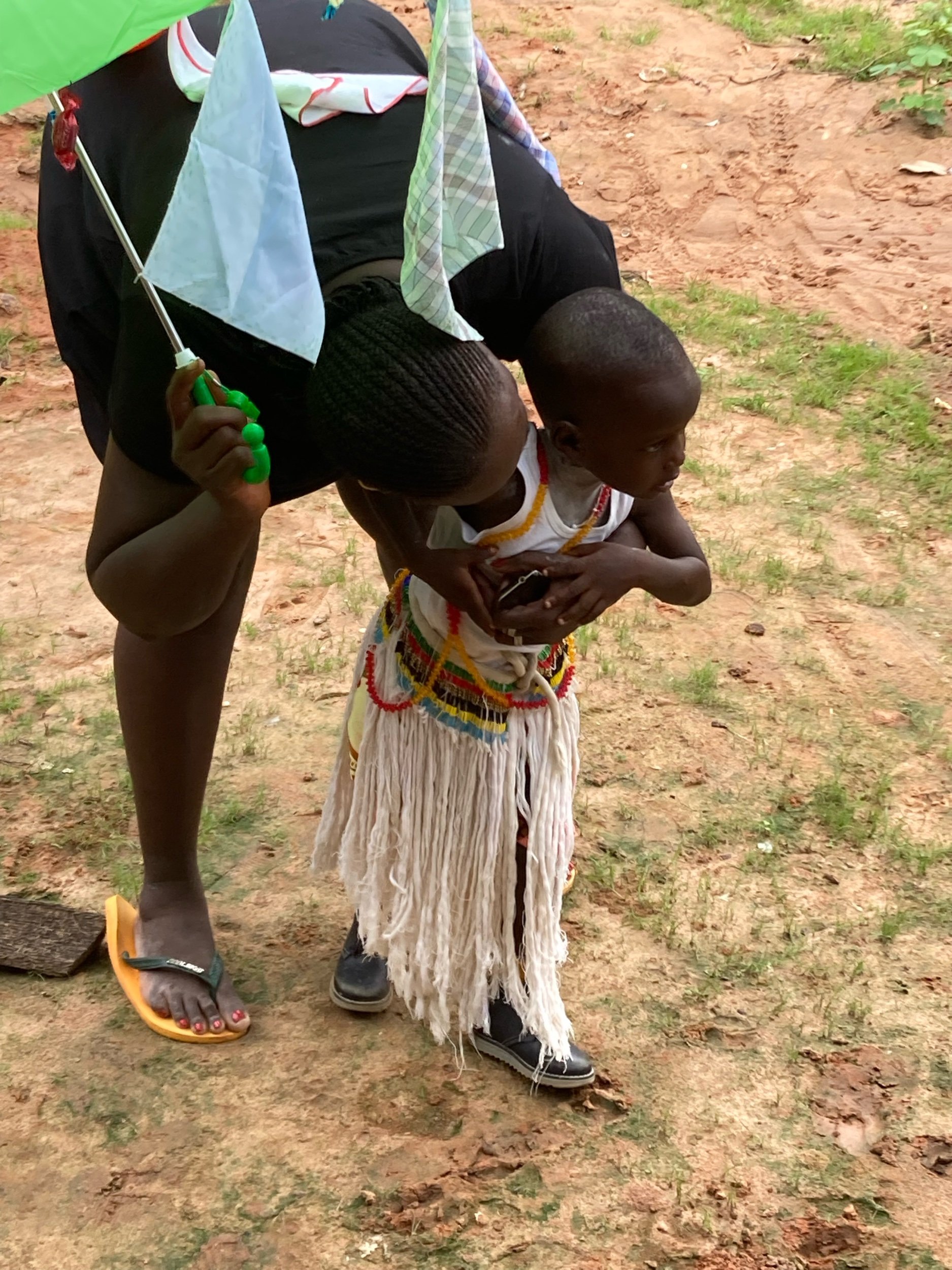
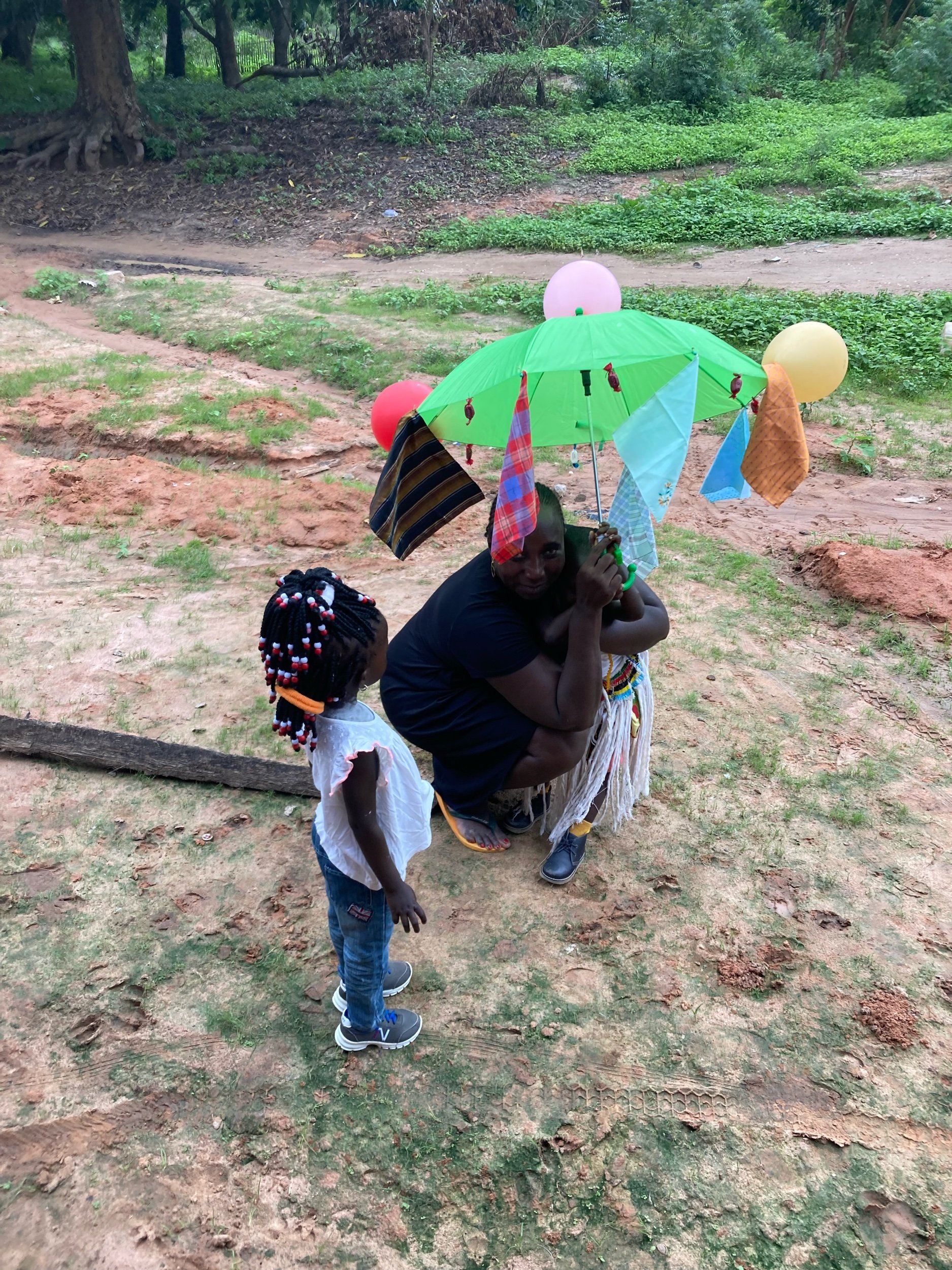
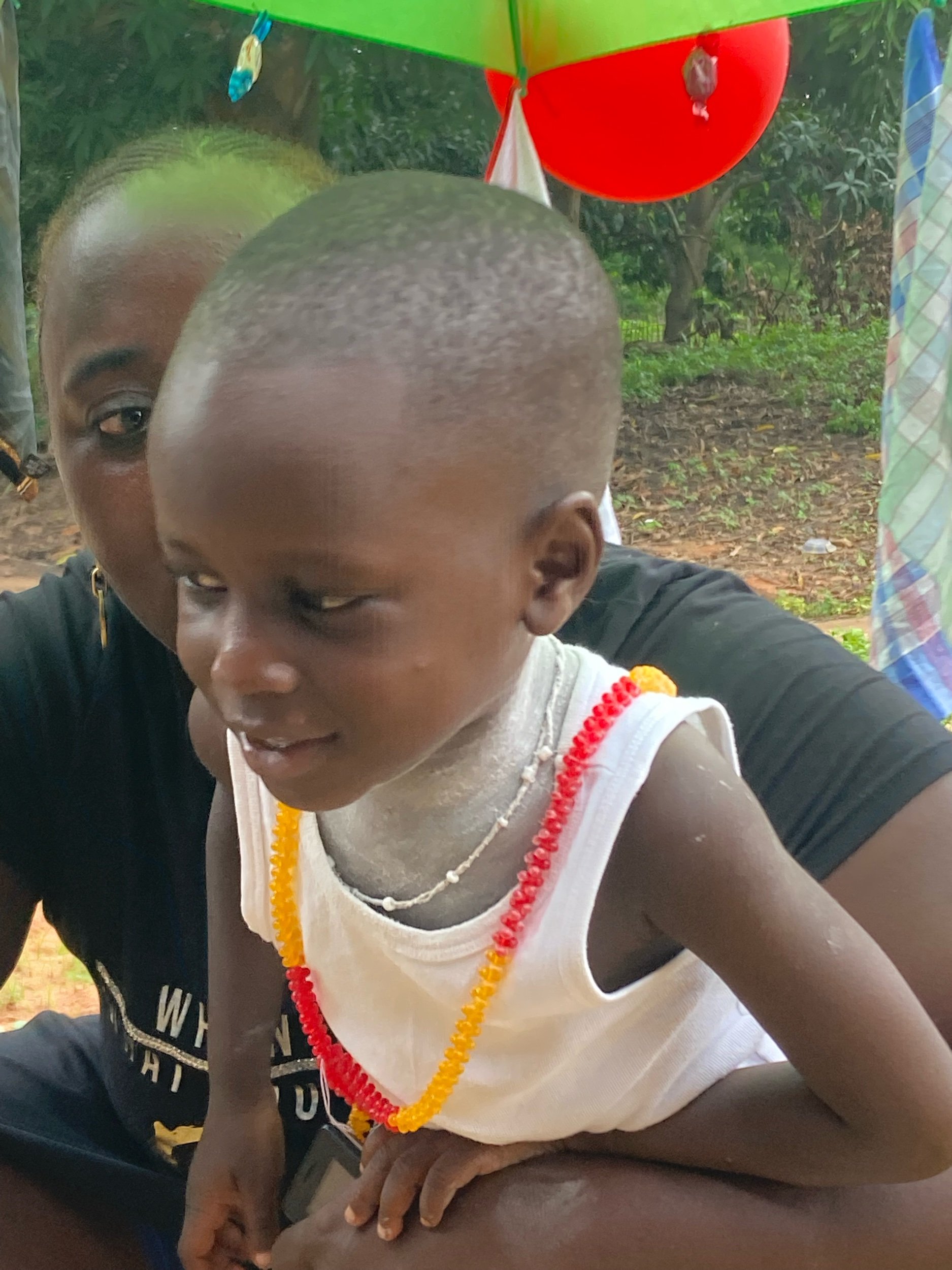
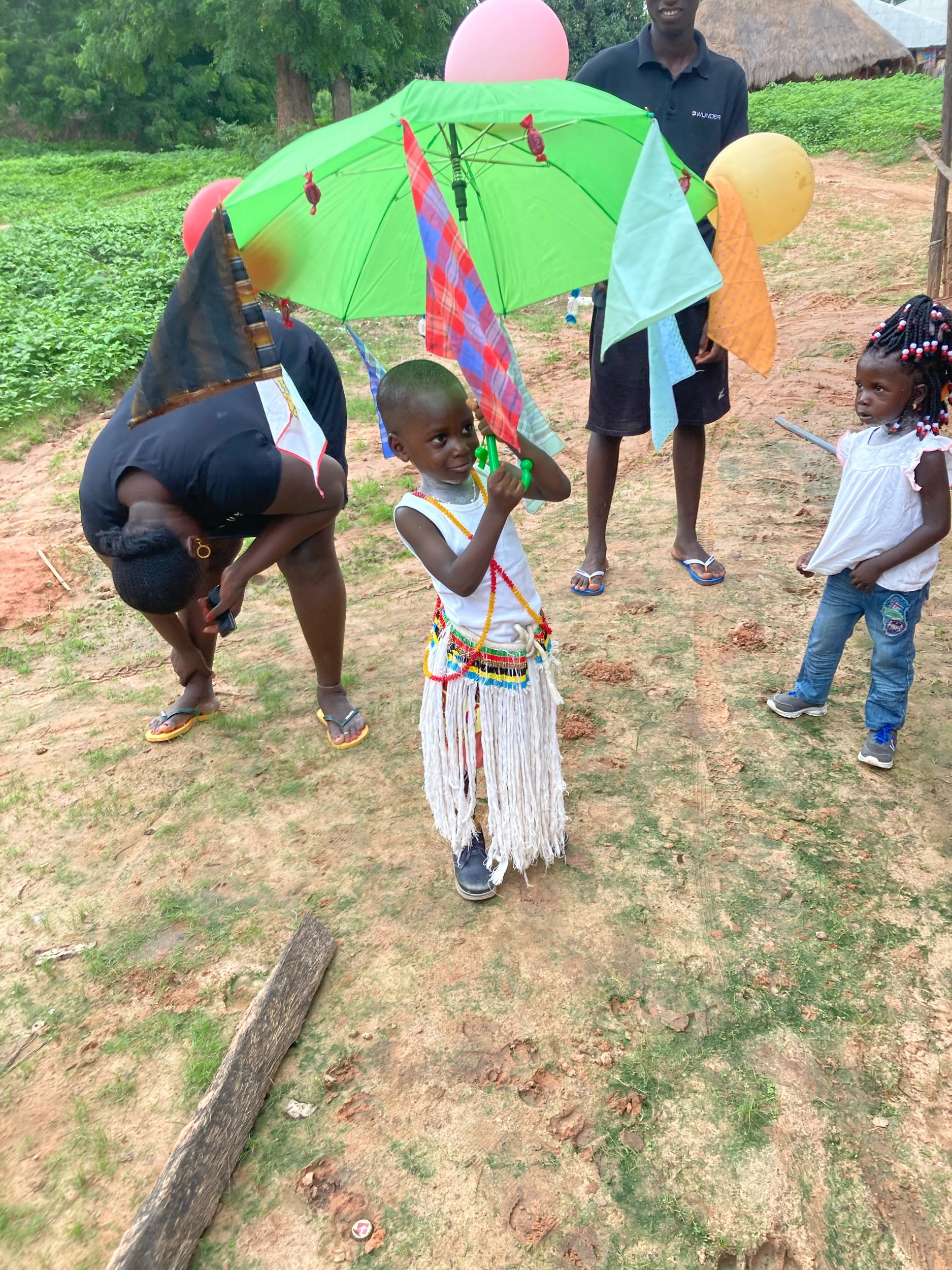
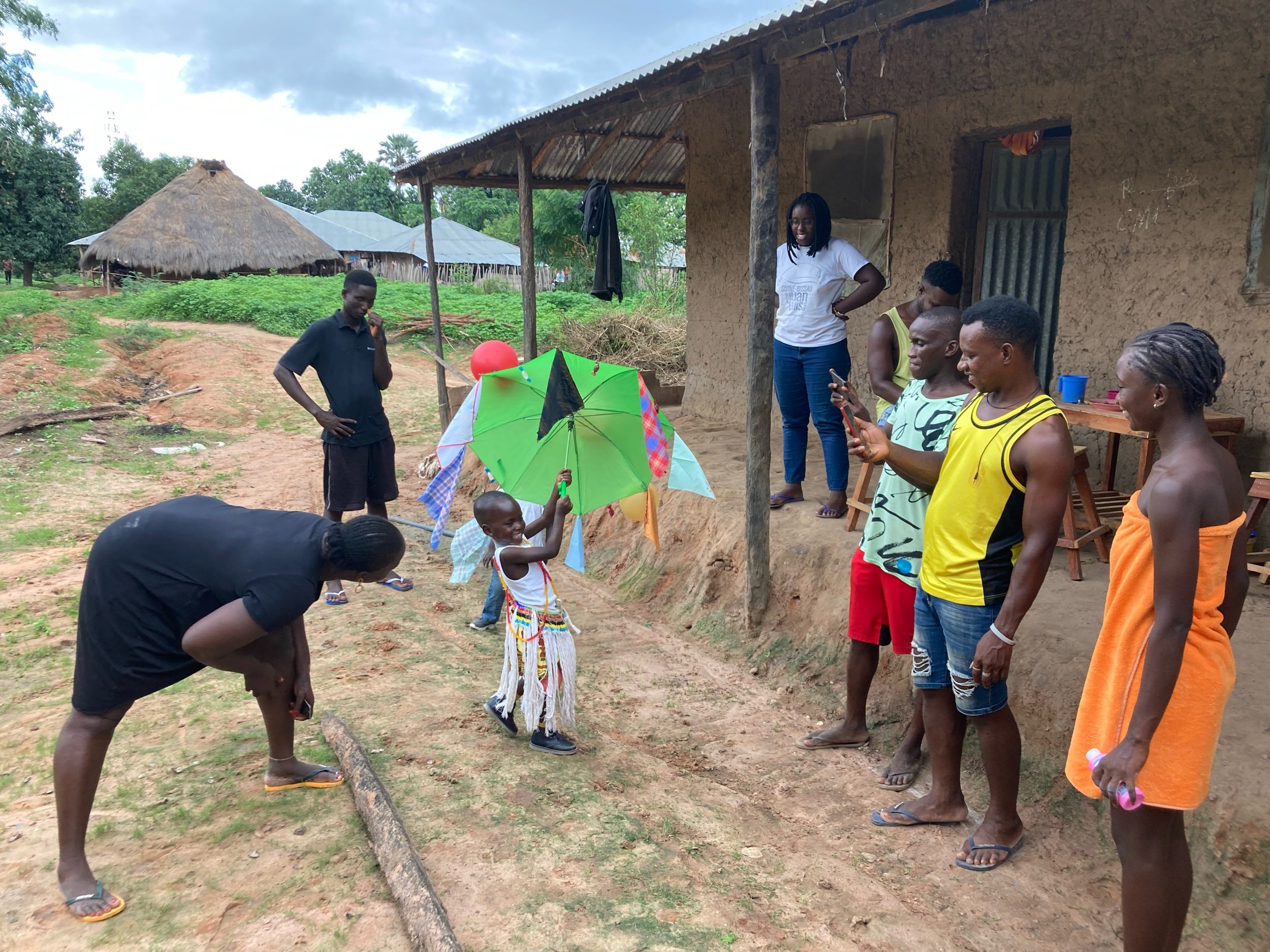
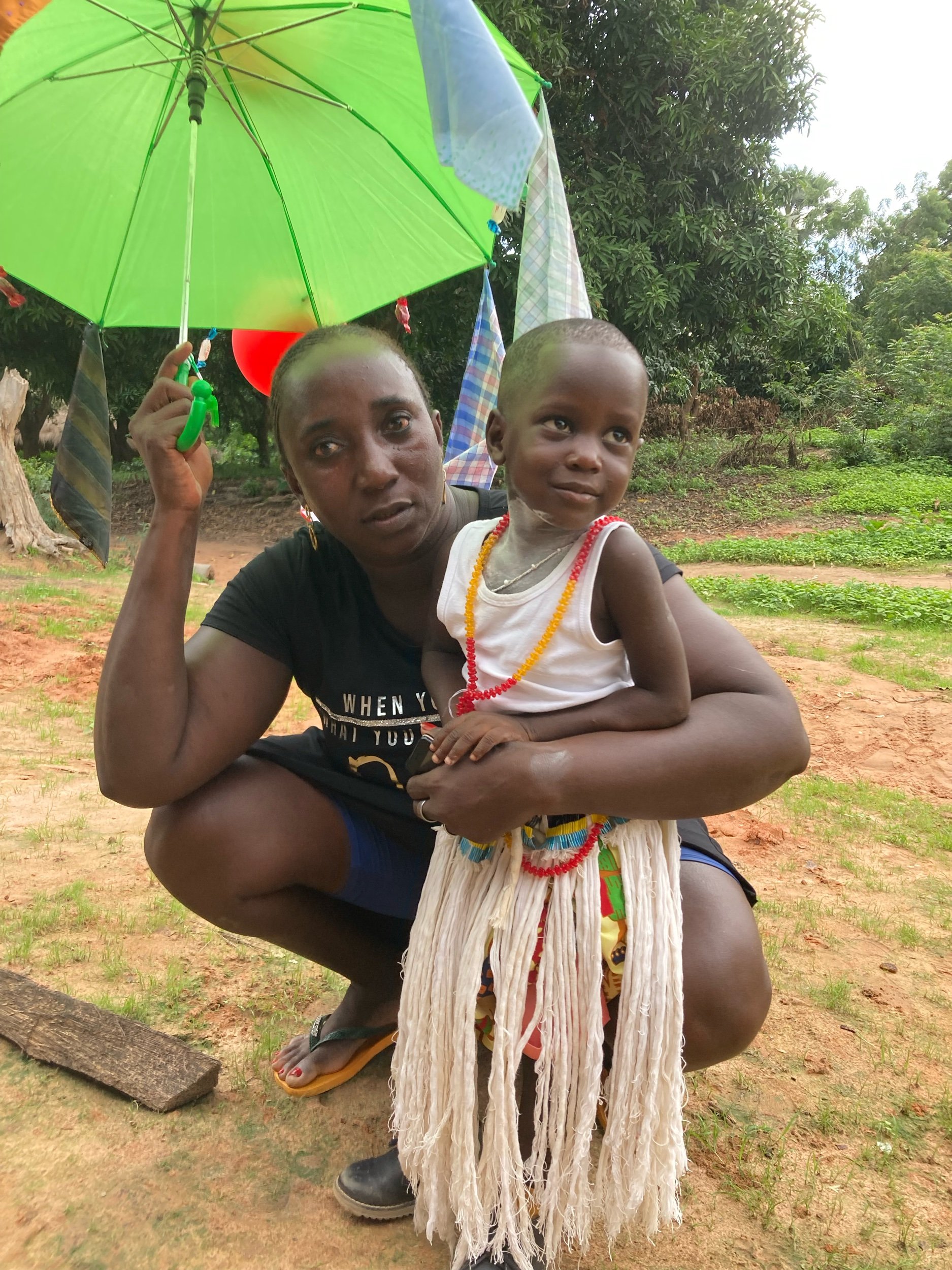
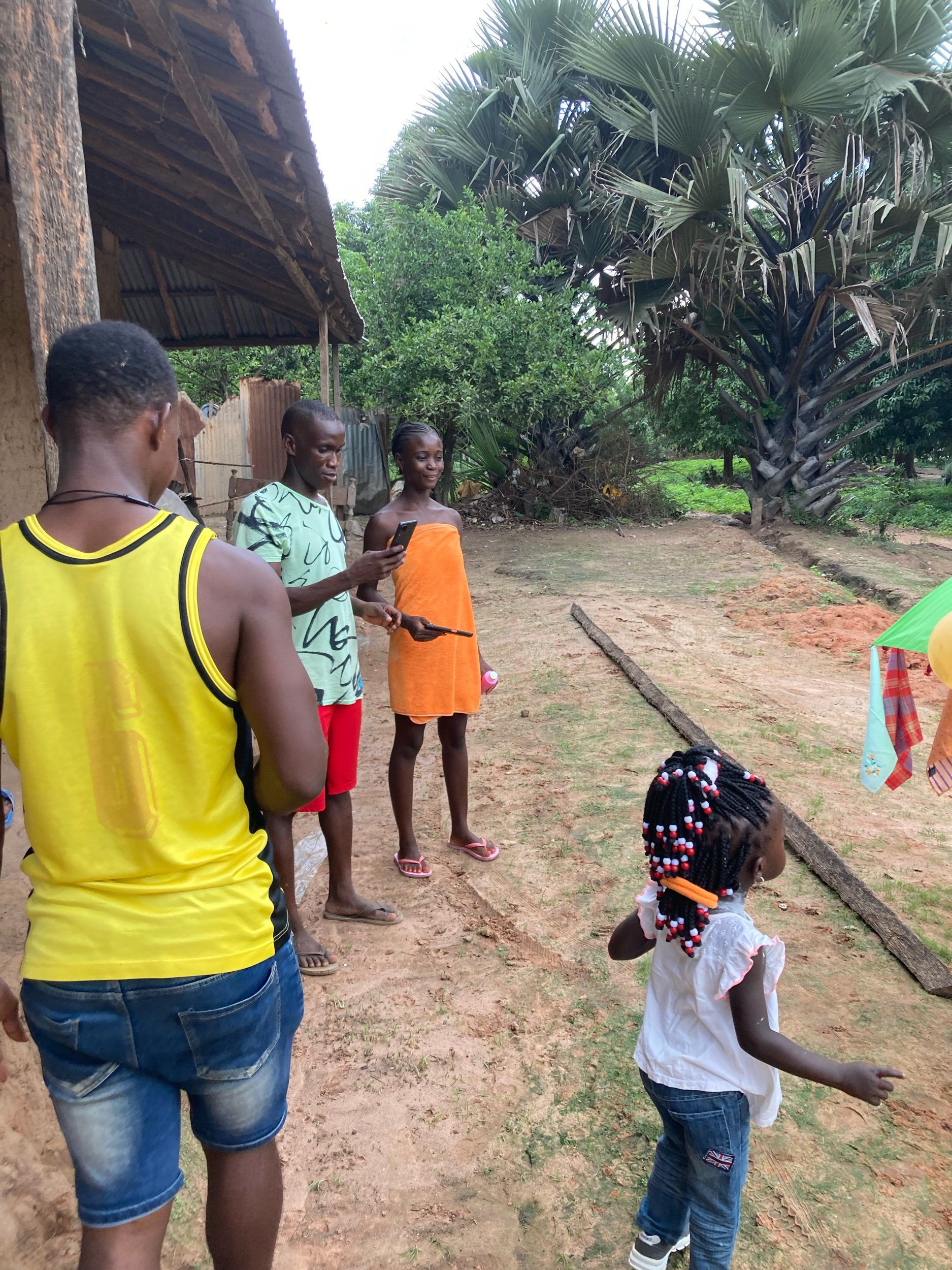
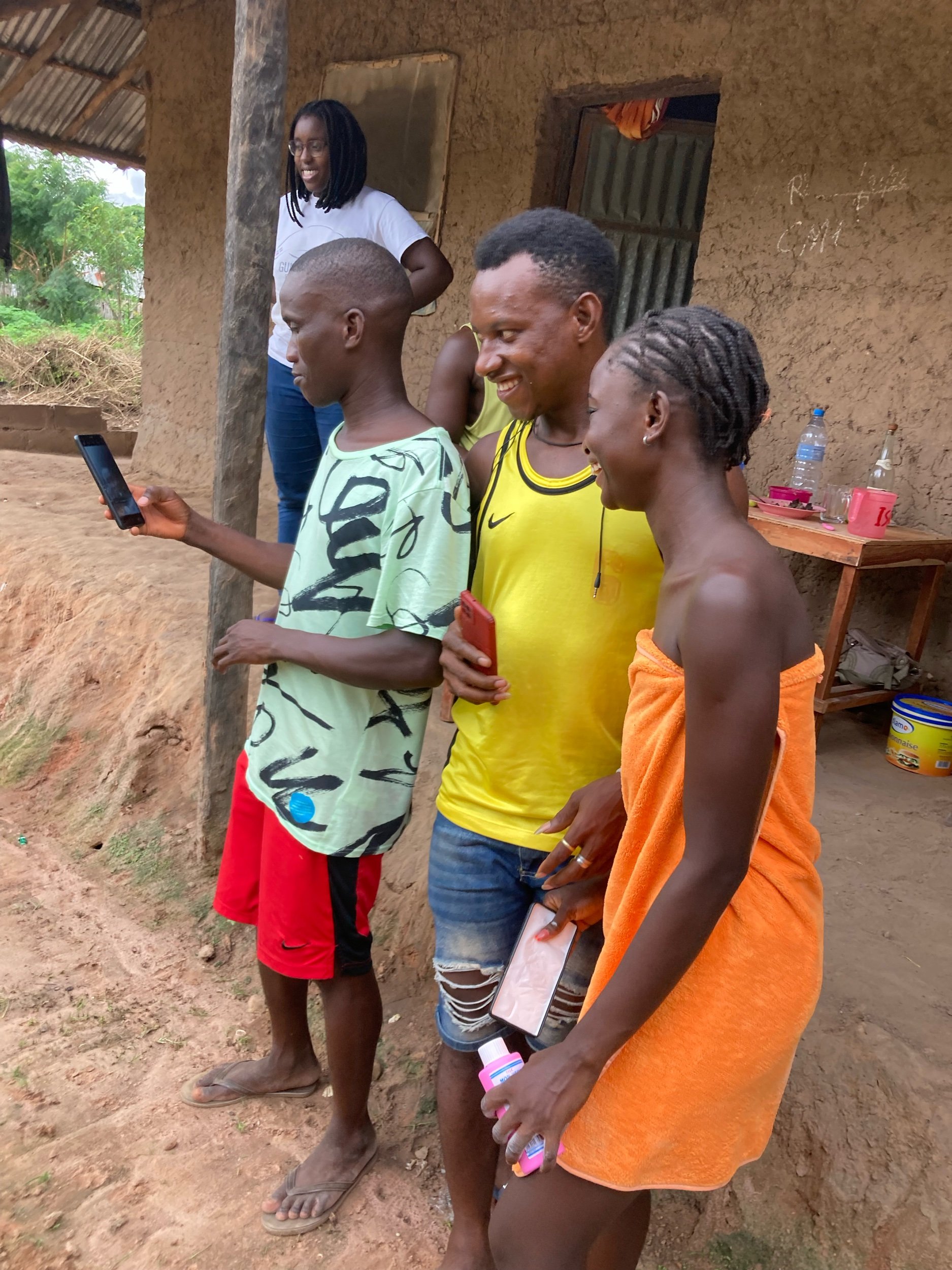
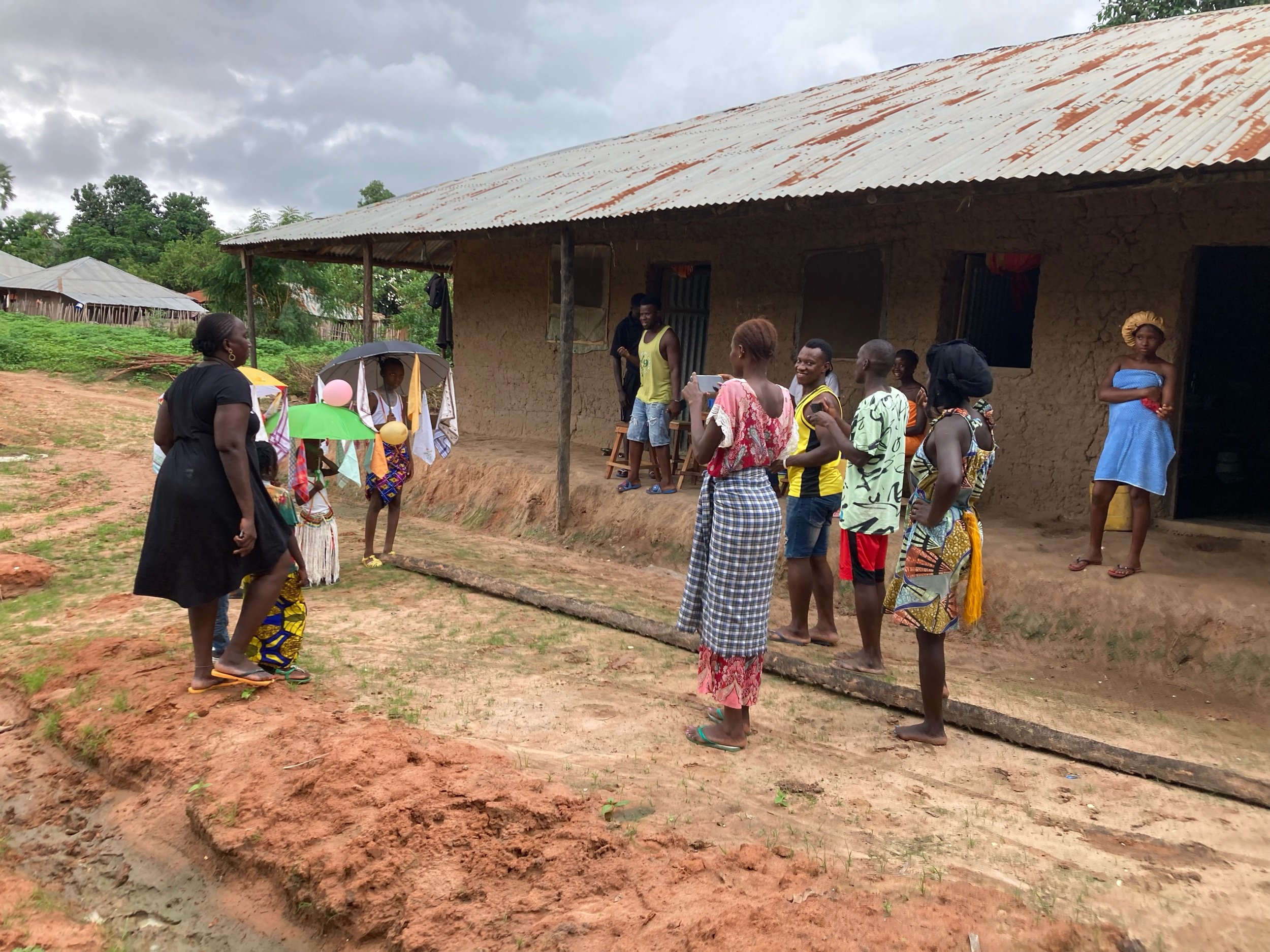
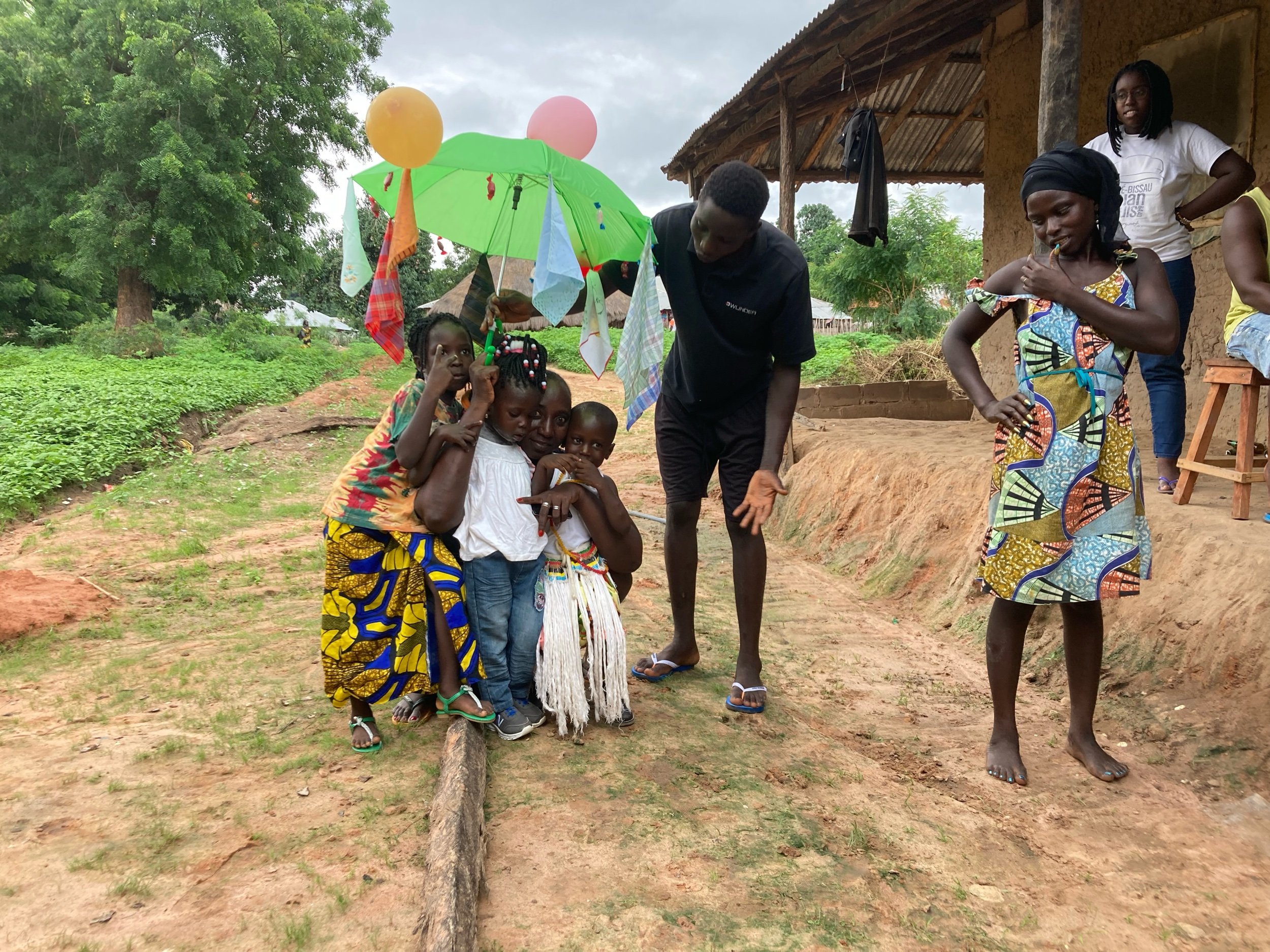
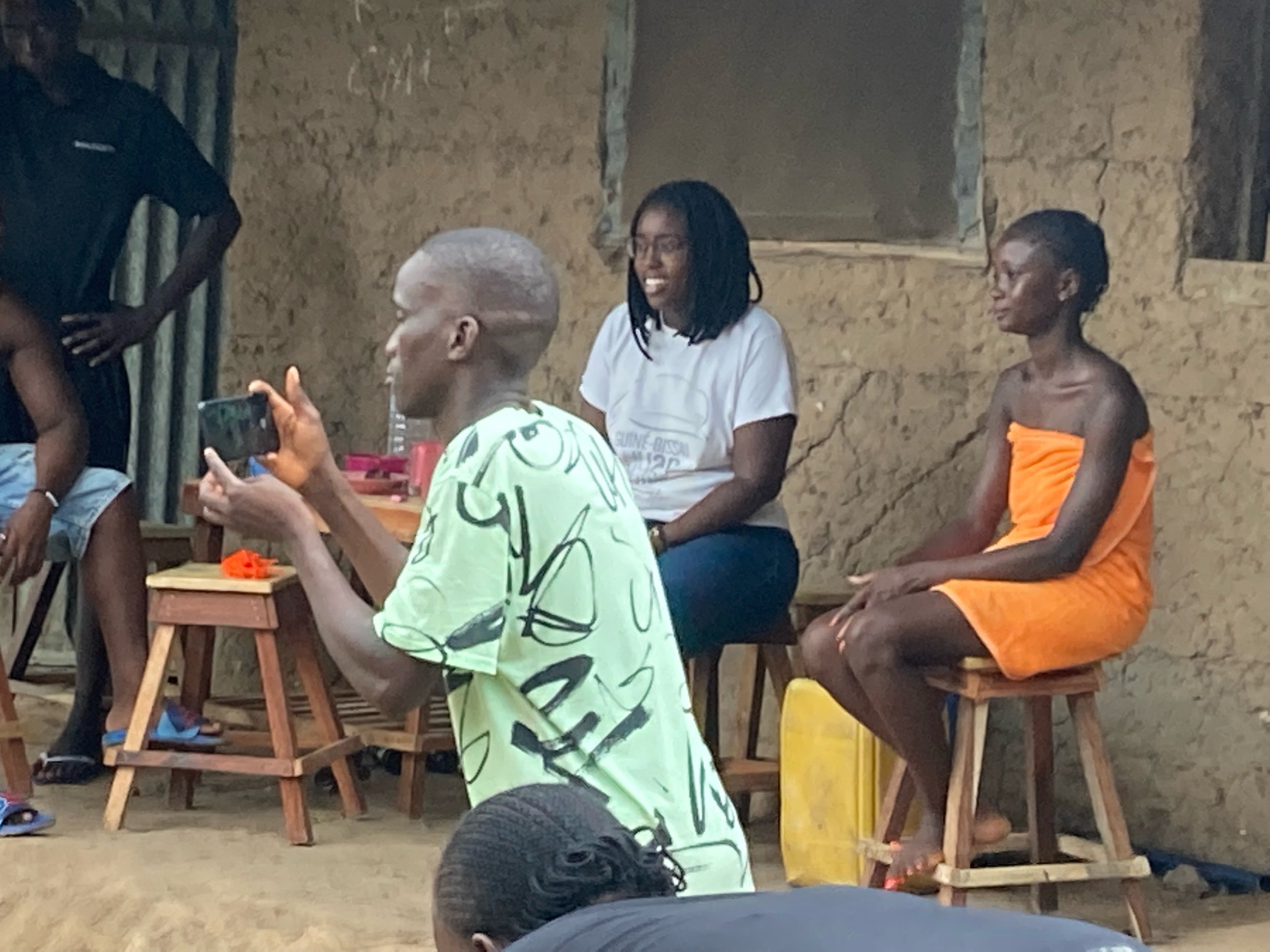
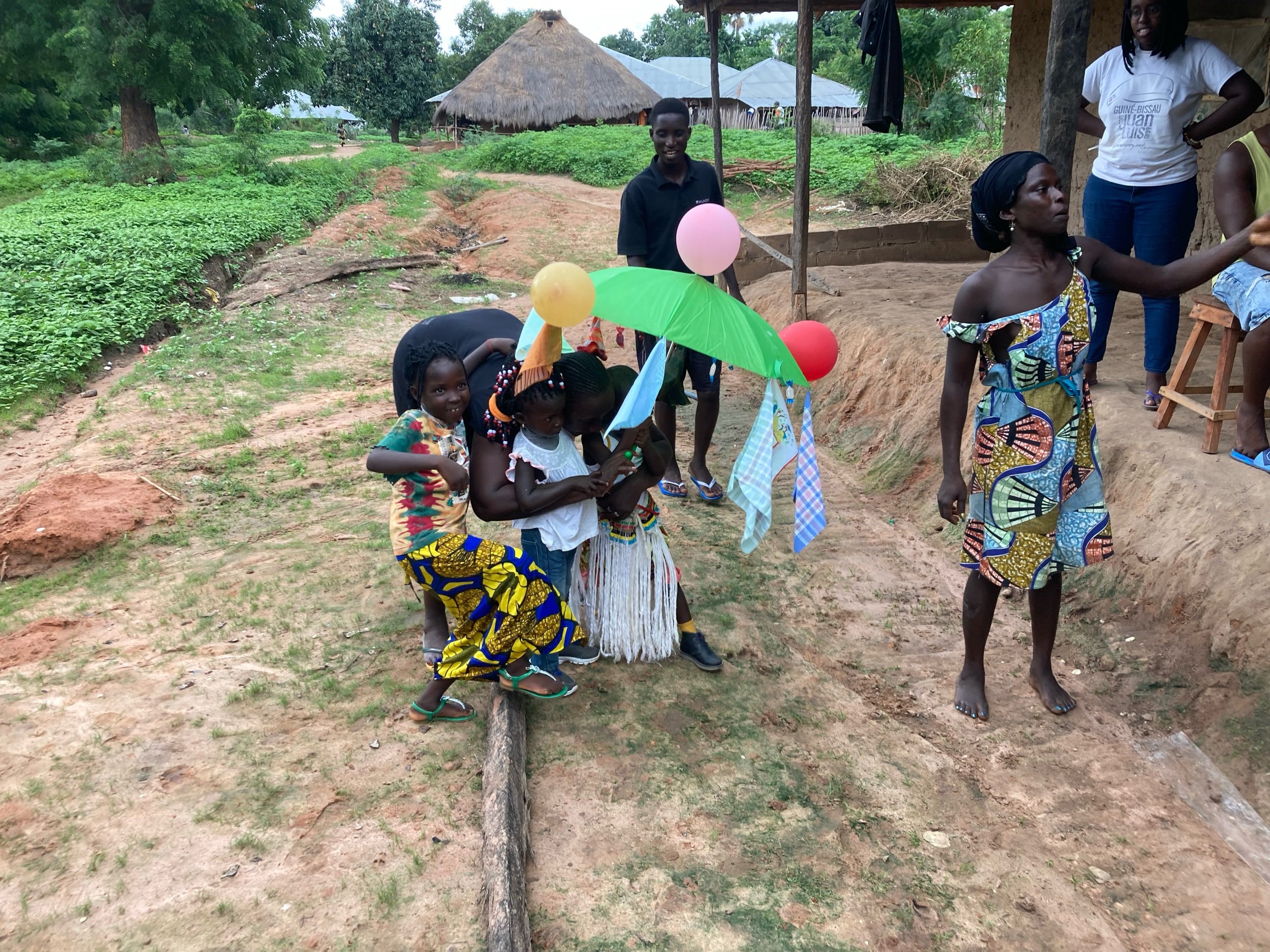
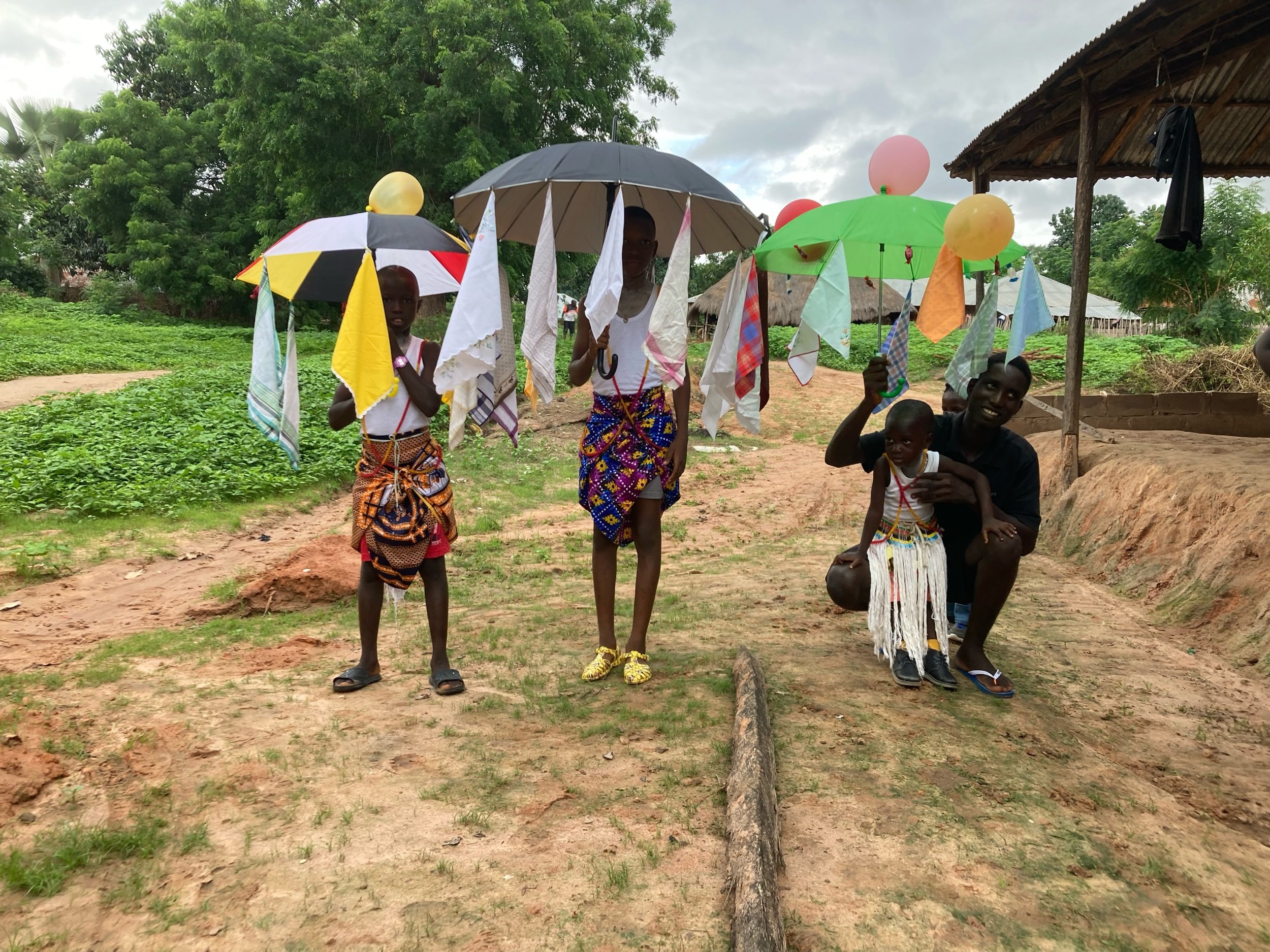
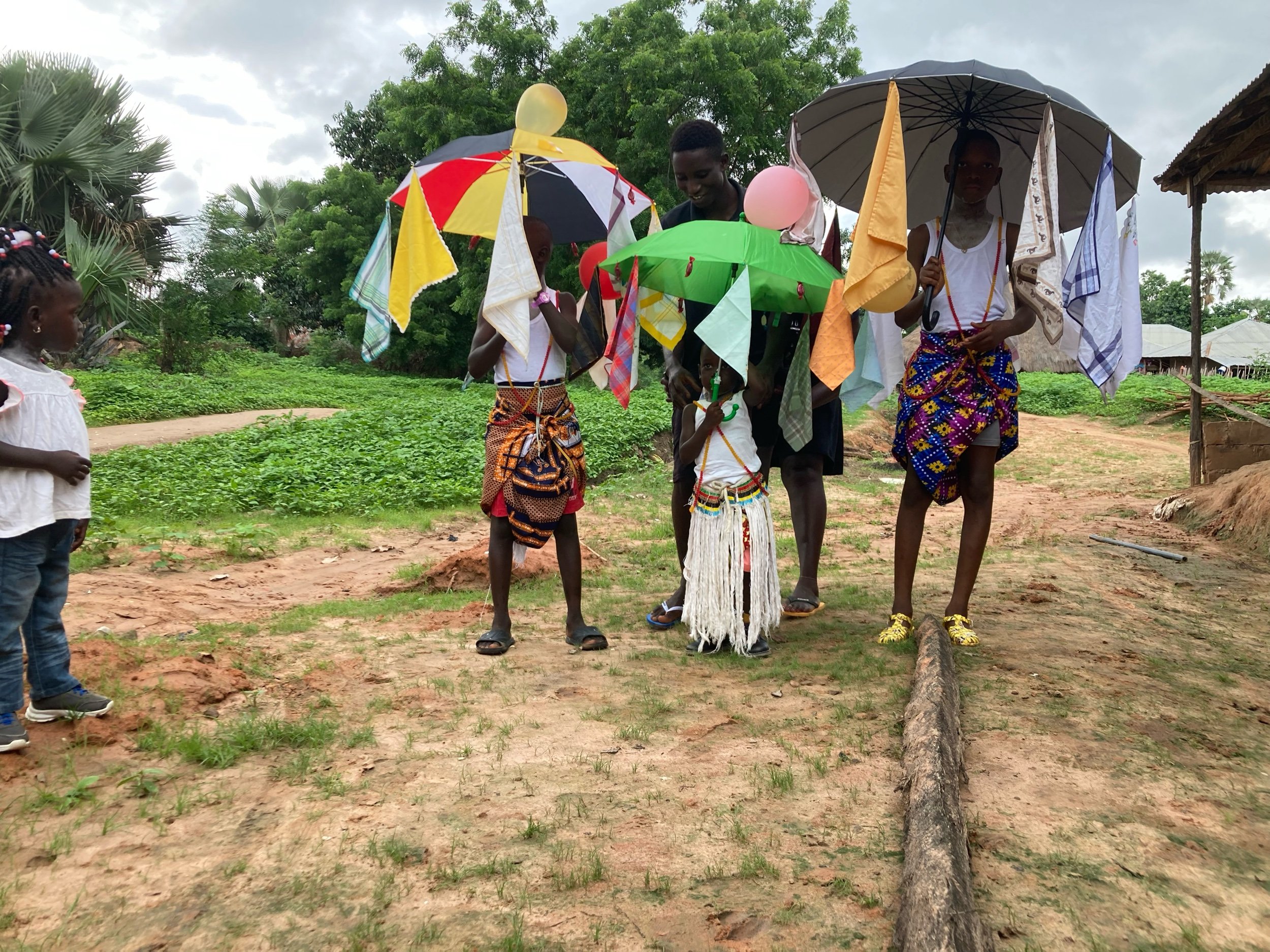
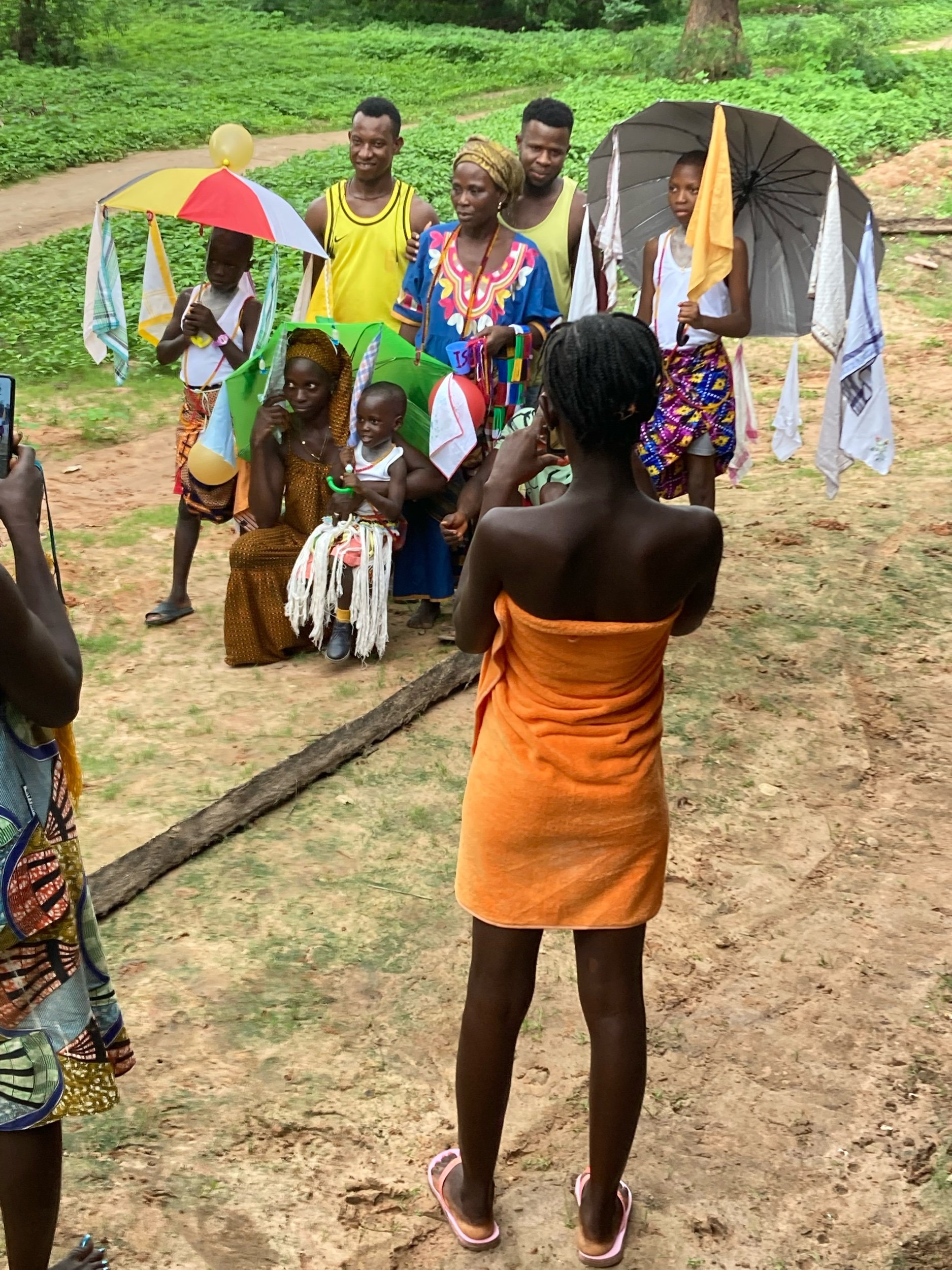
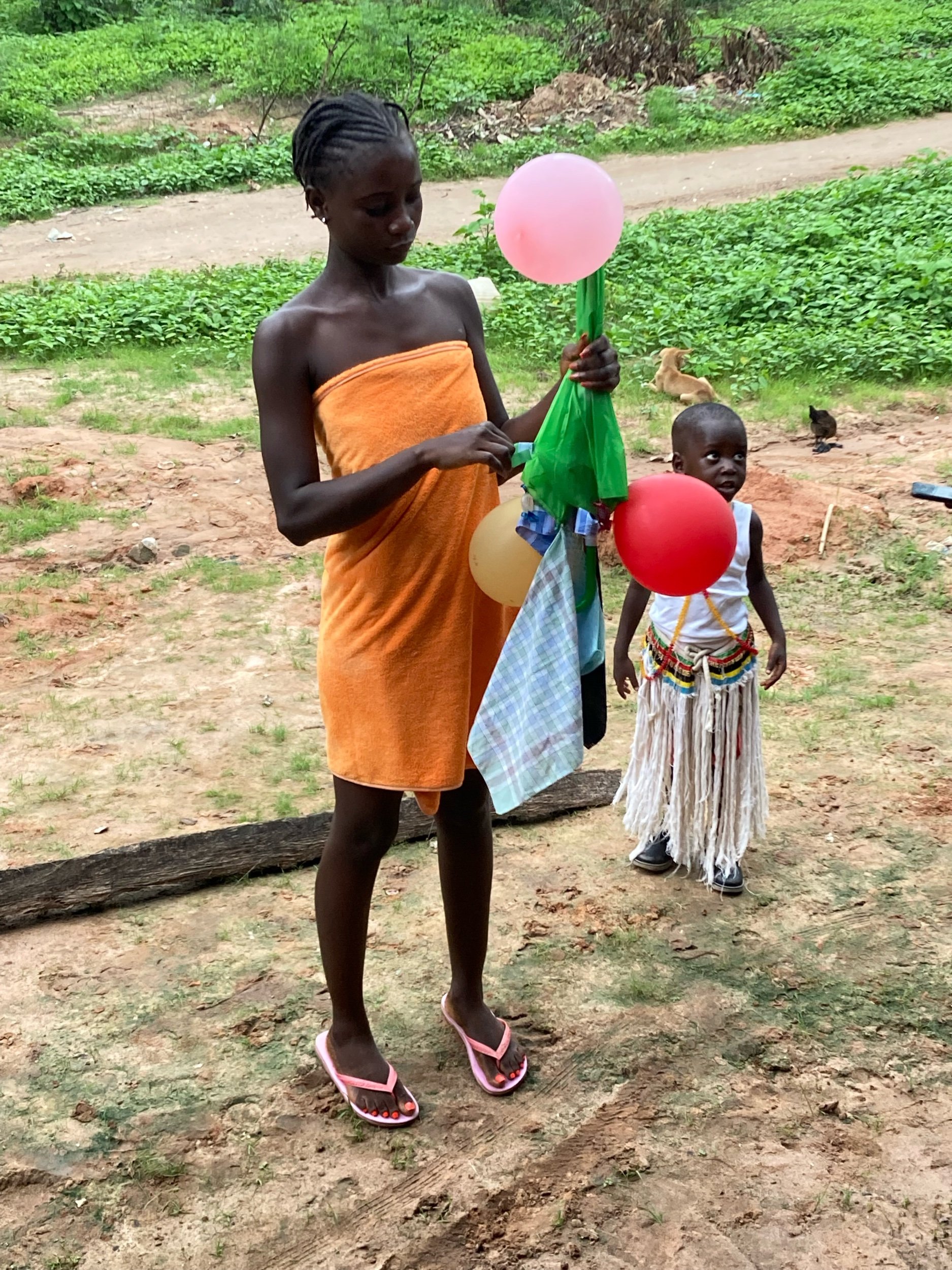
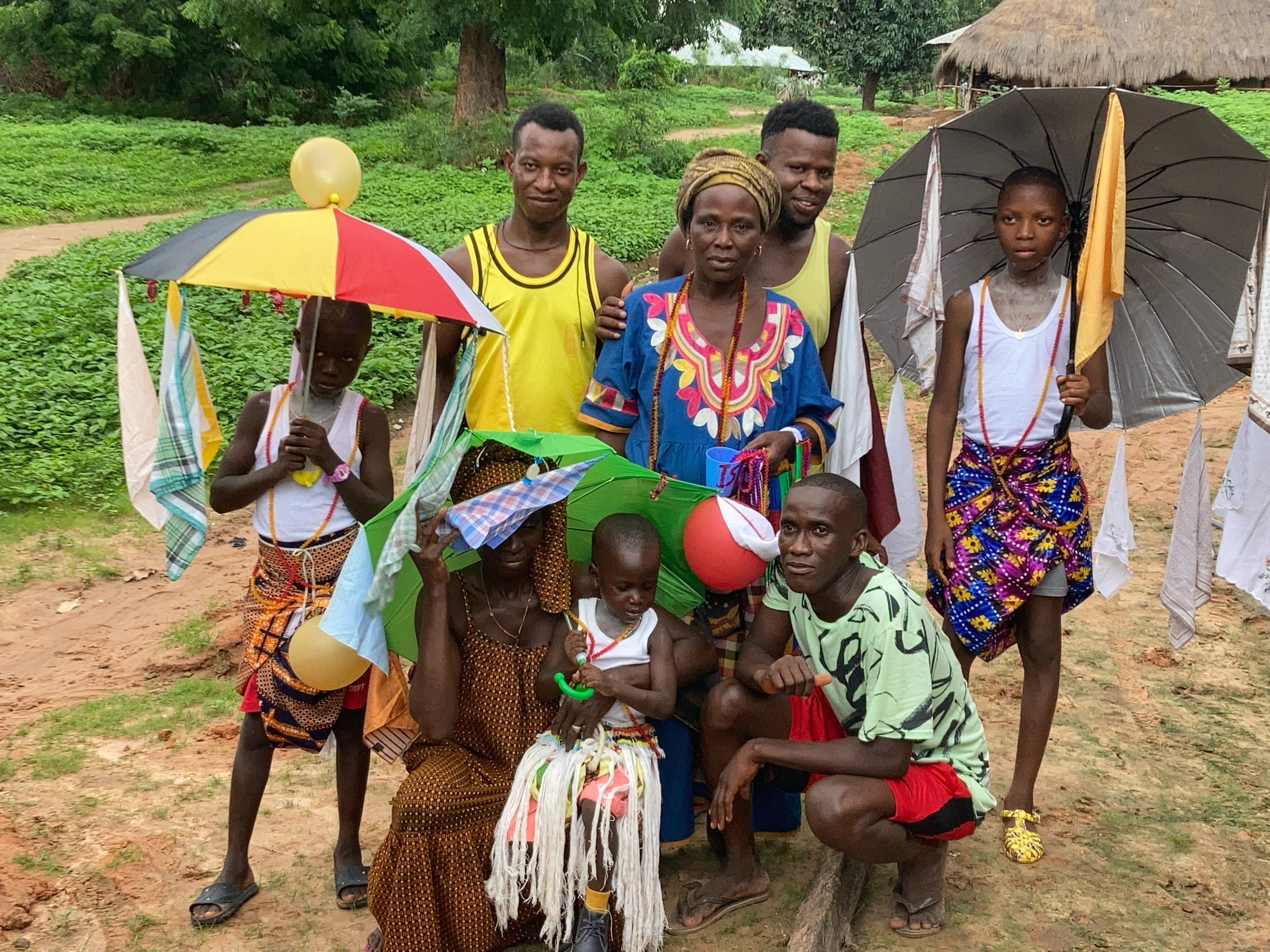
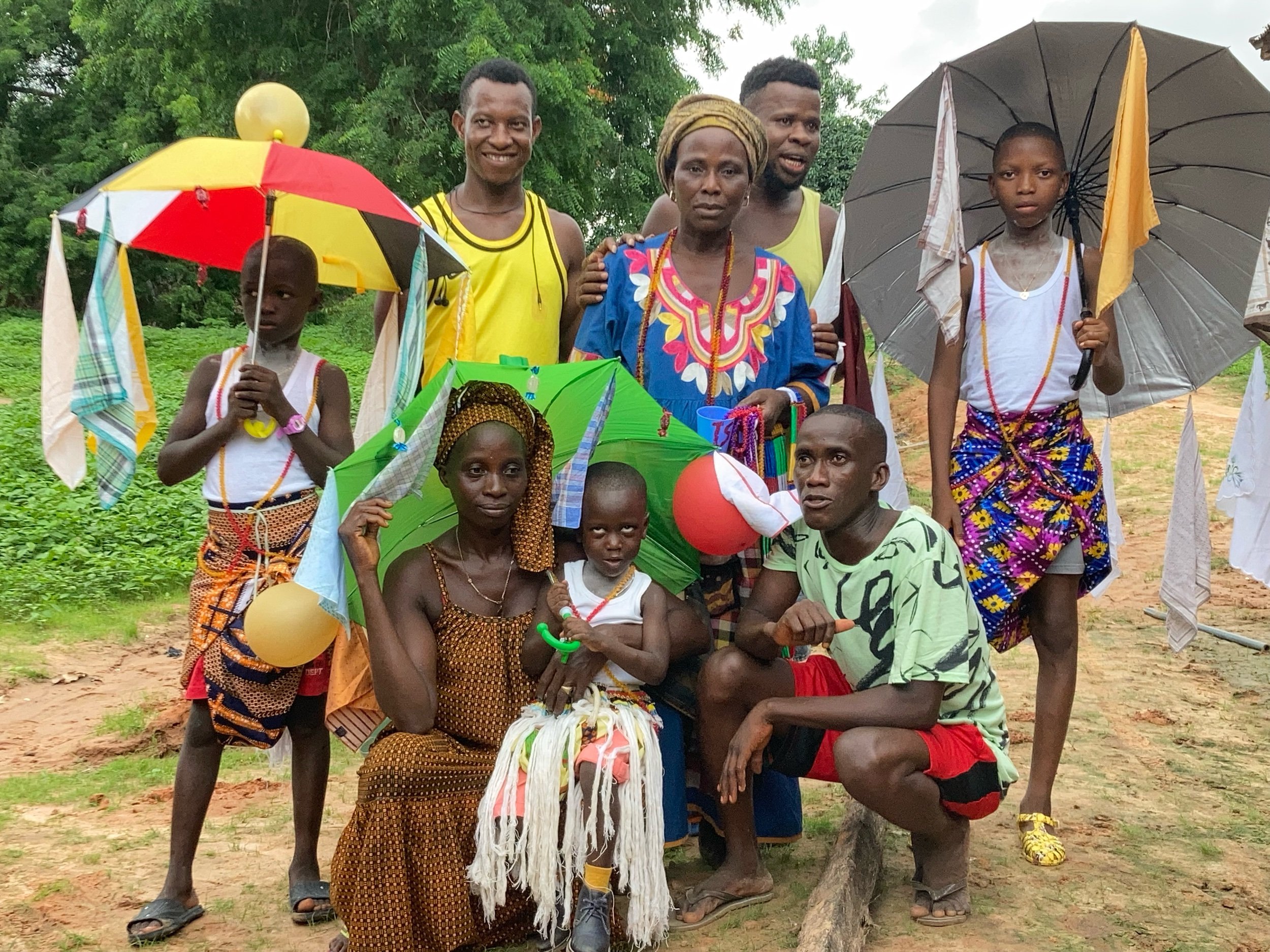
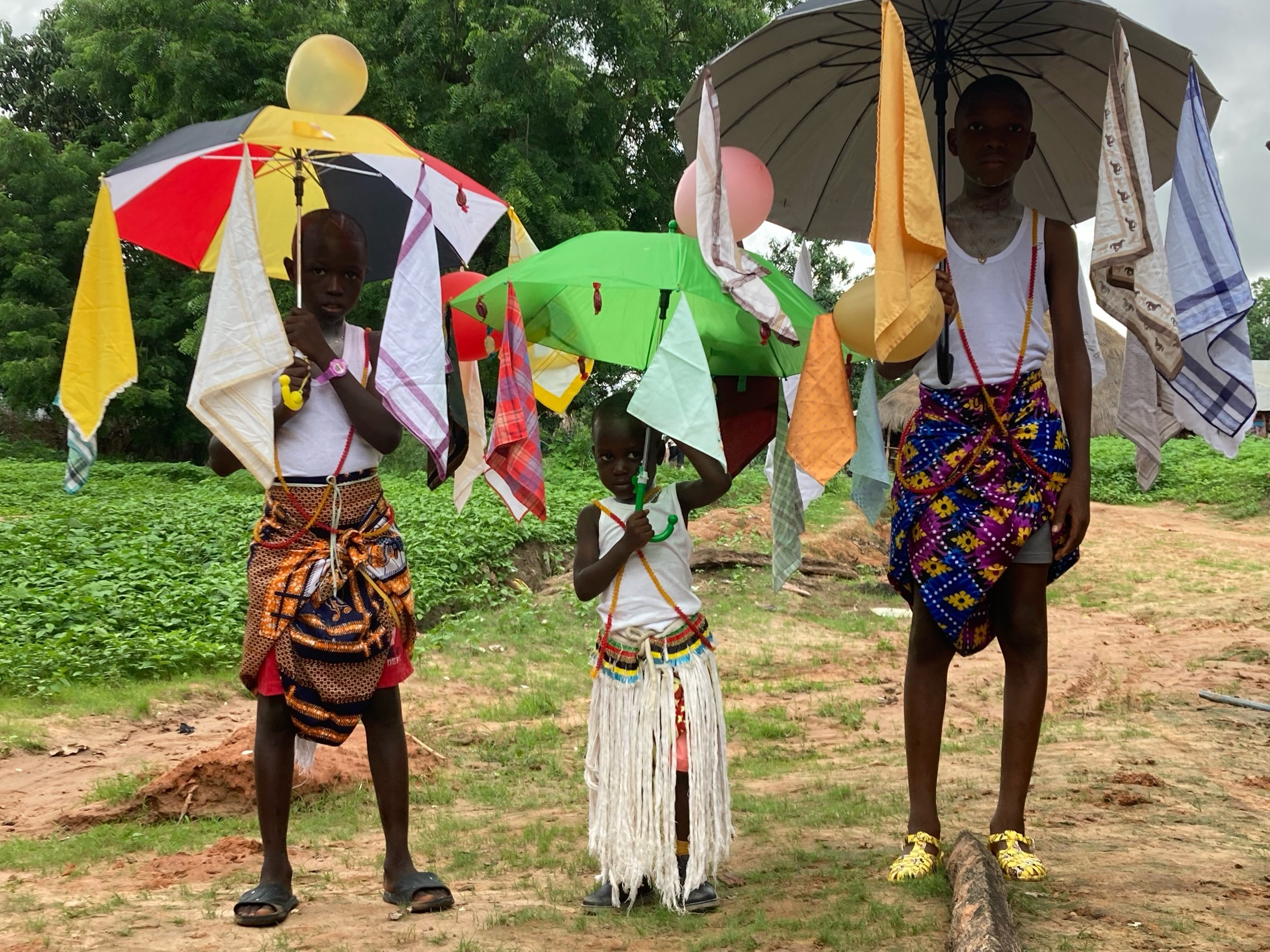
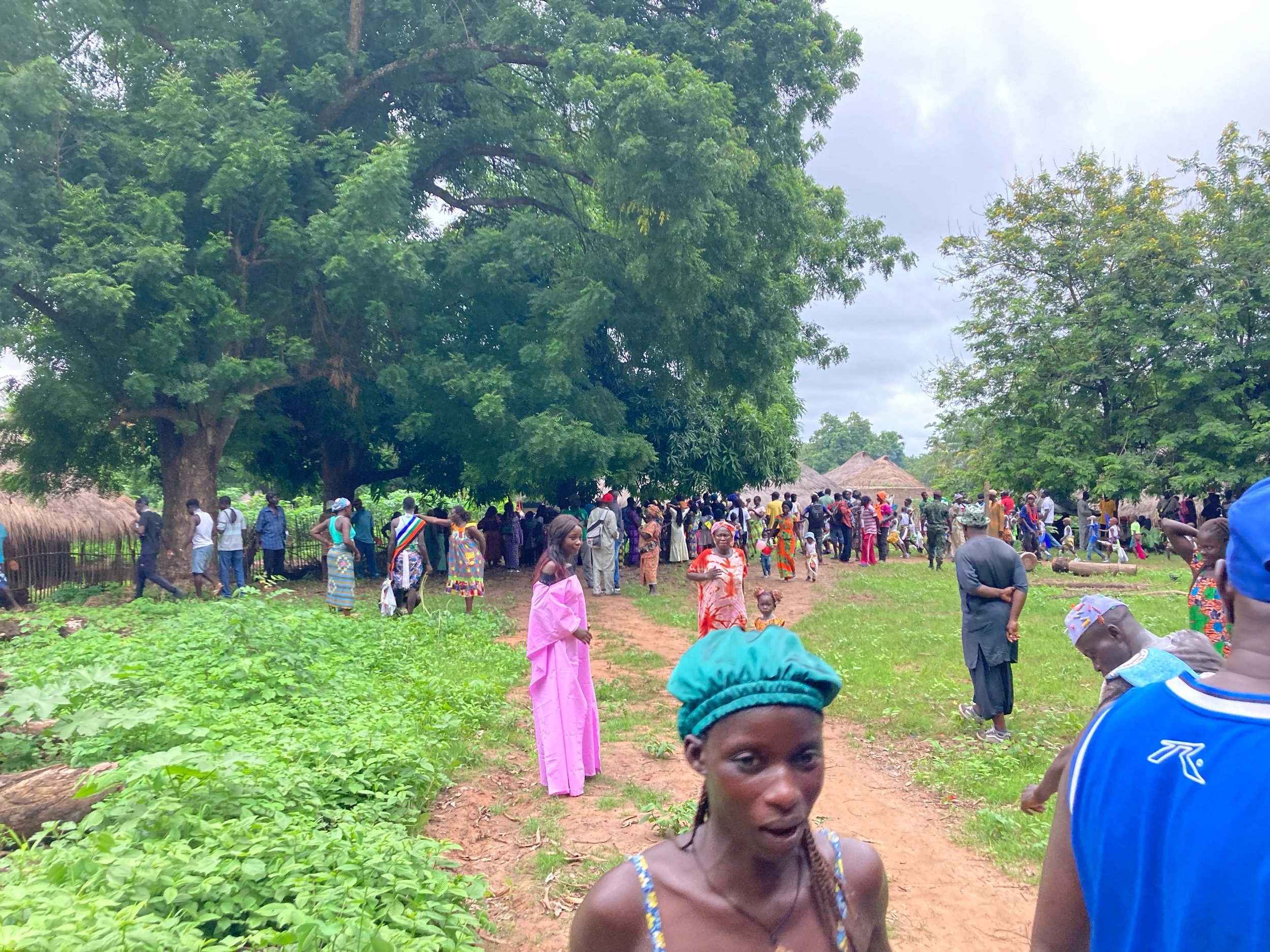
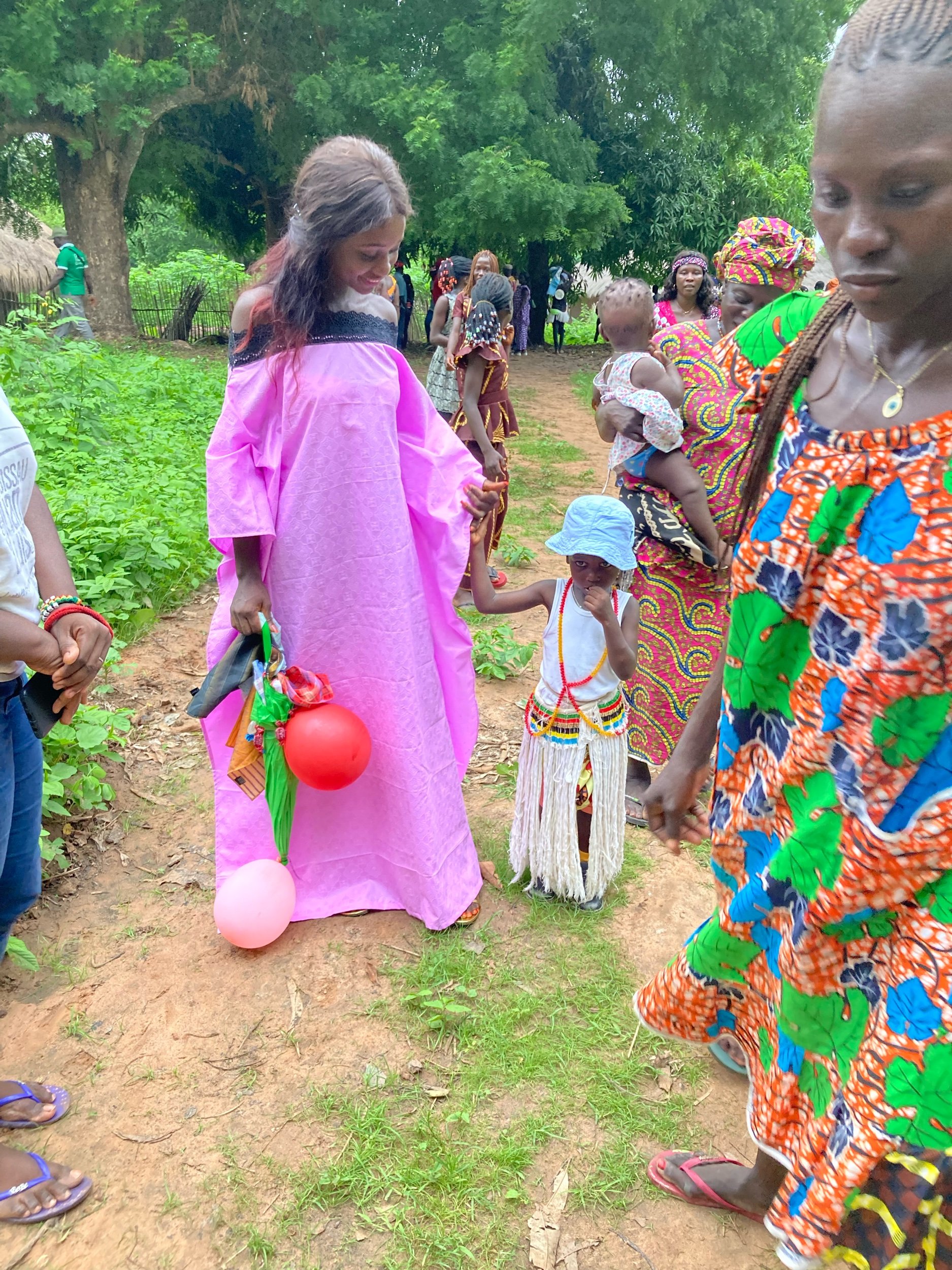
In between the 30-year Fanado initiation, the Djola (Felupe) hold three ceremonies to do a kind of census of all the boys and men in the village who must prepare for Fanado. Each of the nearby villages does this at different times.
And just as soon as night 1 of Essangai got started, so, too, did a torrential downpour. Only the diehard faithfull stayed with the dancers. The rest of us fled for shelter!
The next morning, we were invited to “bim kumi” - come eat - from the community pot under the big tree.
With nothing to do during the day, I introduced the game “Connect Four” to the house. It was a big hit and for the rest of the visit, there was non-stop Connect Four games boys and girls, all ages.
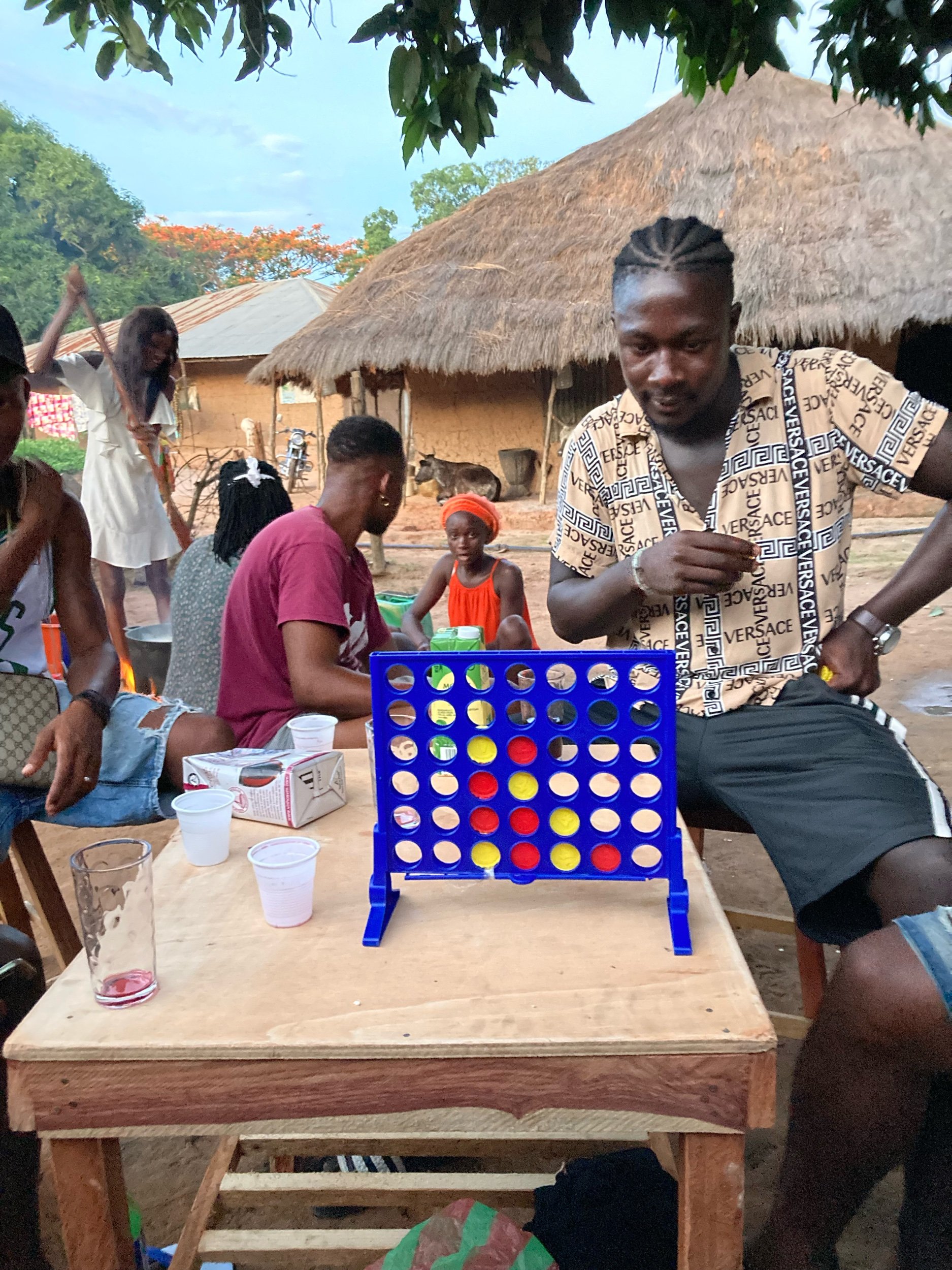
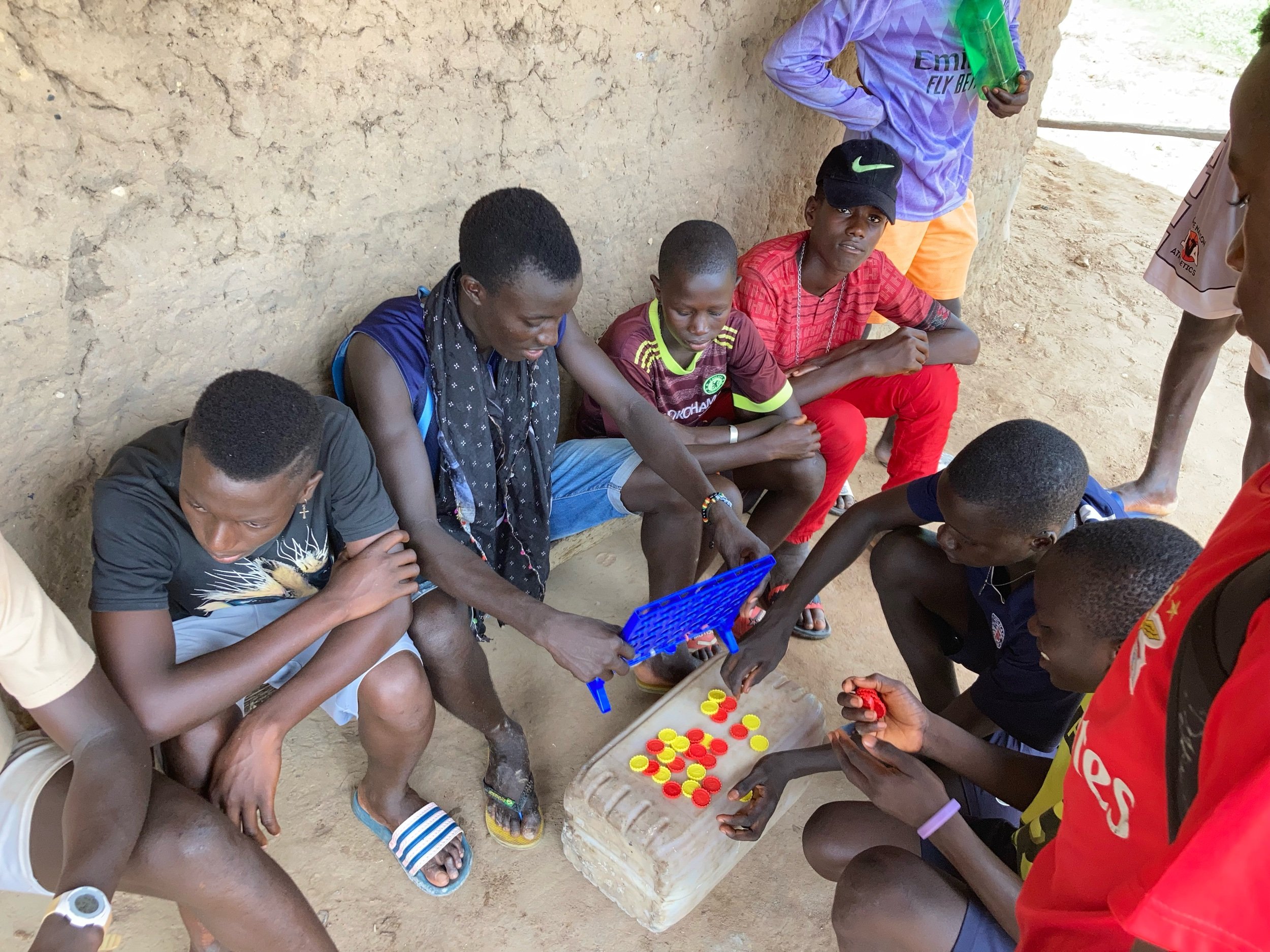
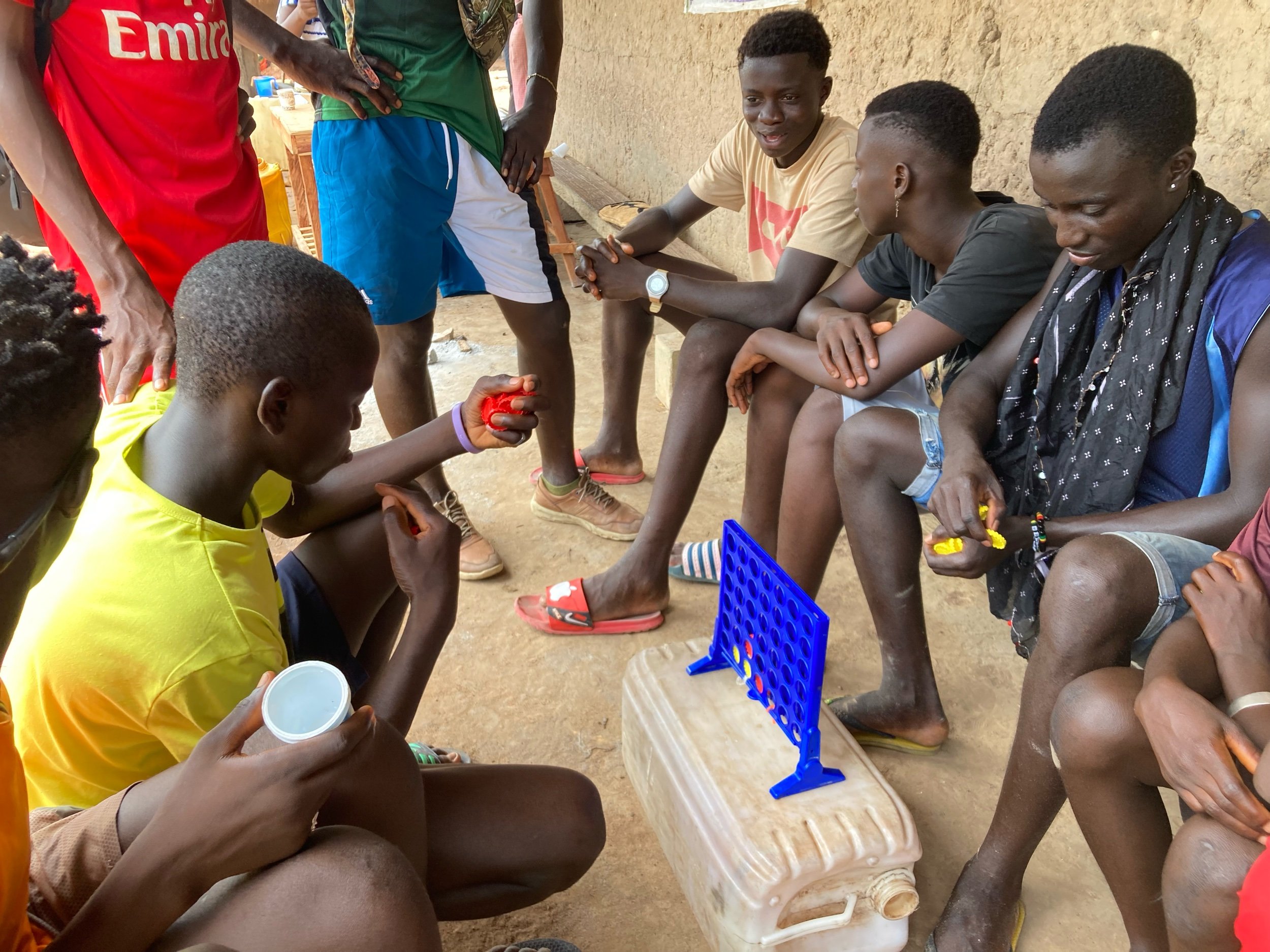
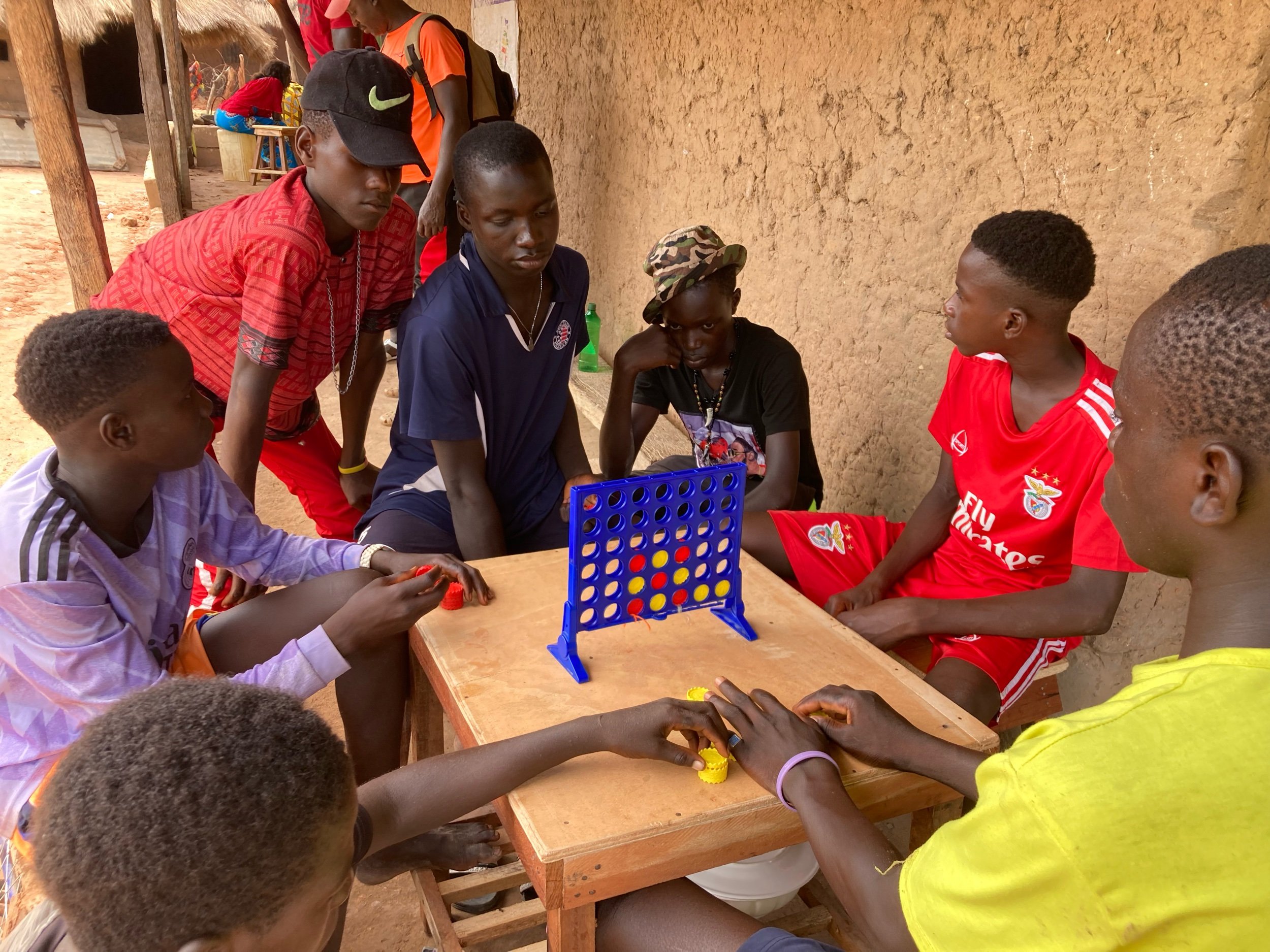
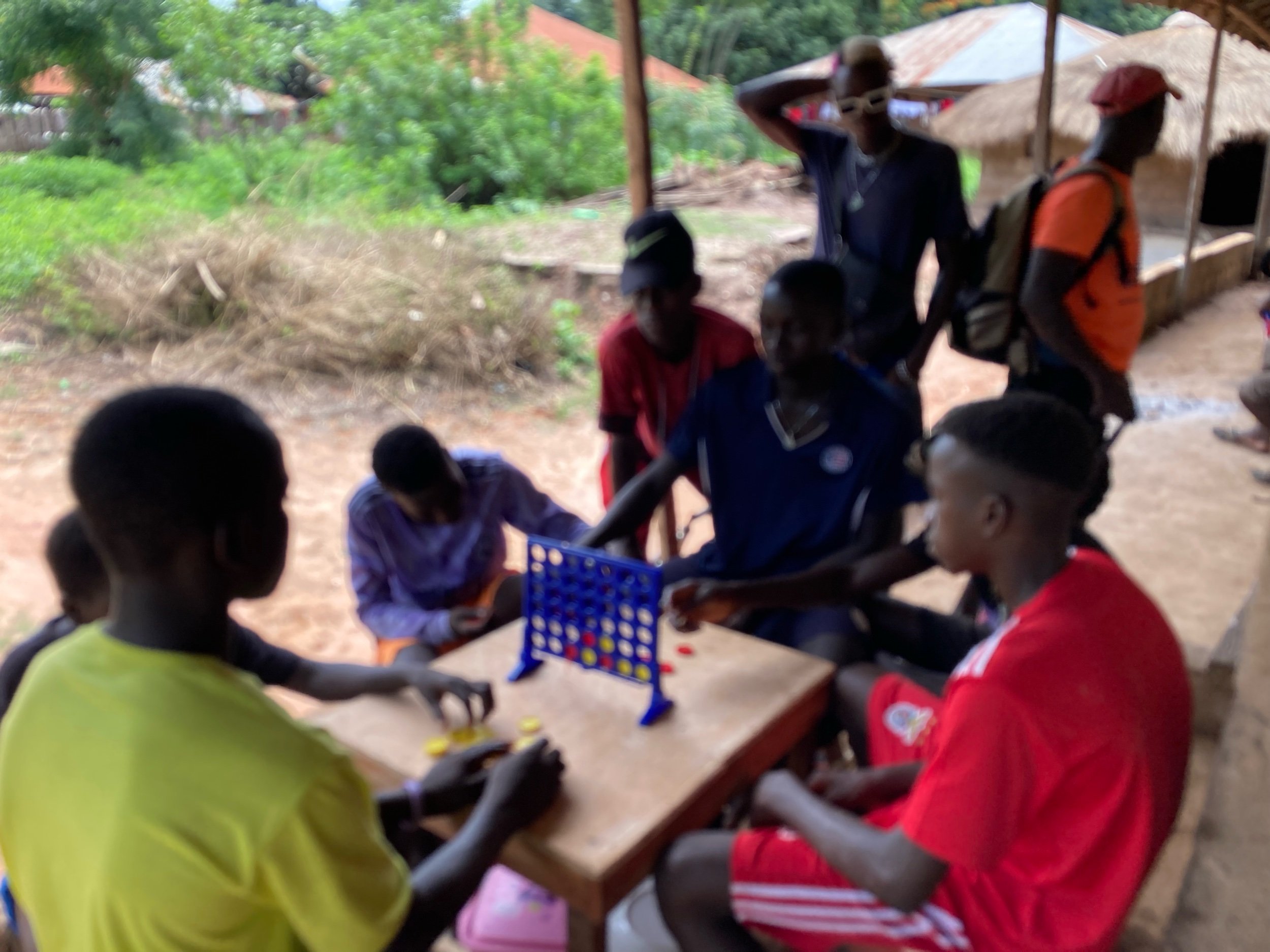
Finally, it was time to go to night 2 of Essangai ceremony.
This time, we returned before the rains! Of course, more pots of pig were cooking to feed everyone again through the night.
Night 3 of Essangai was epic.
On the fourth day, I wanted to talk to the elders and deliver a message on behalf of the Lineage Restoration Council of Guinea Bissau and the Decade of Return Initiative. This, however, was proving to be a little bit difficult due to all the activity going on in Susana as well as the fact that since we were not initiated into the Felupe society, we couldn’t talk to the elders directly. Thus, we had to meet with initiated young men who could carry our message to the elders. We also went about the town to find Adriano who is Felupe but speaks English and can help us with a Djola (Felupe) - English dictionary and language lessons.
Night 4 of Essangai was also epic
The final night we returned to the house to, you guessed it, eat more pig, sit and talk. At 4:30 am, it was time to walk into the village center and catch the bus to go to San Domingo where we were to catch a second bus to return to Bissau. We were sore and tired but thankful to have witnessed Essangai 2023 and become part of Tanya’s family in Susana.
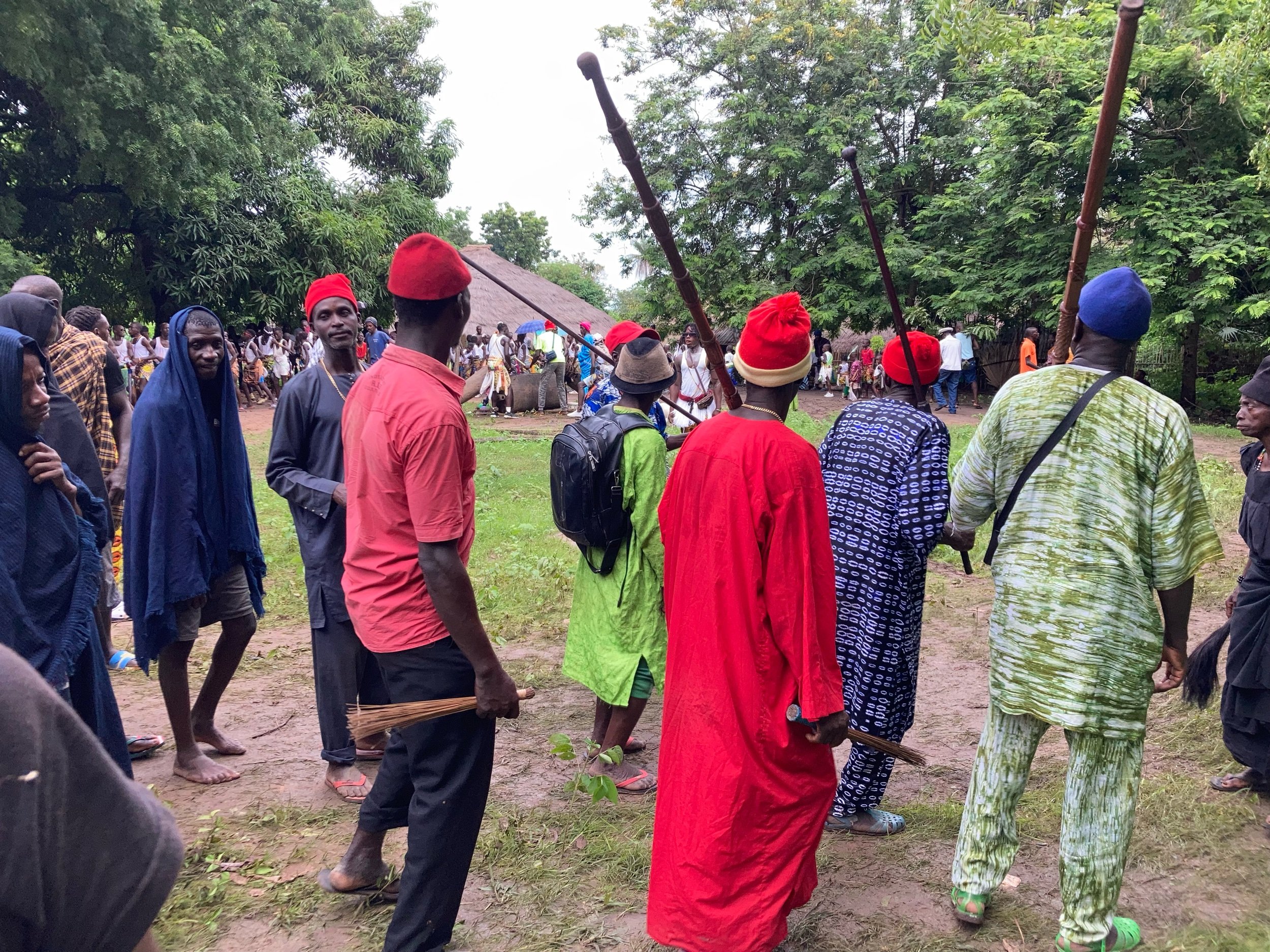
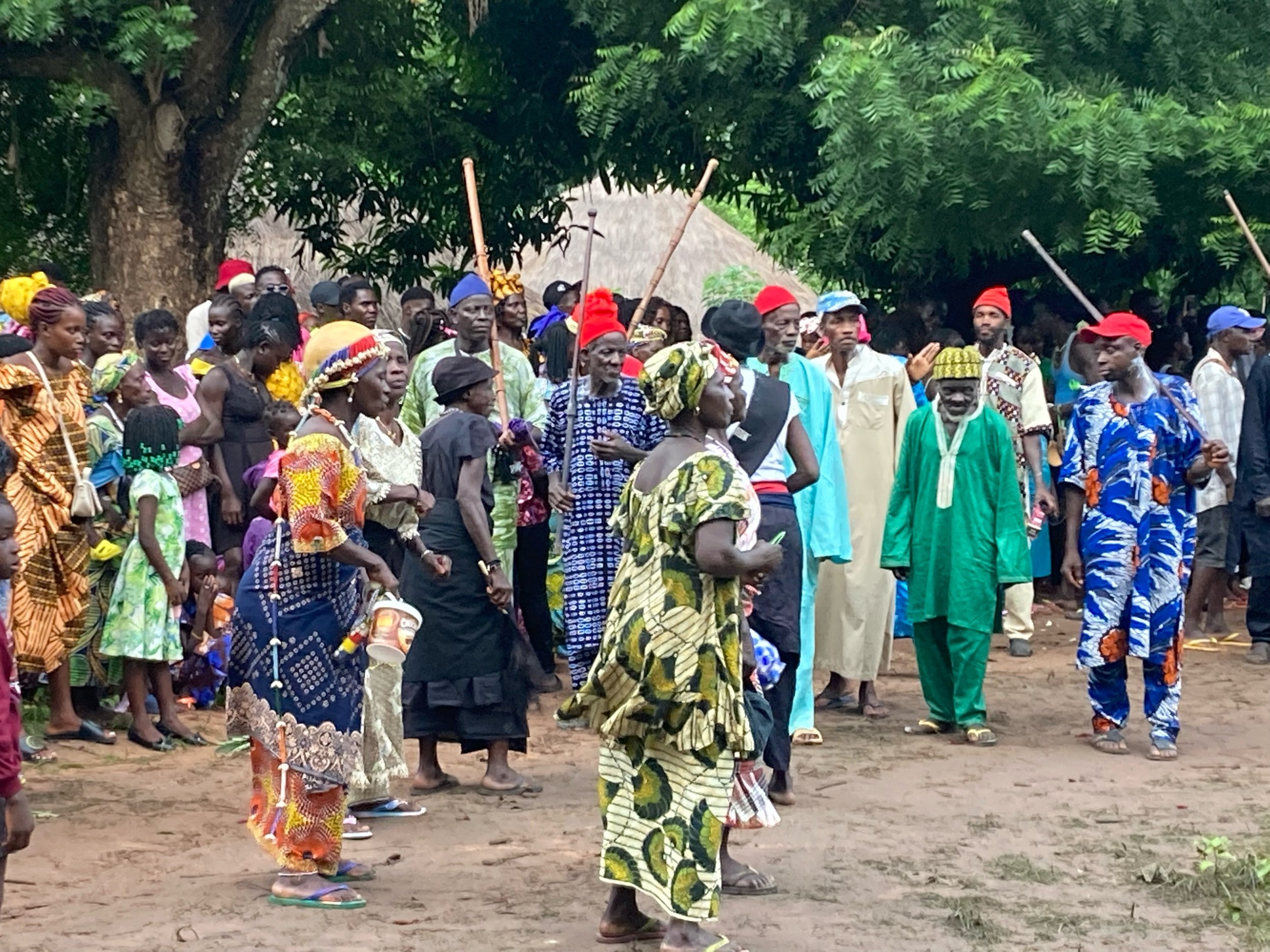
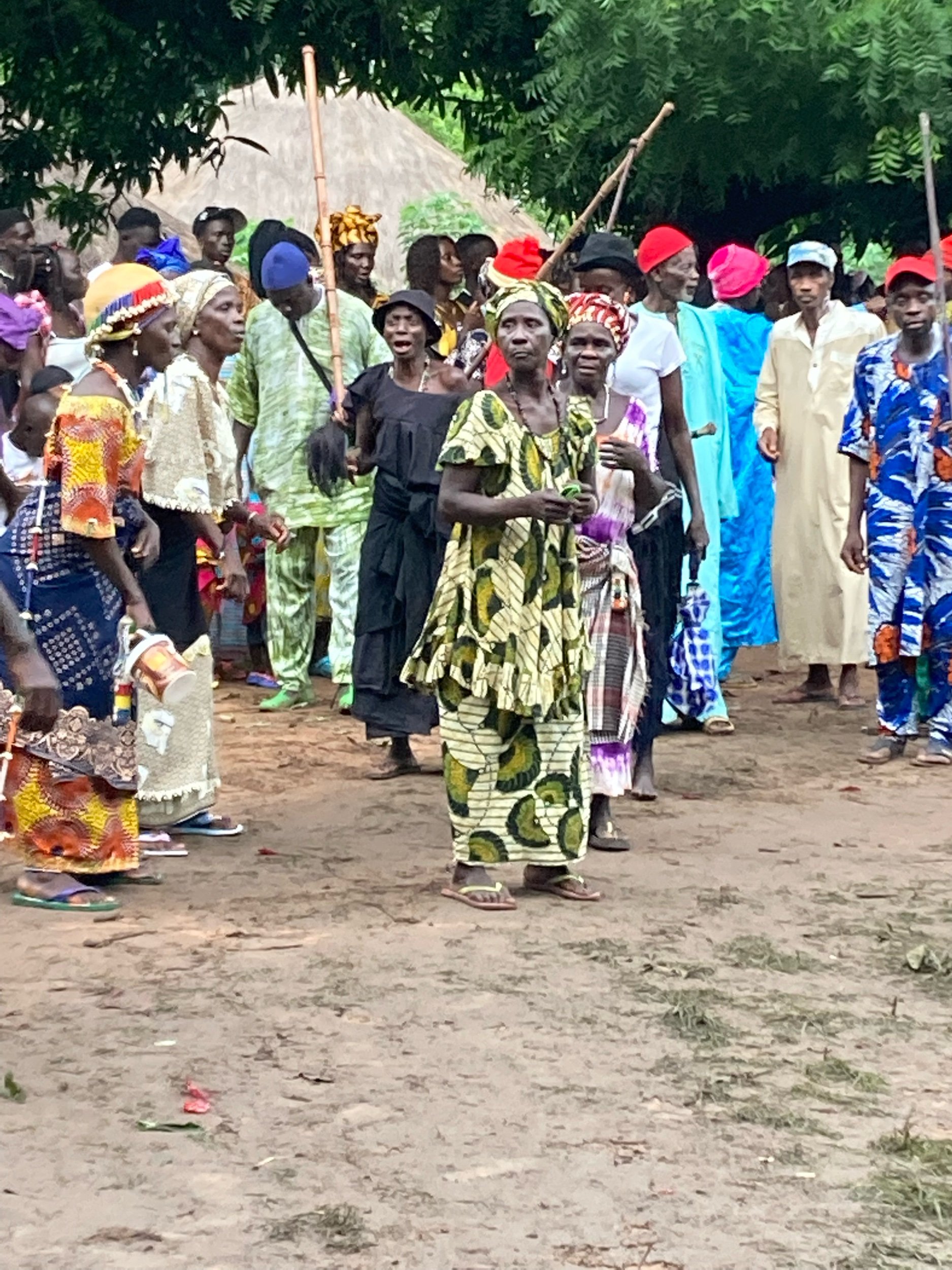
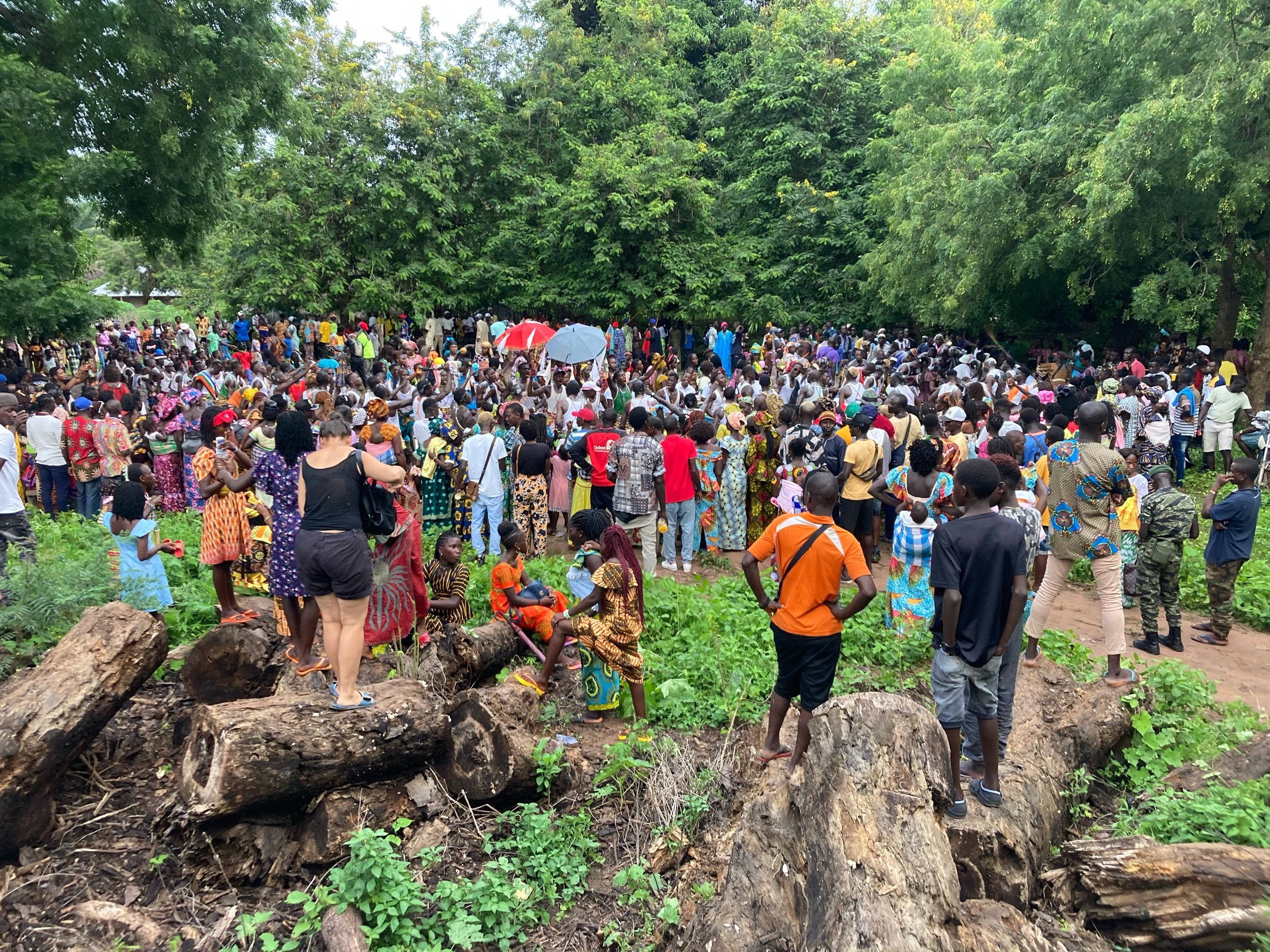
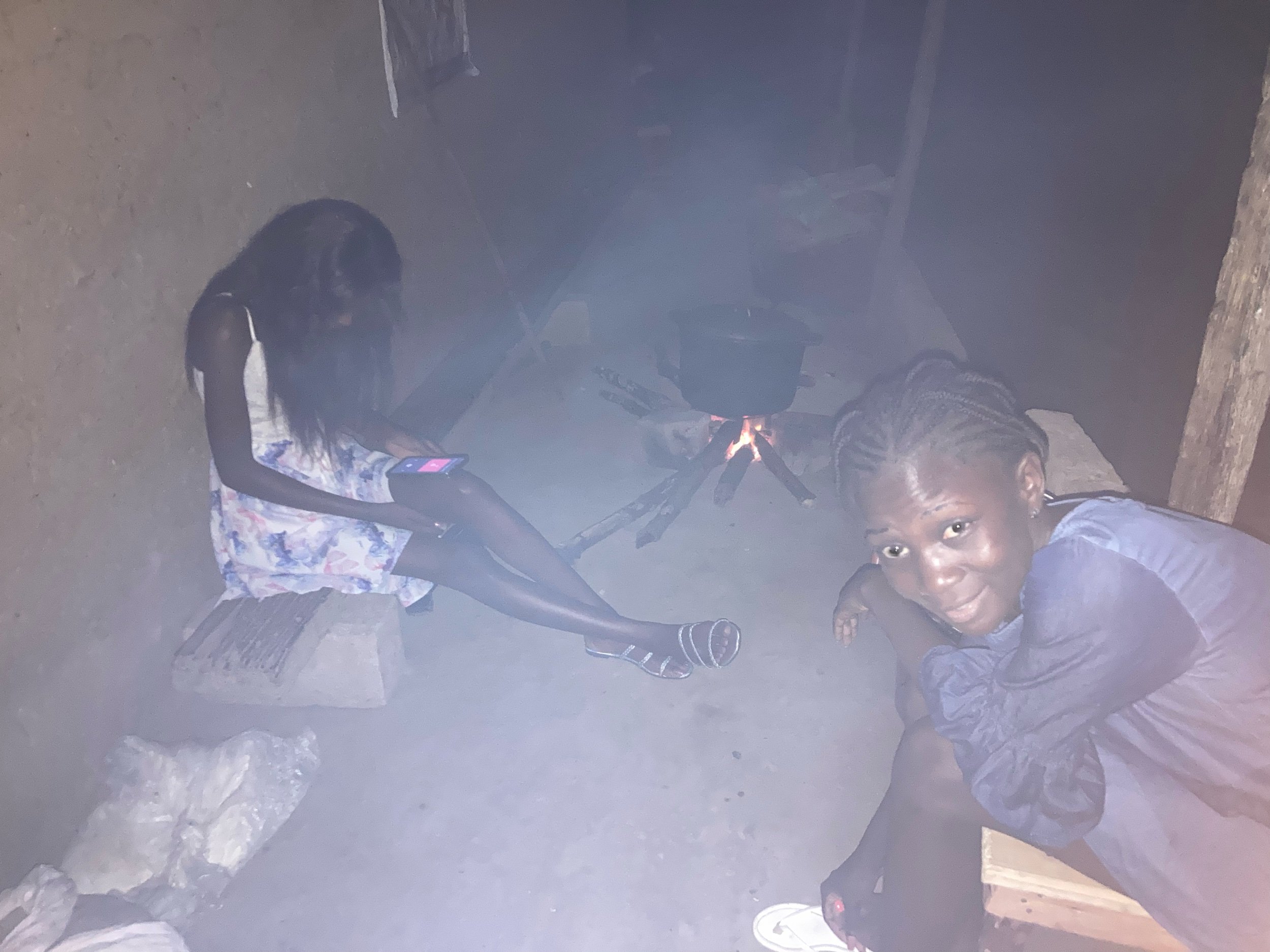
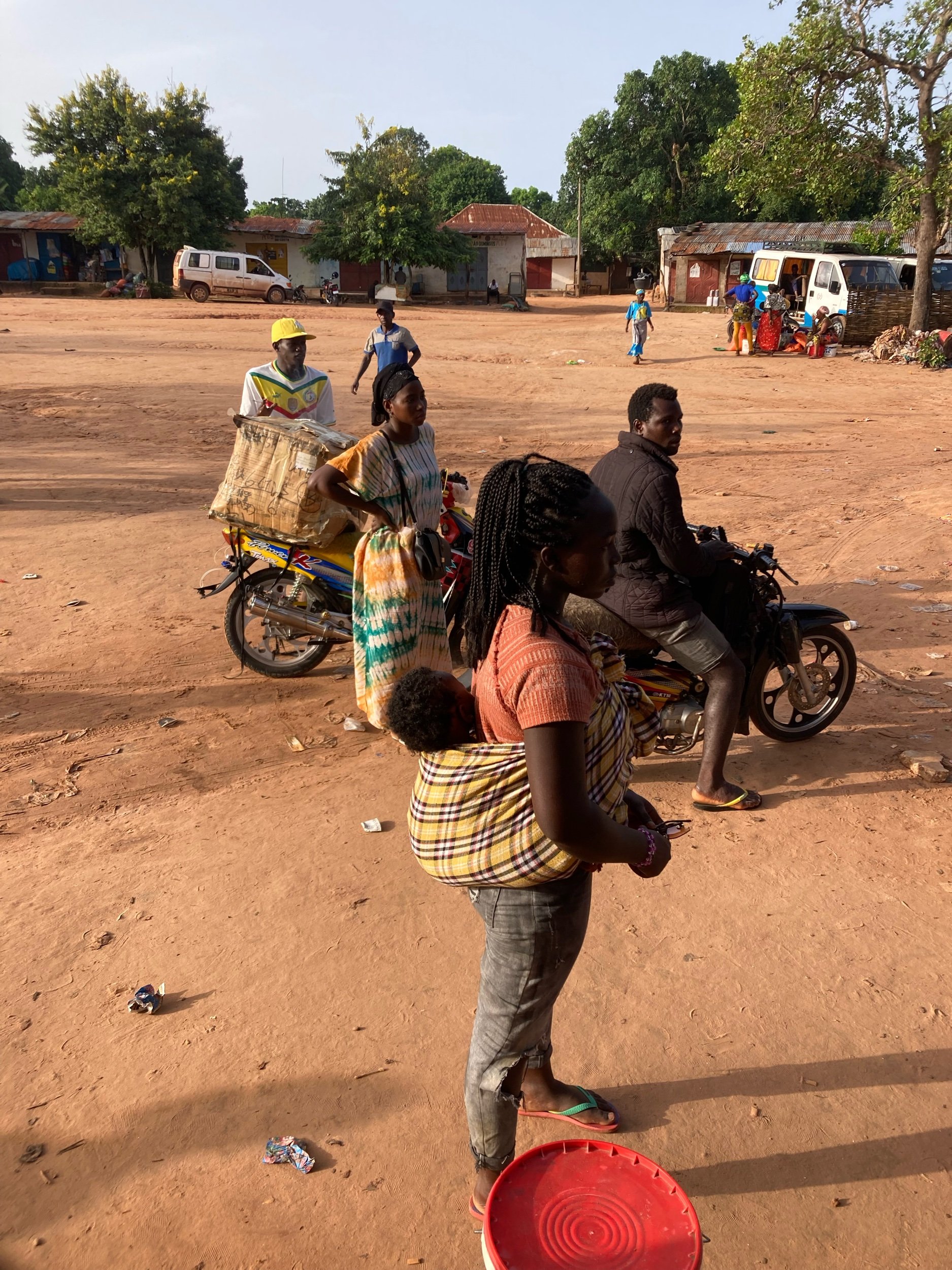
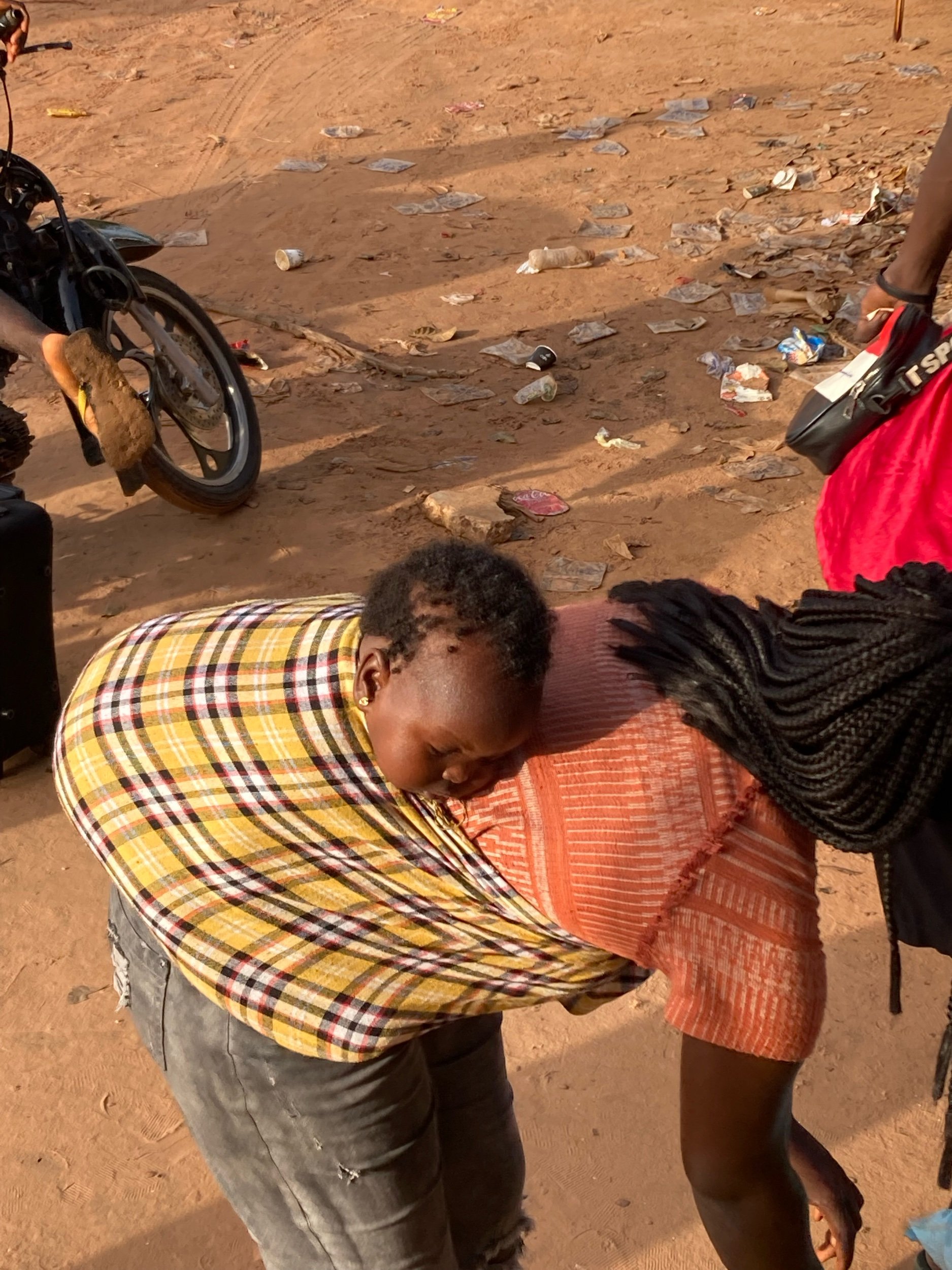
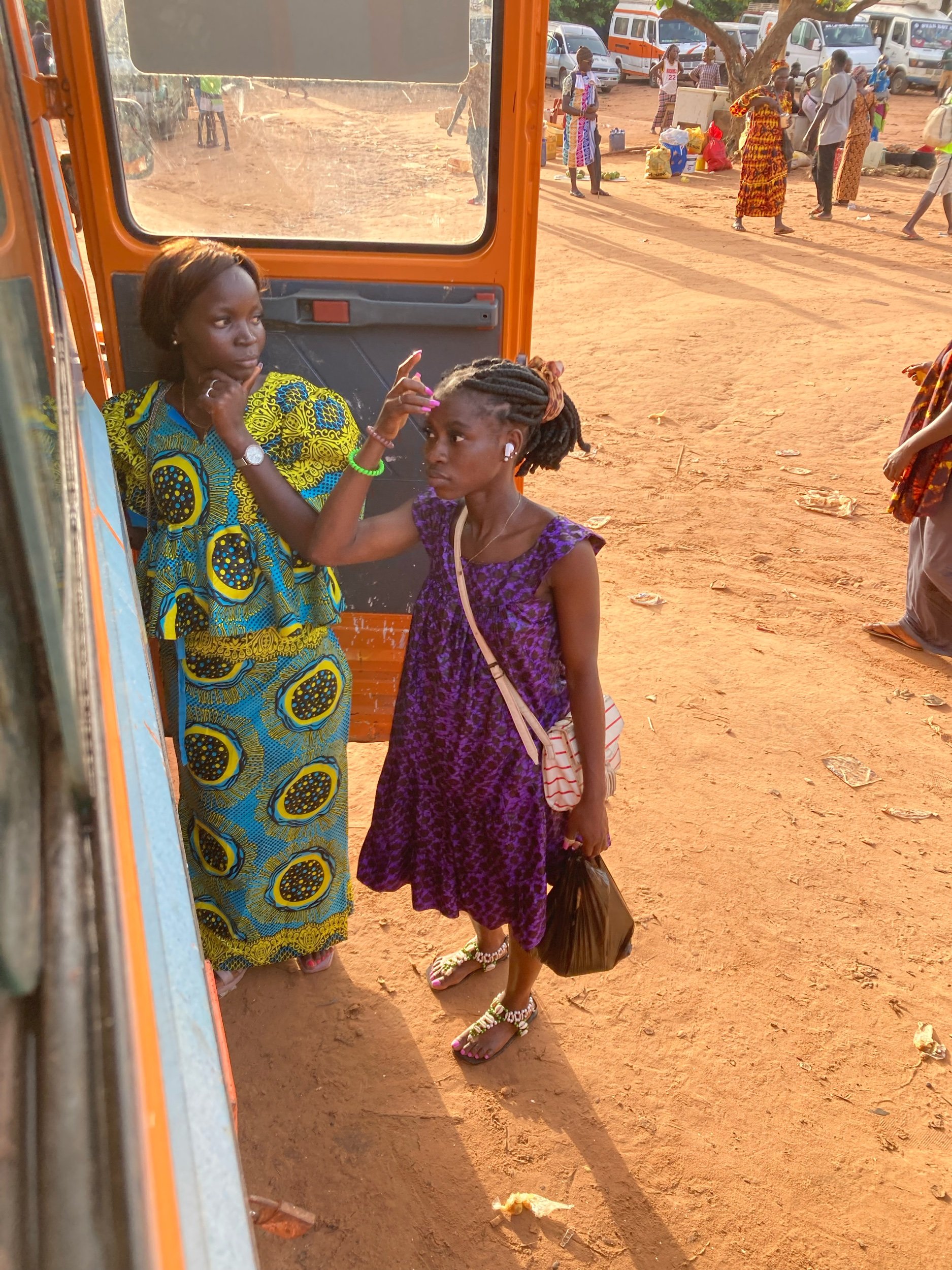
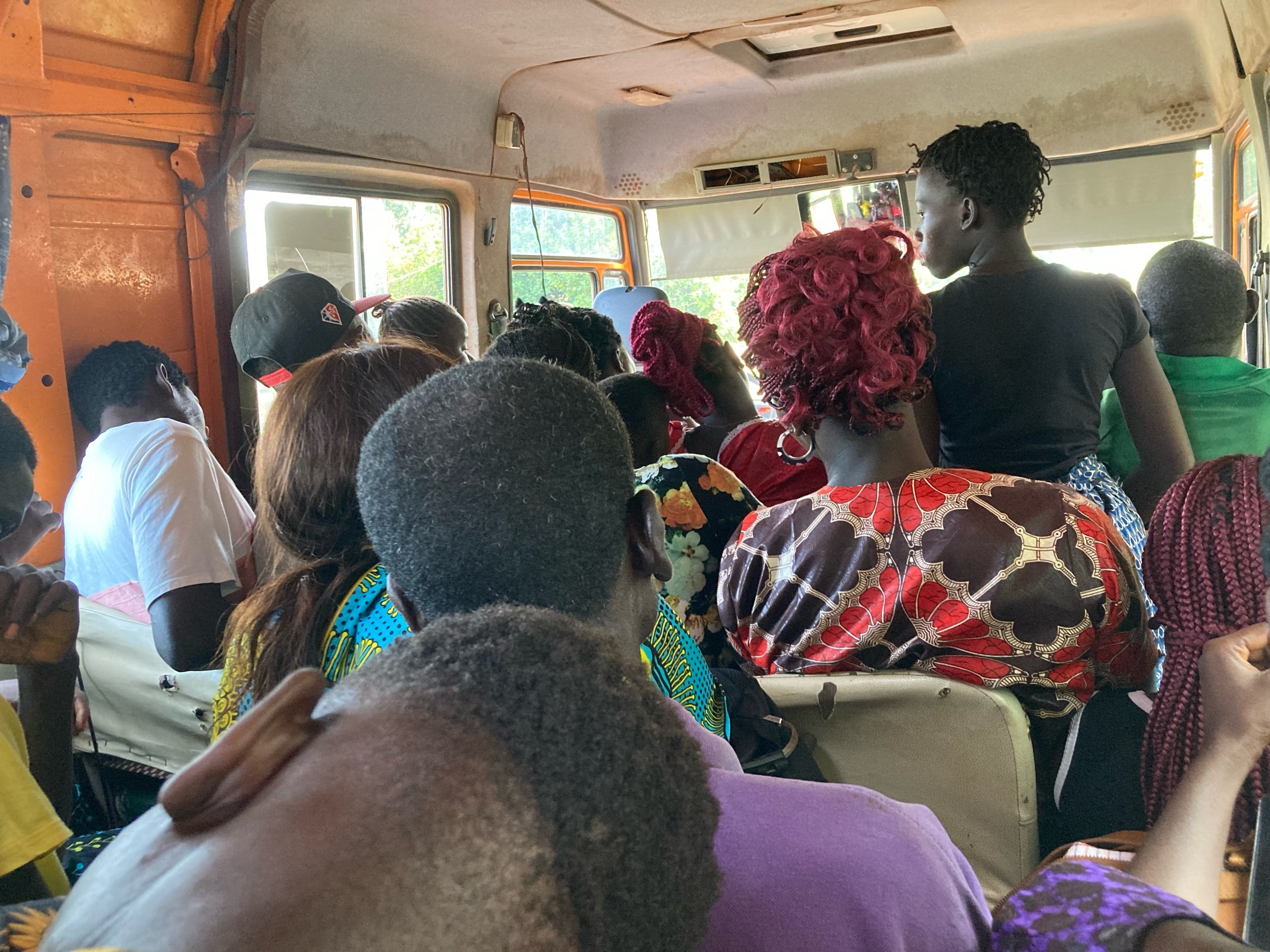
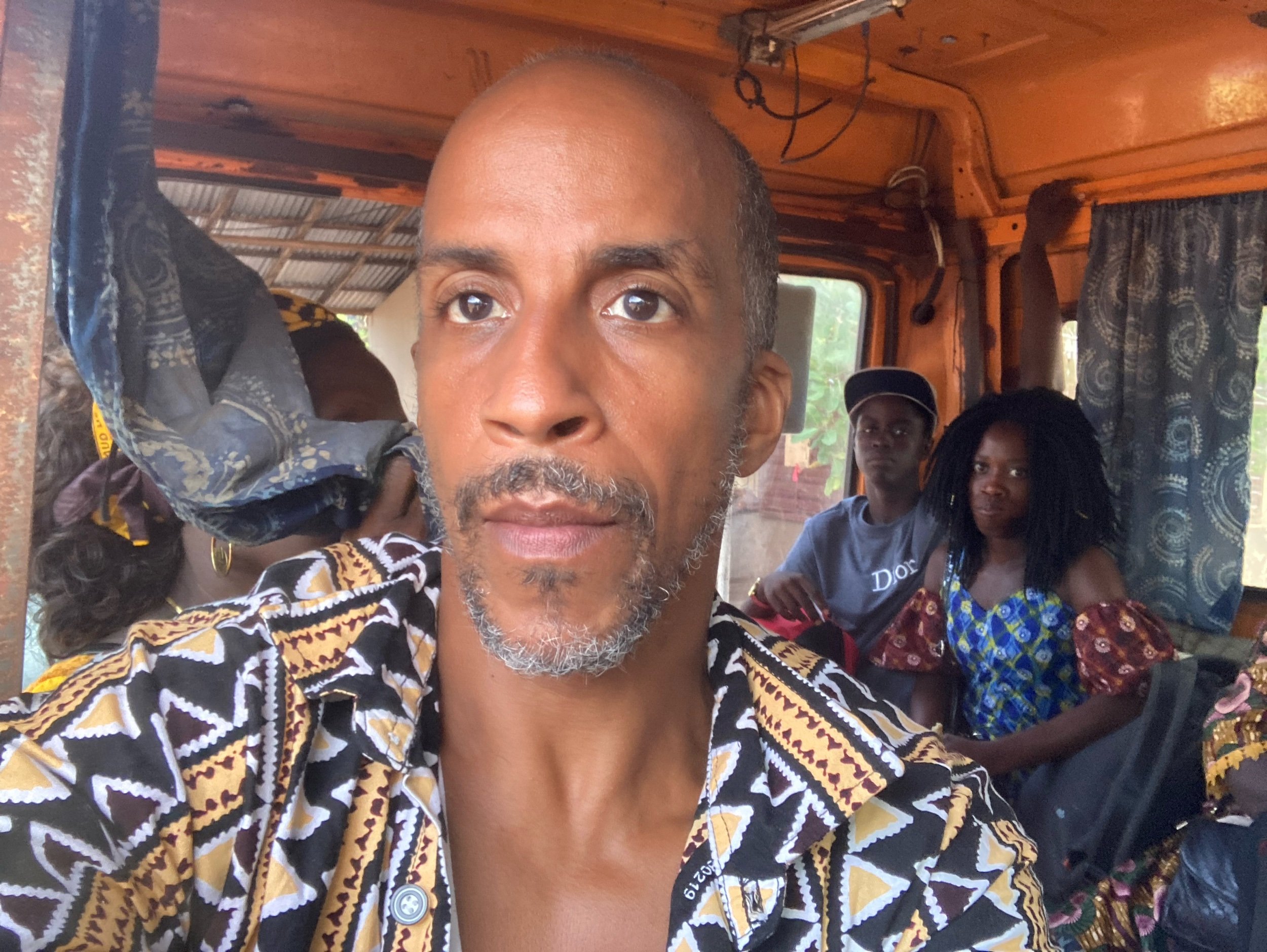
Tanya and her son.



